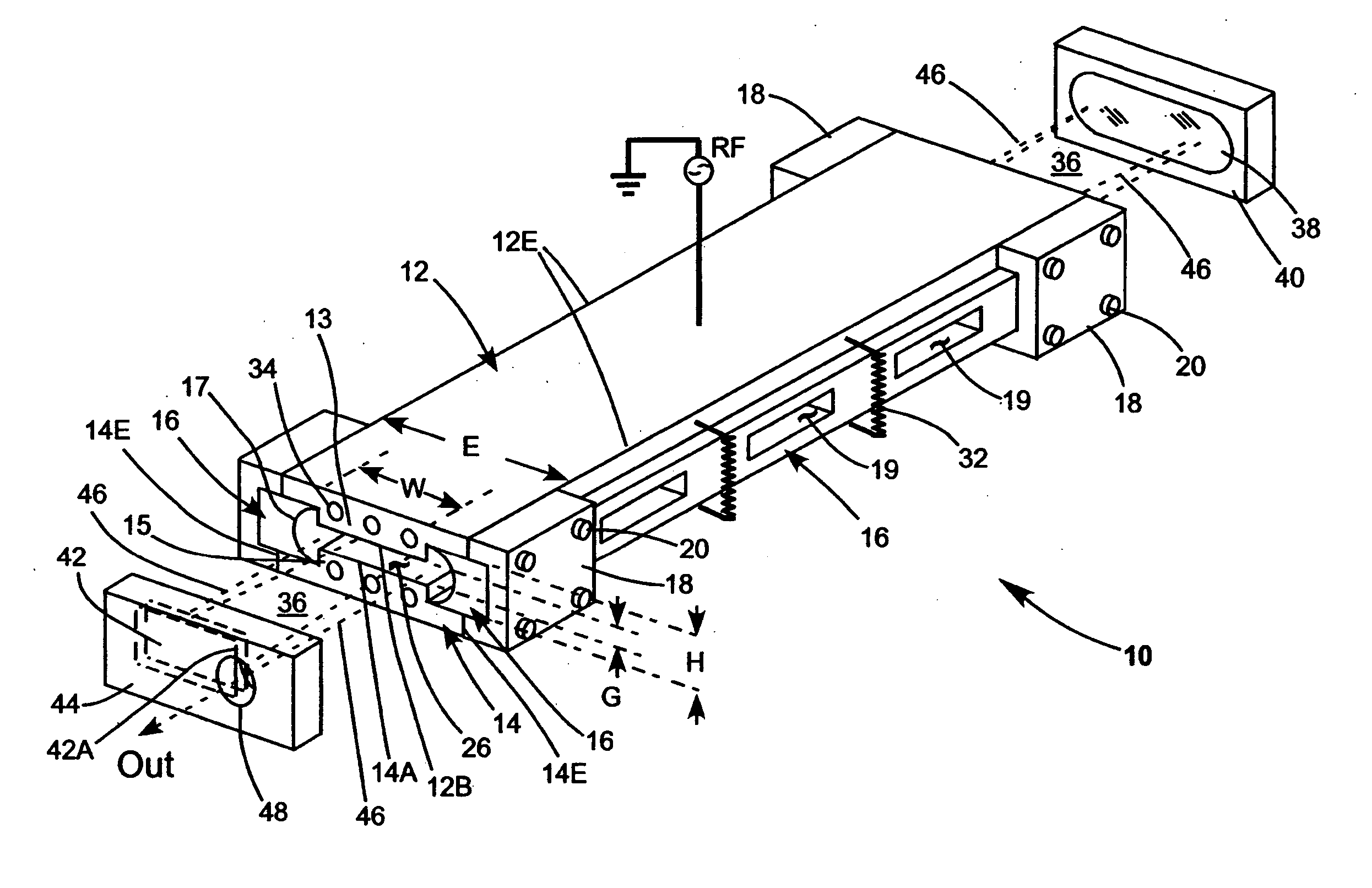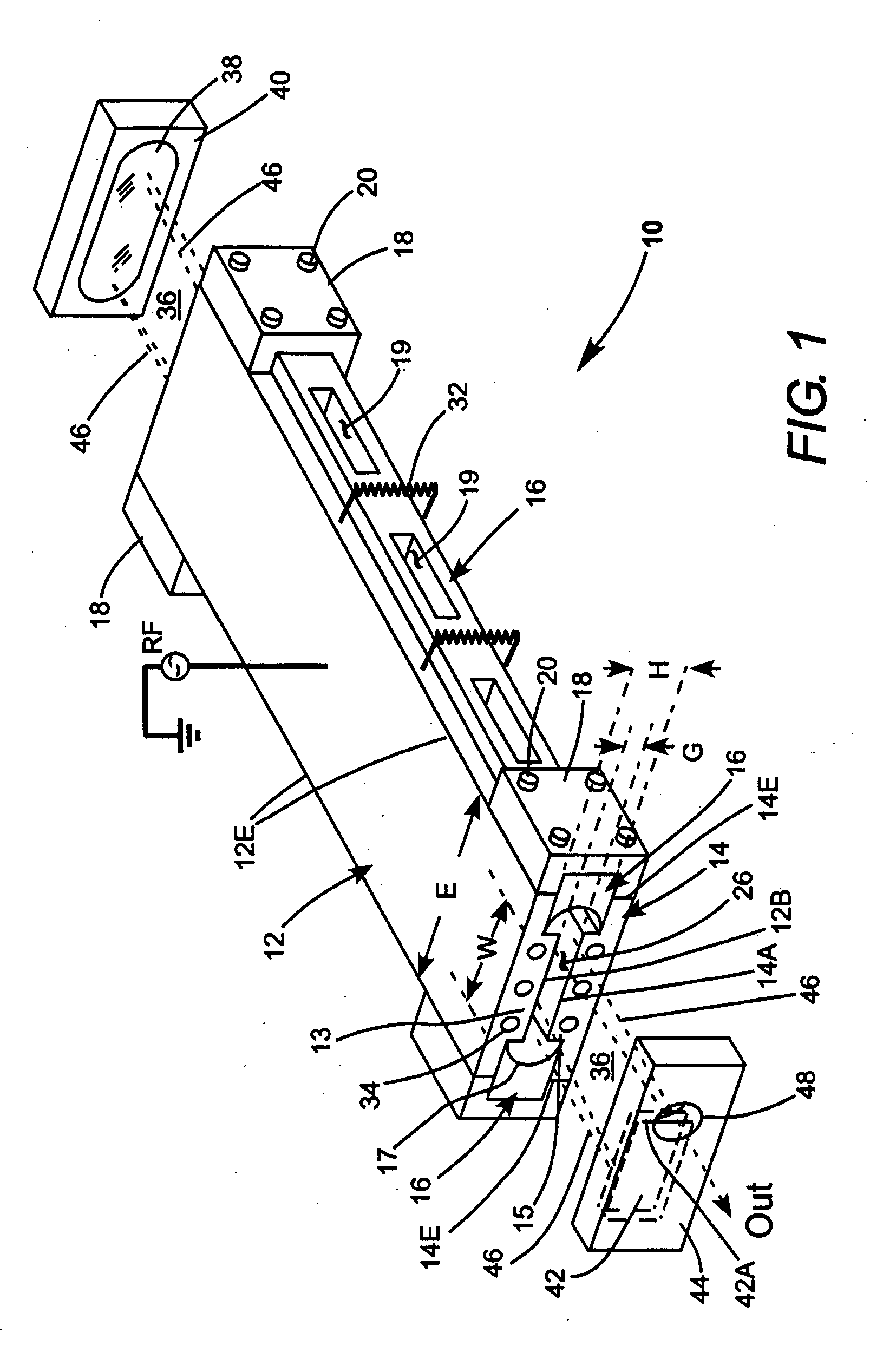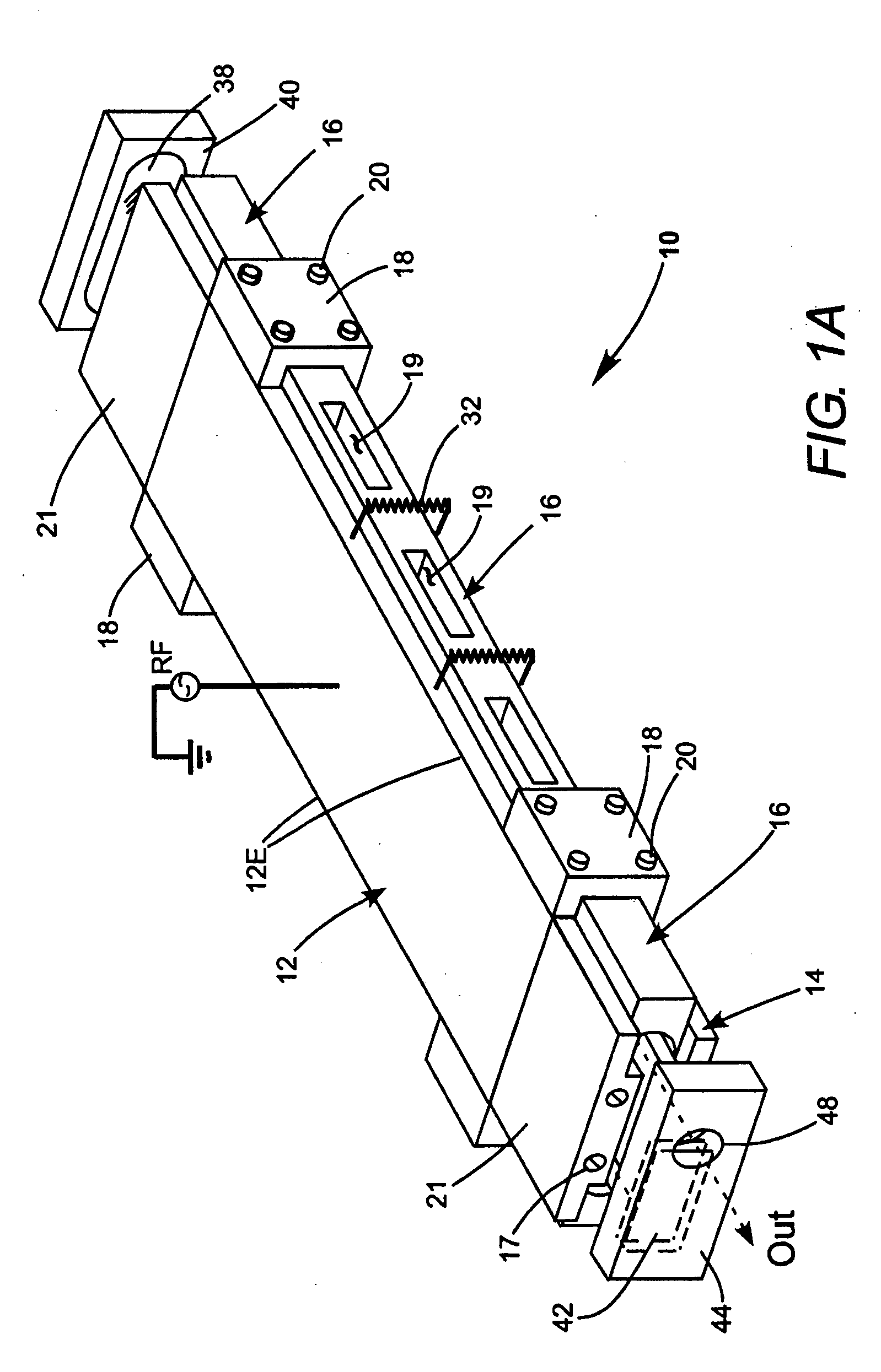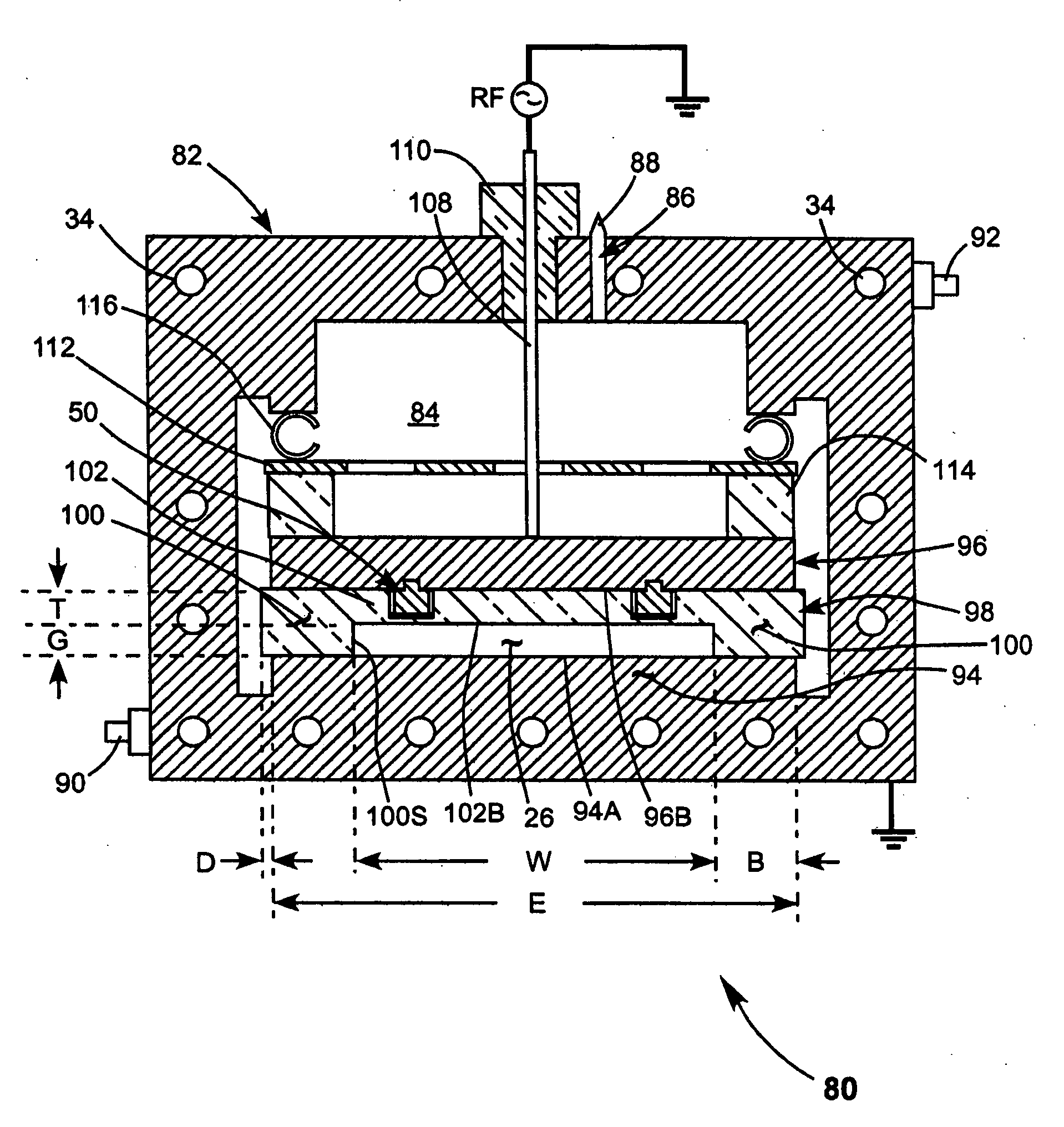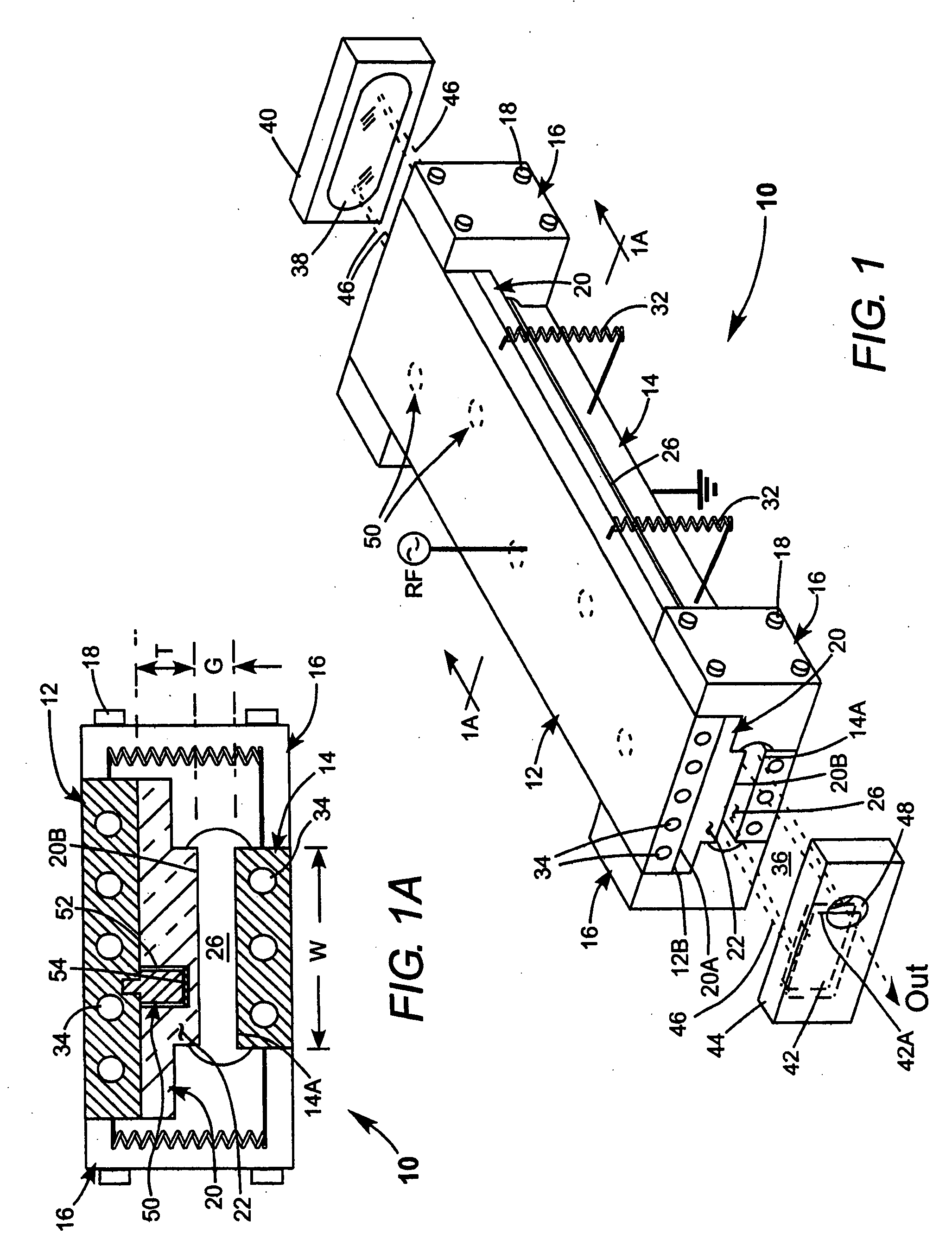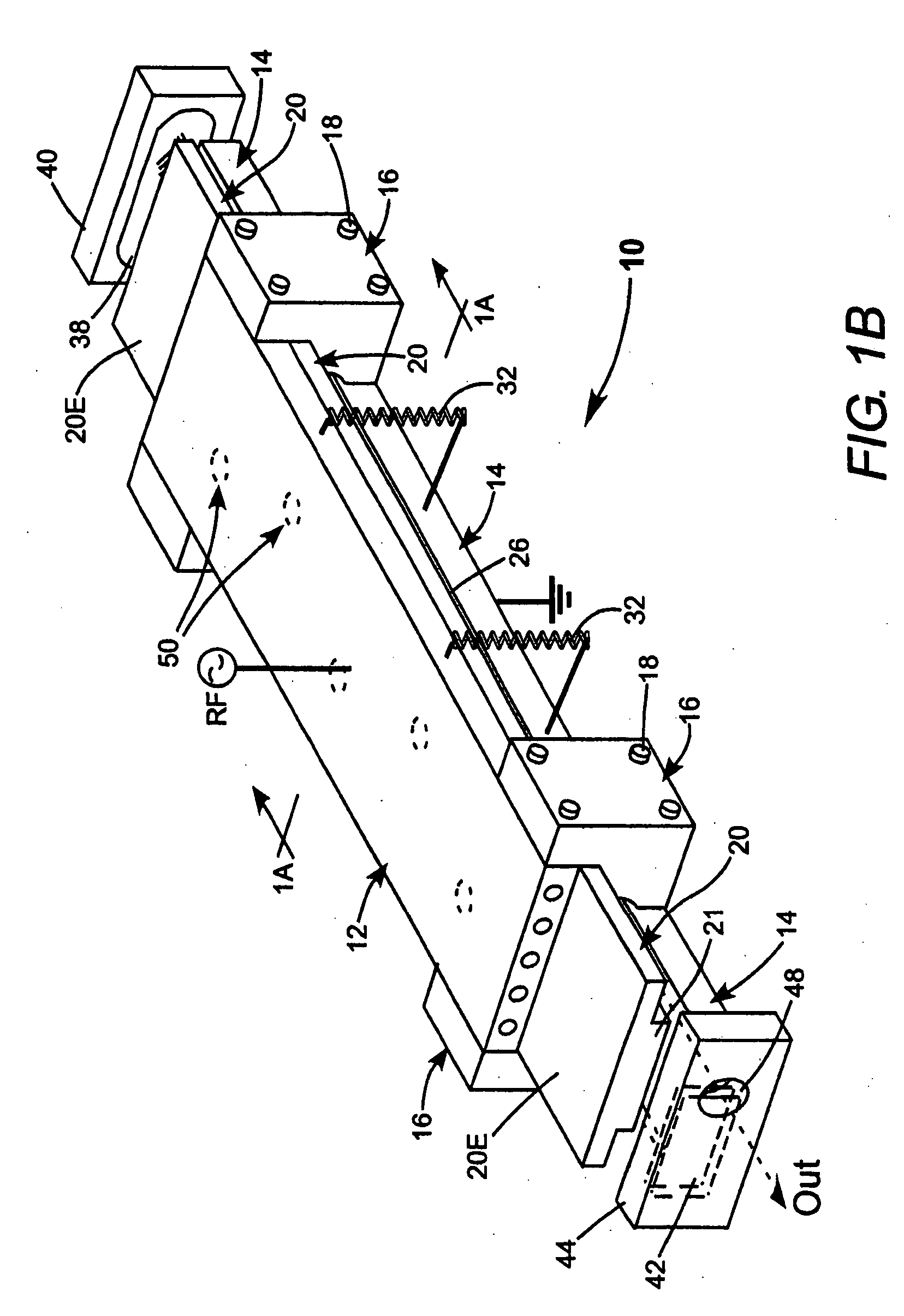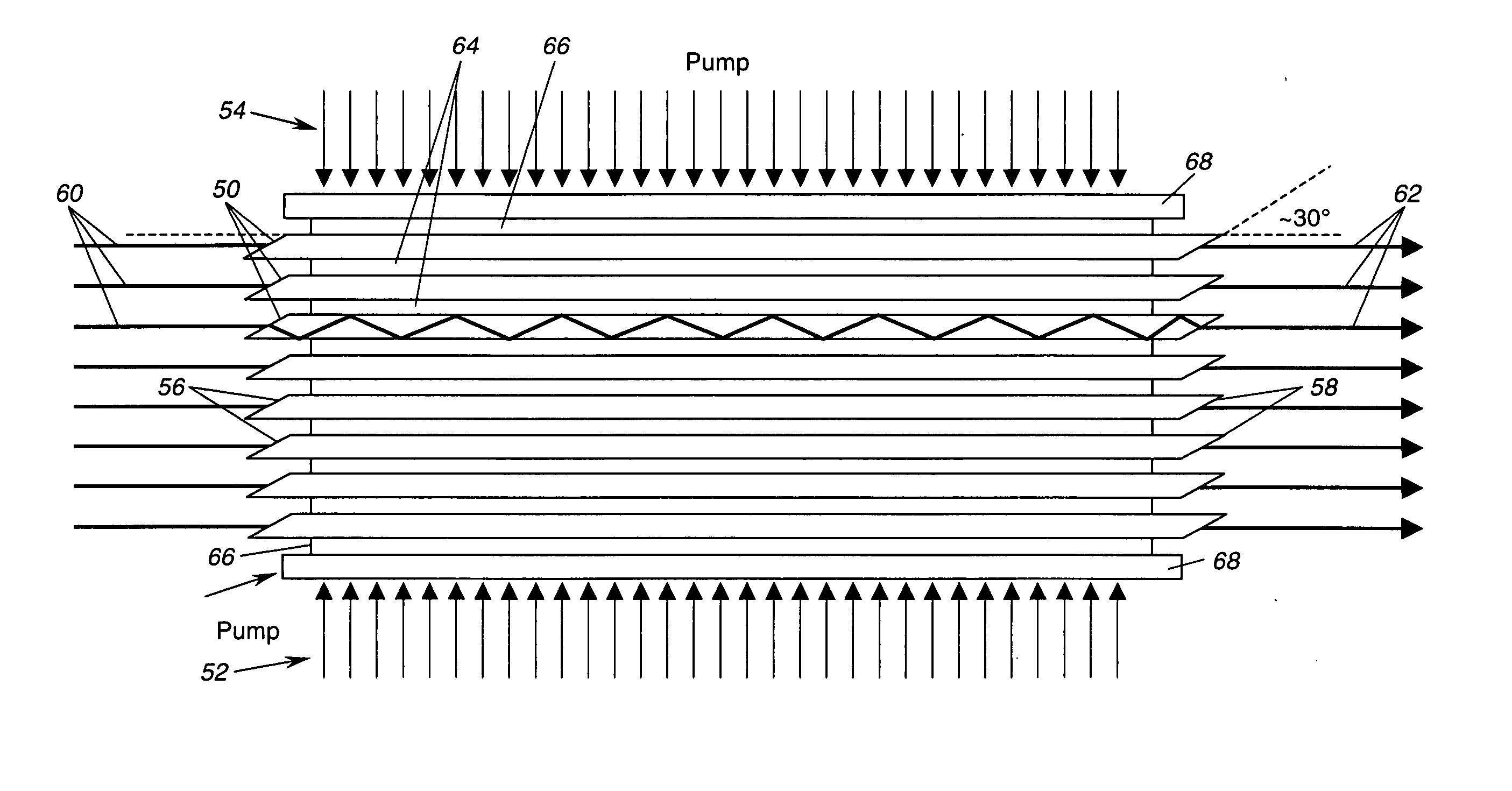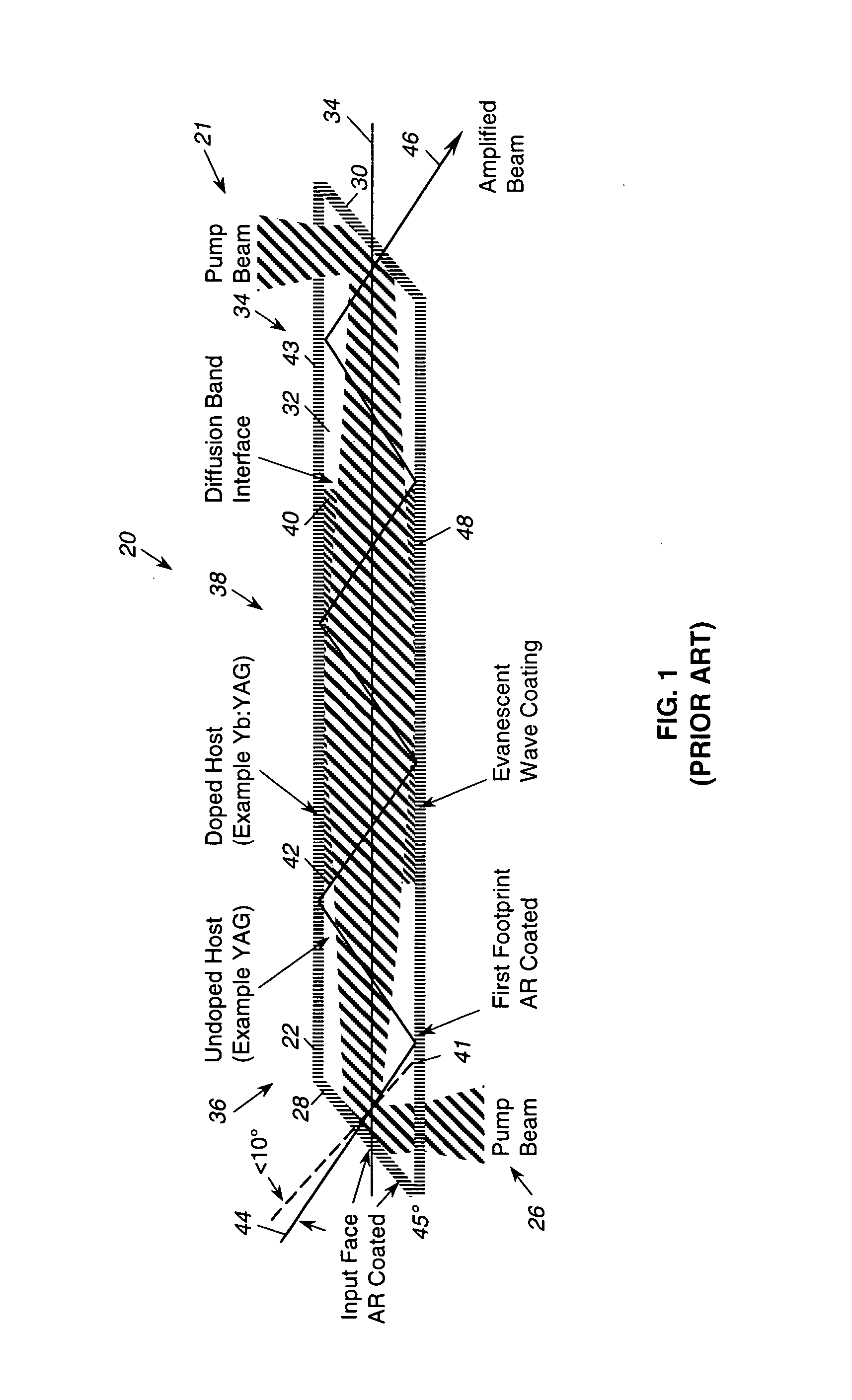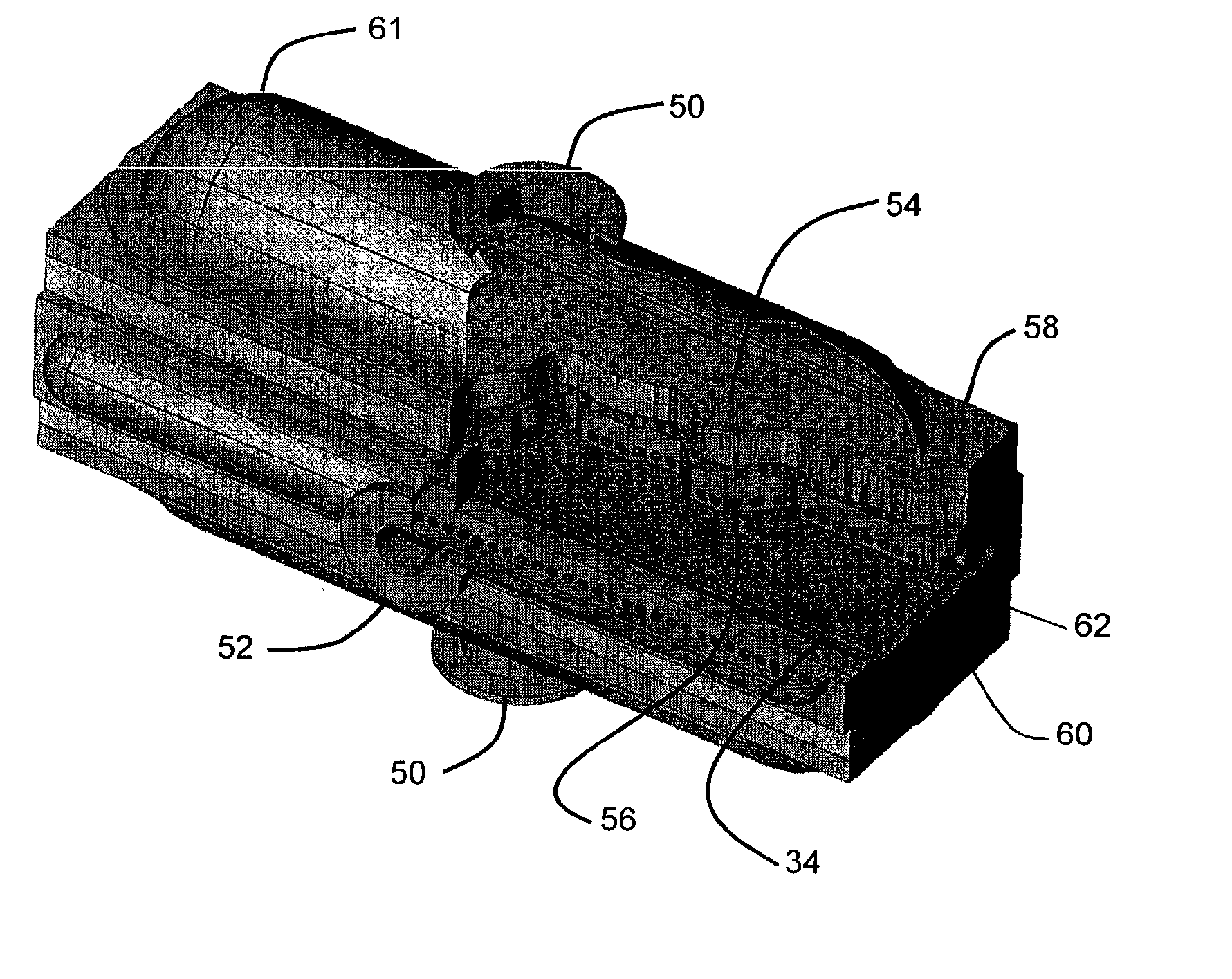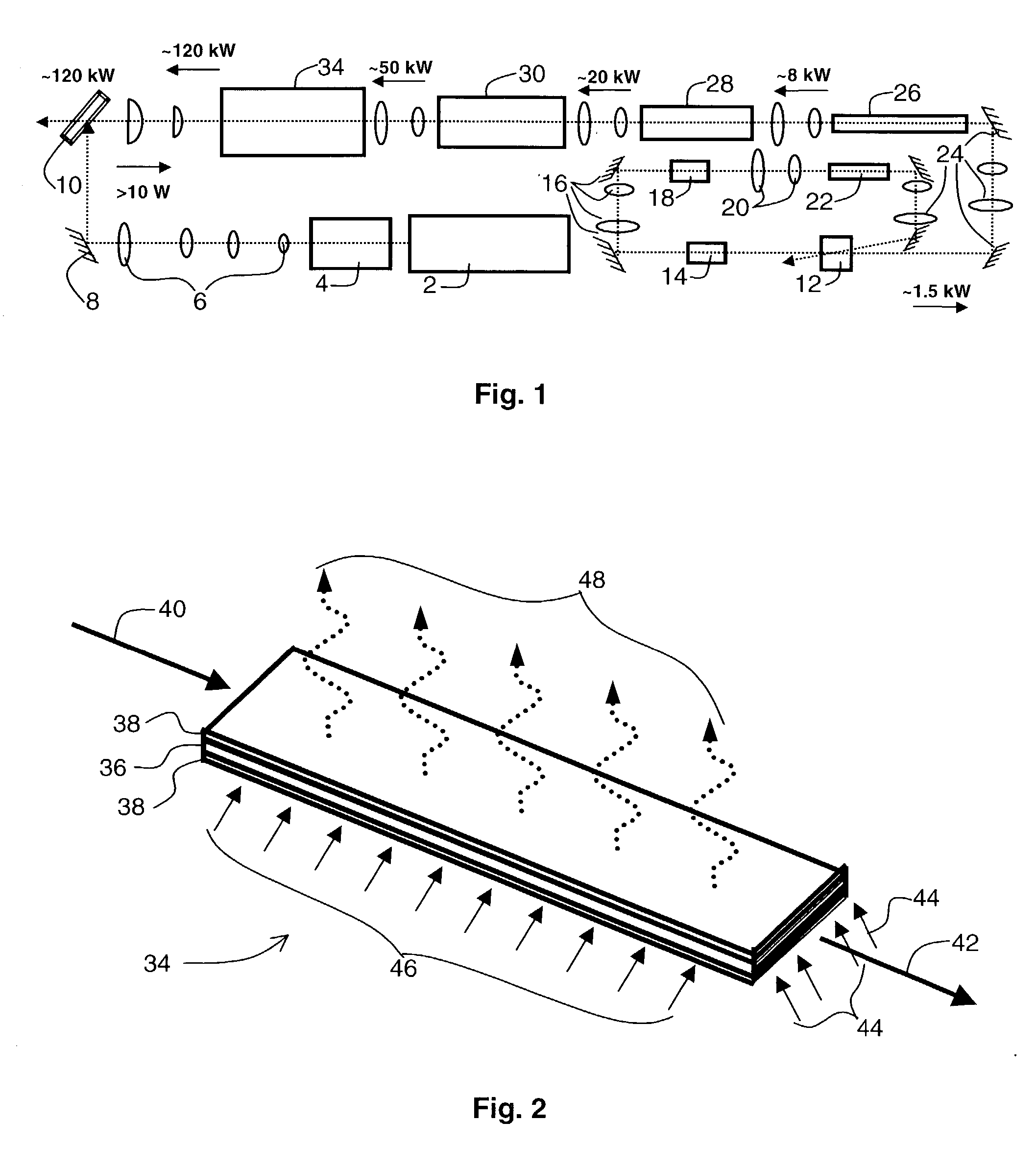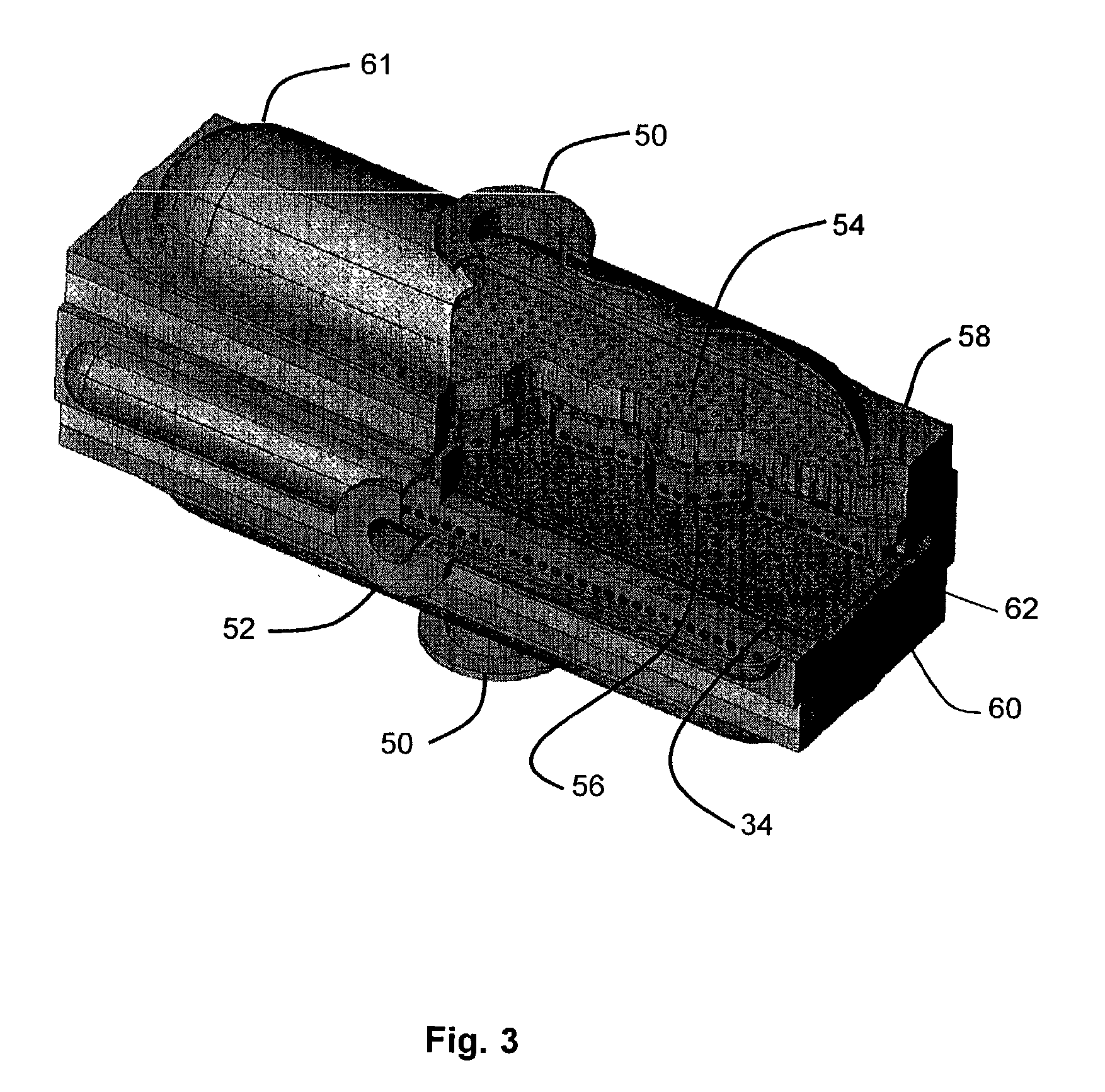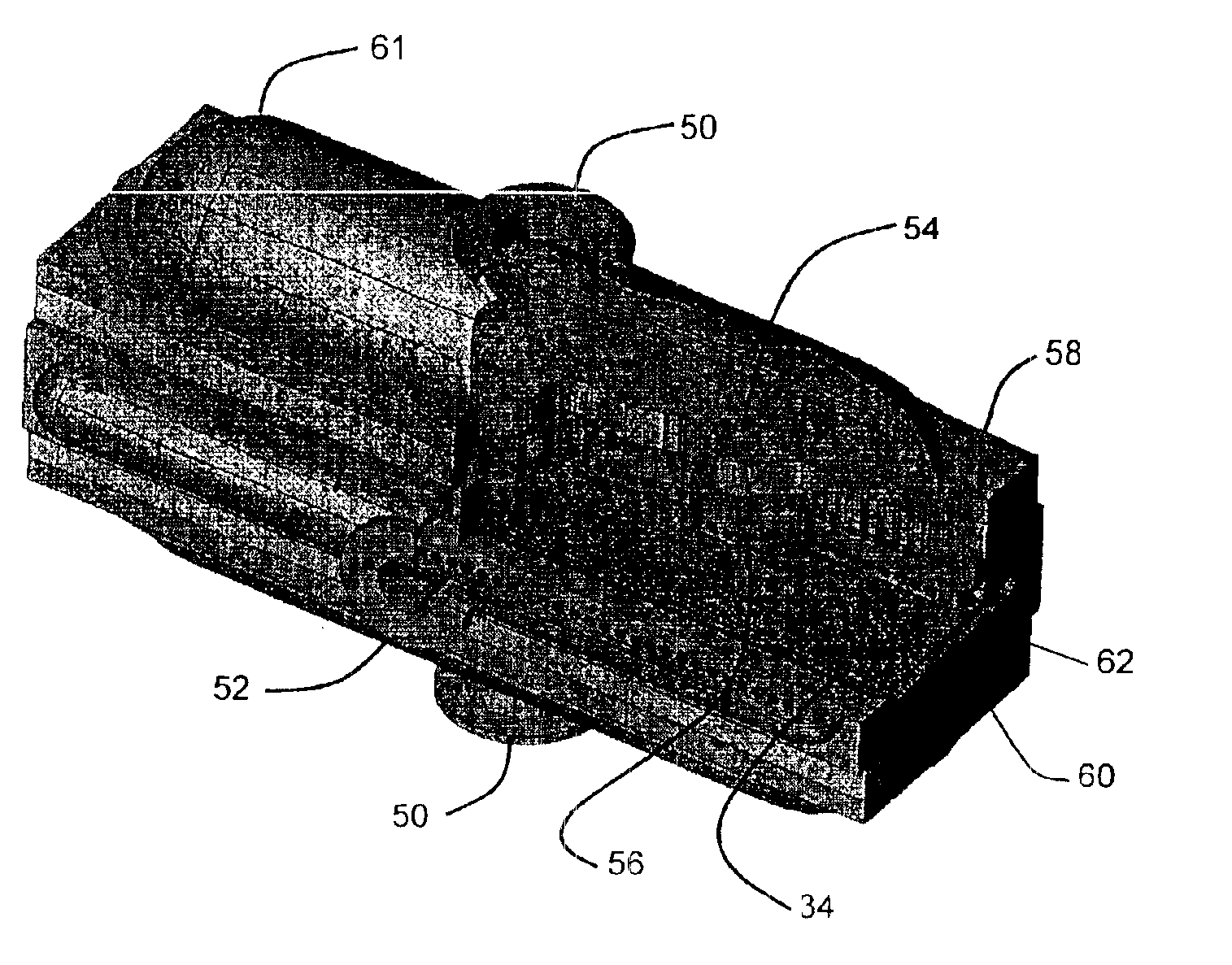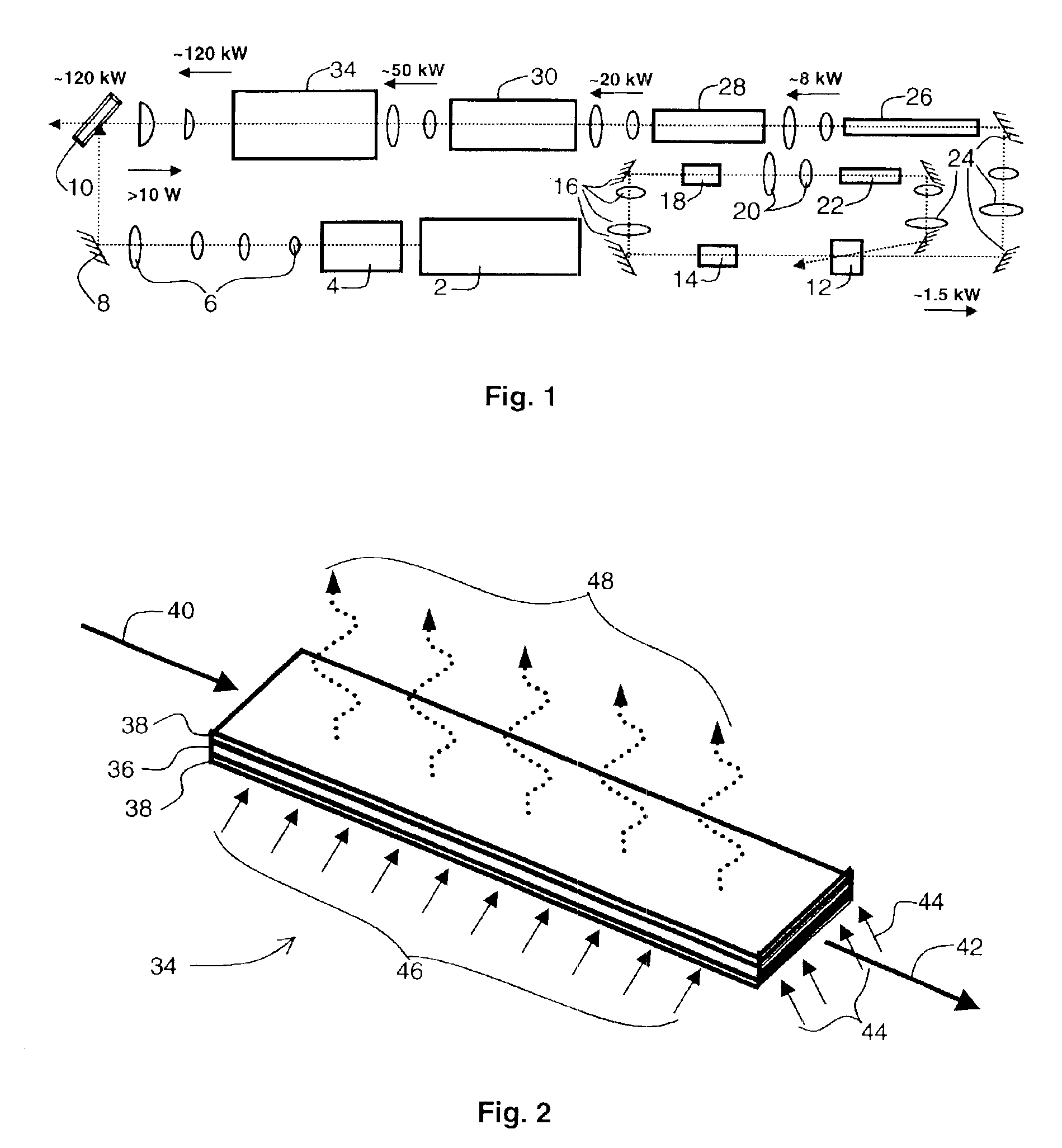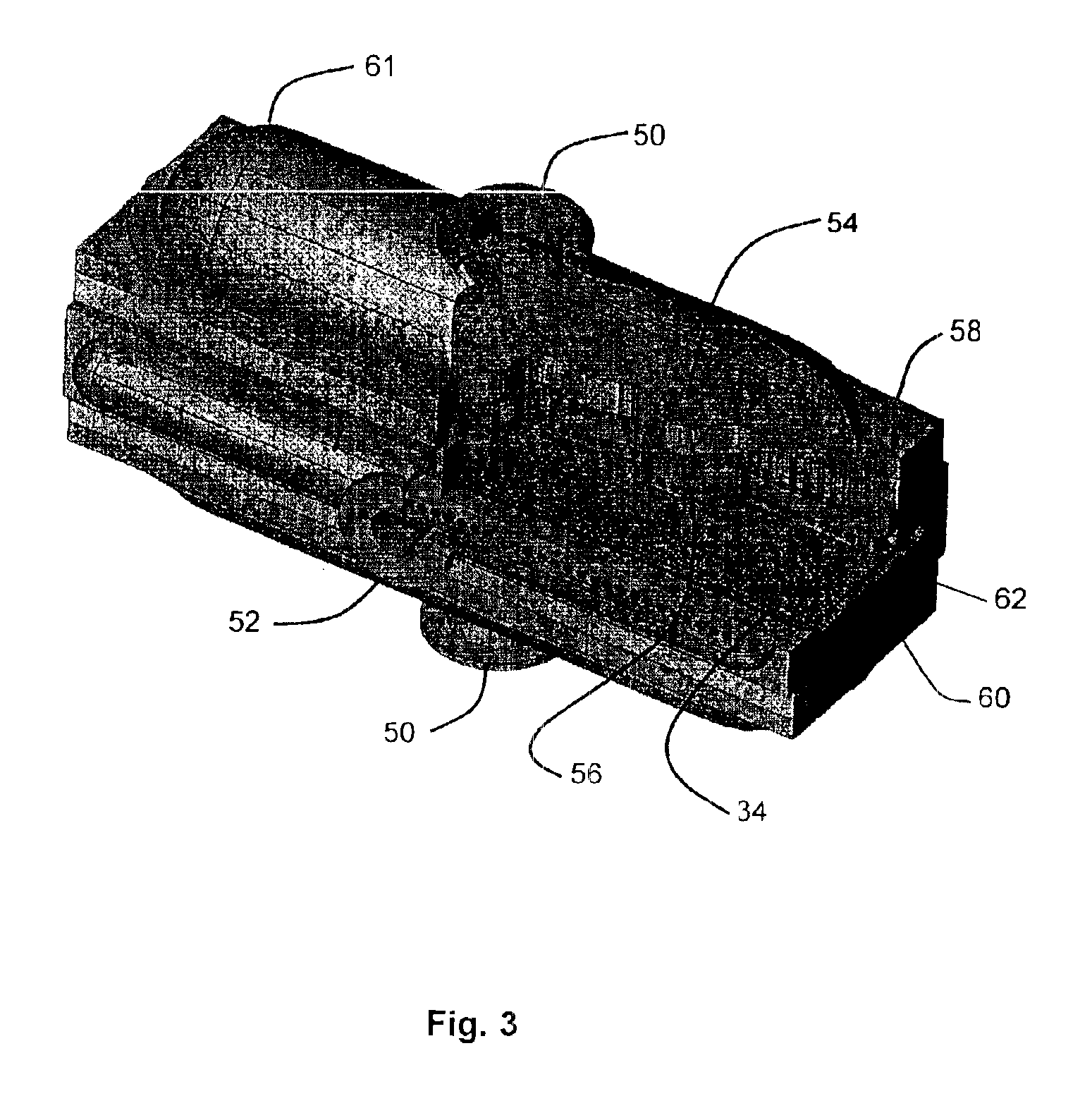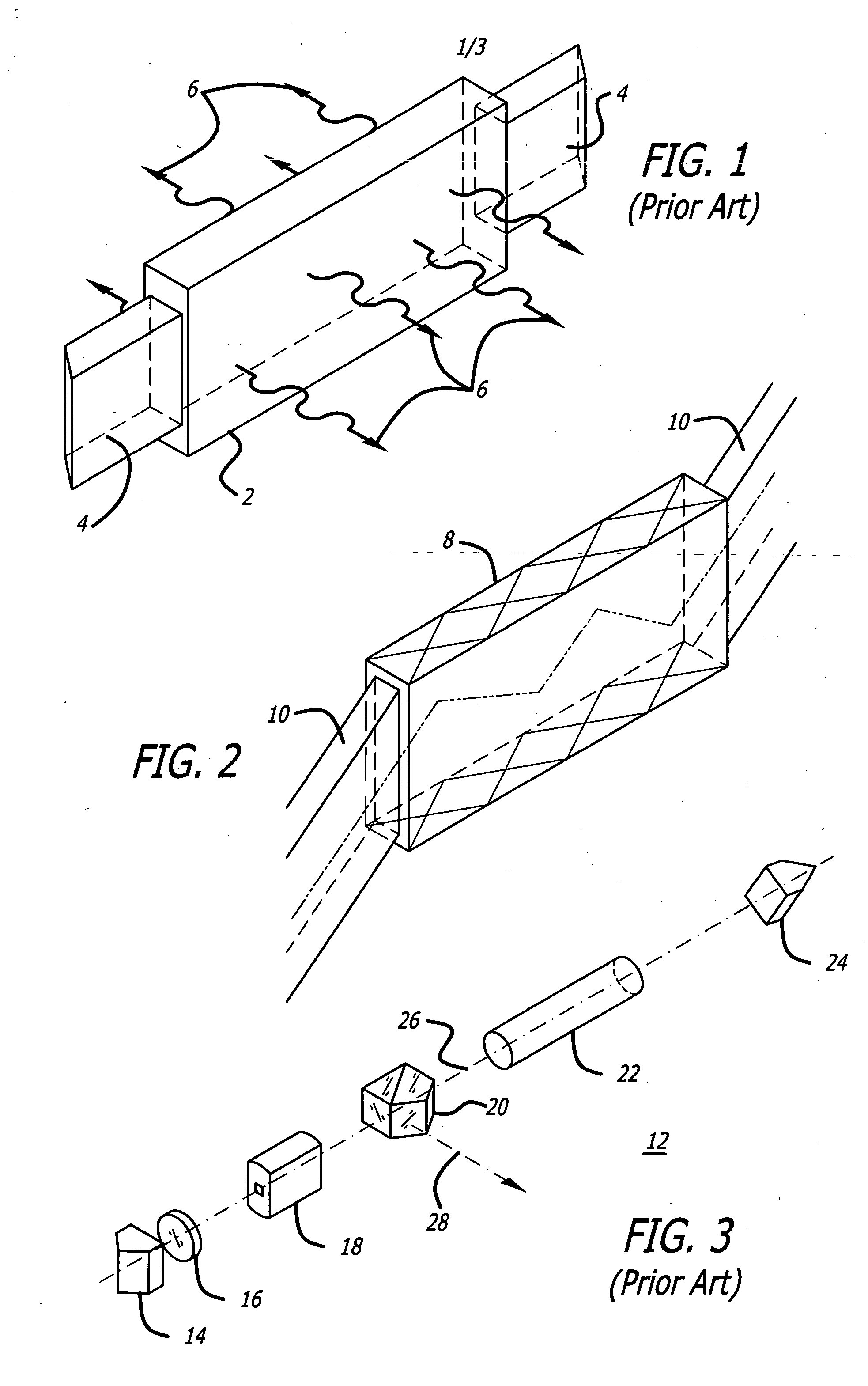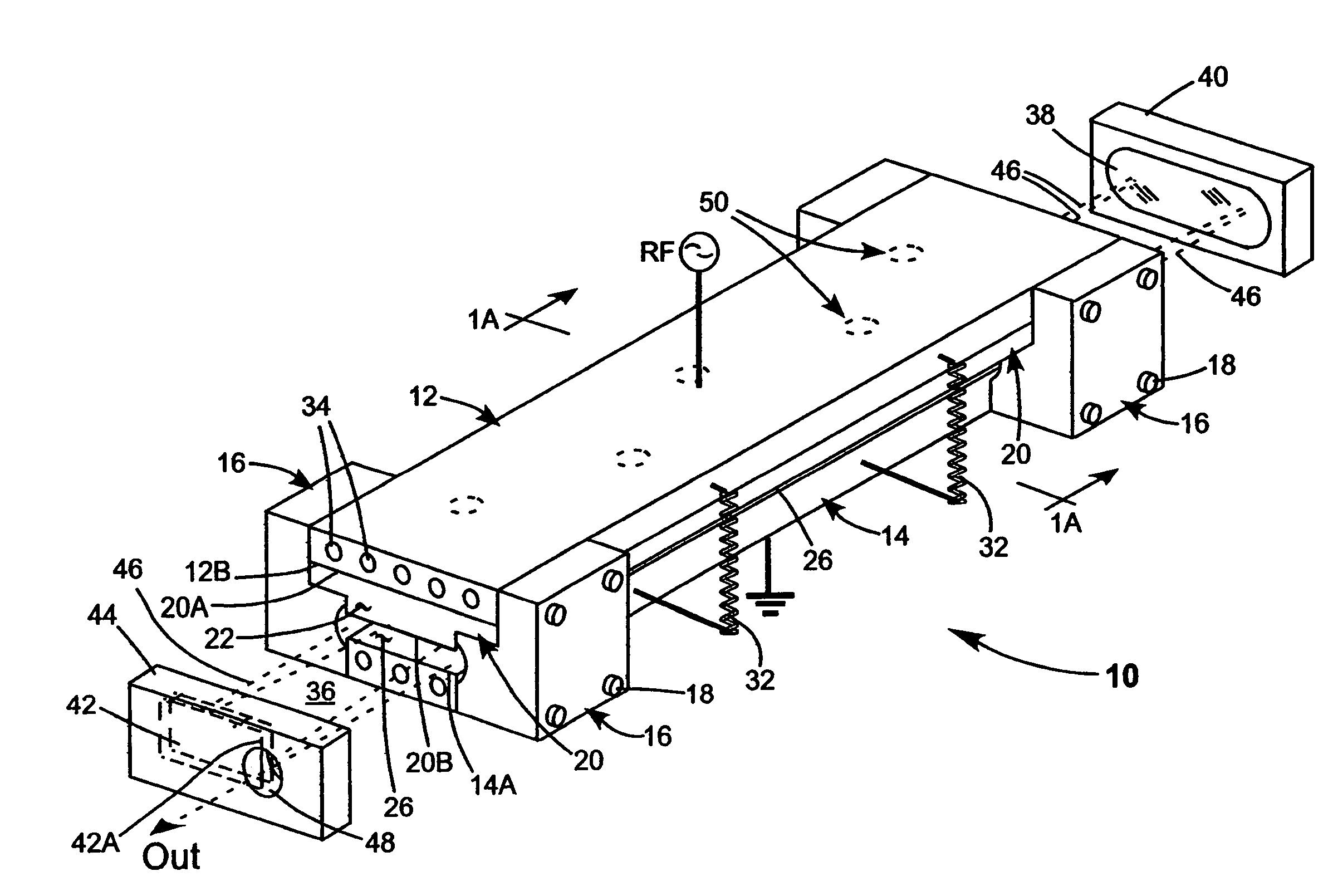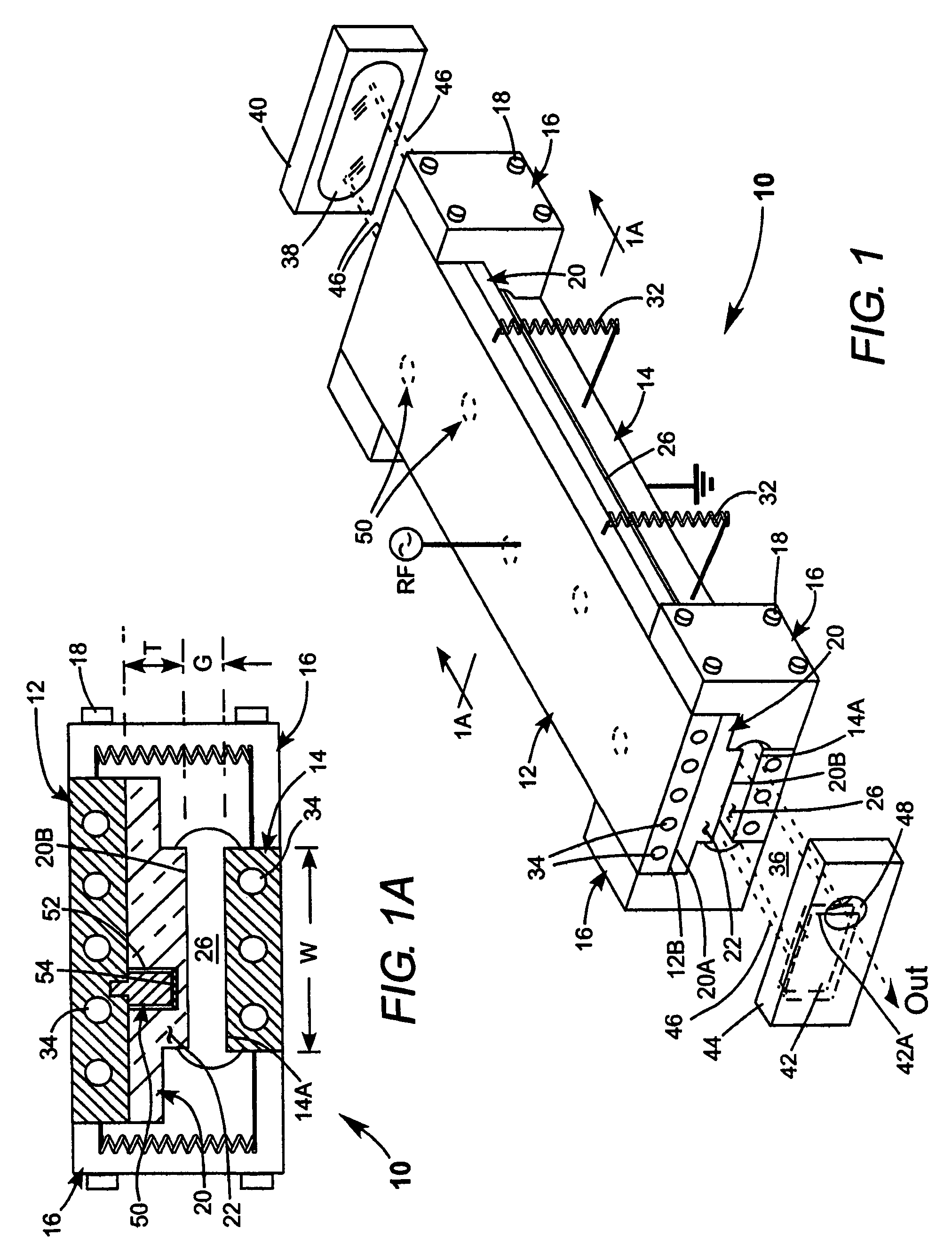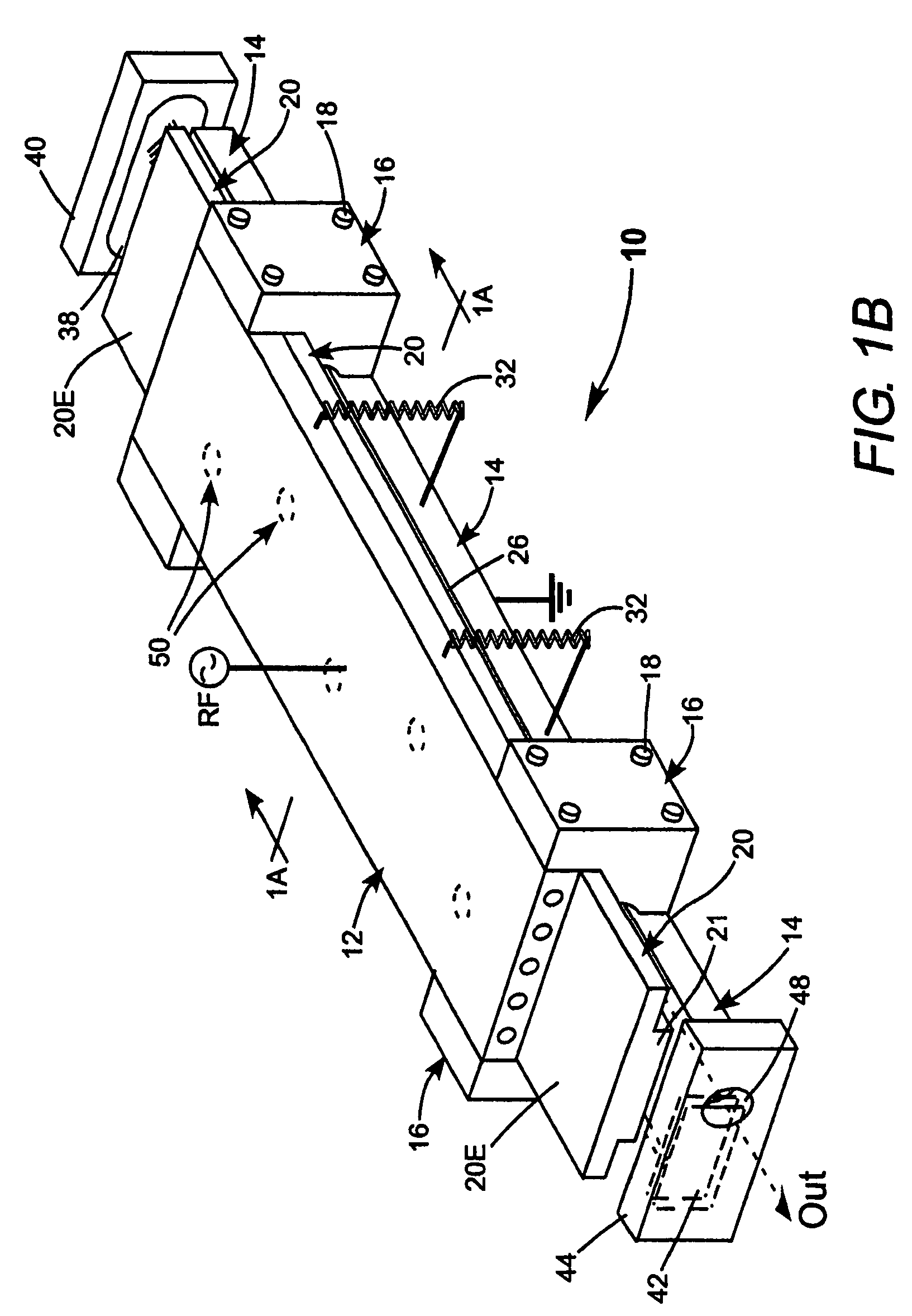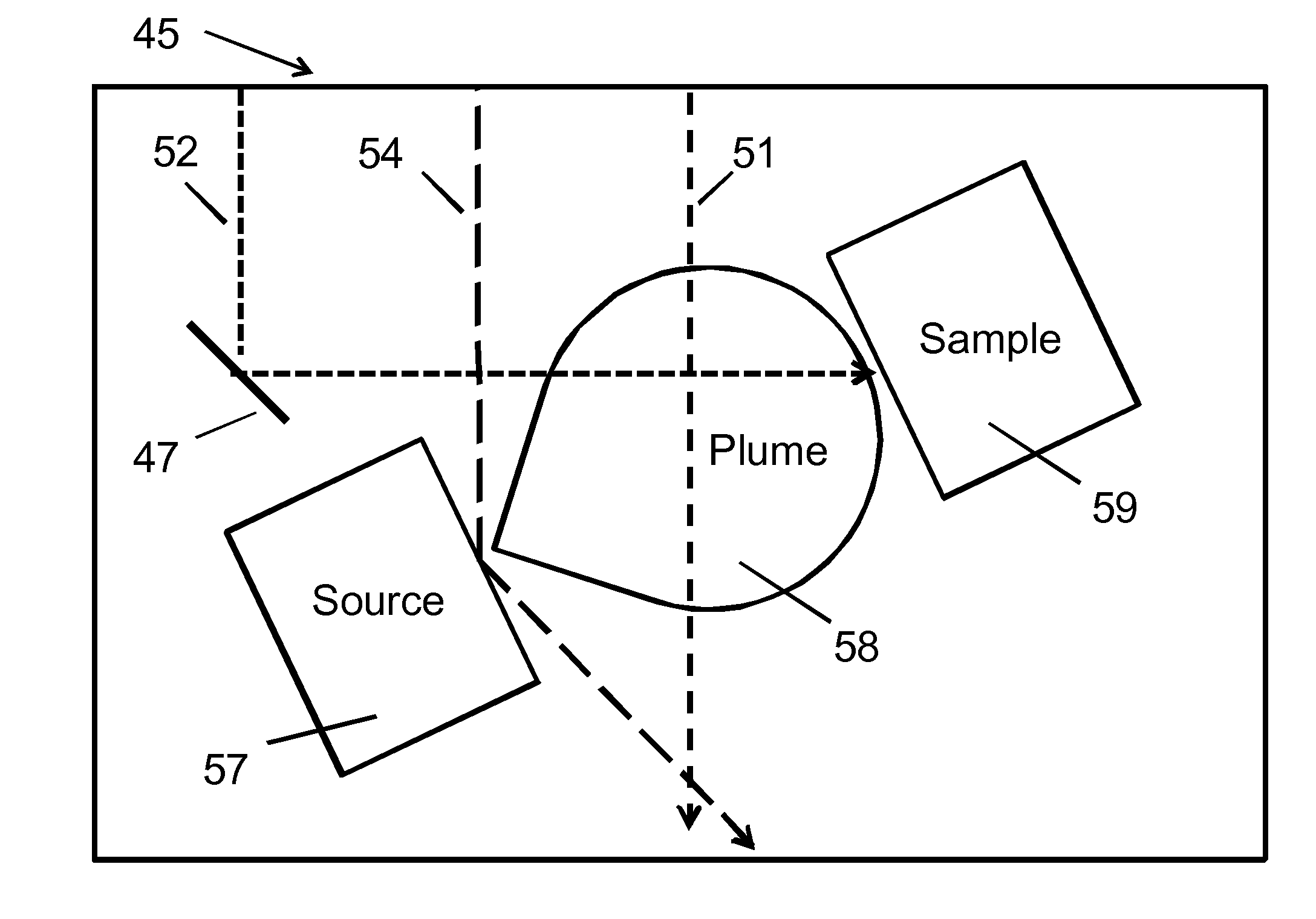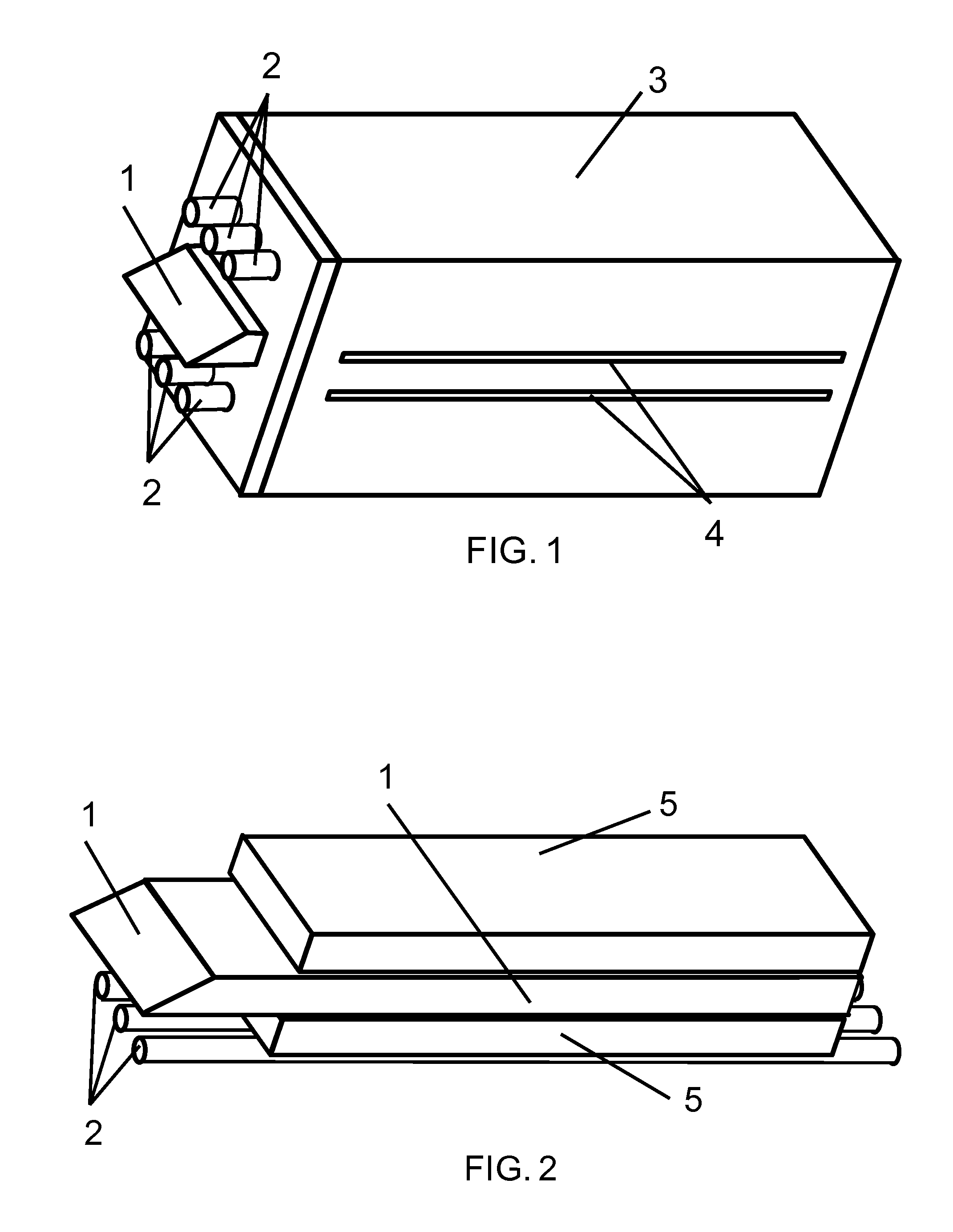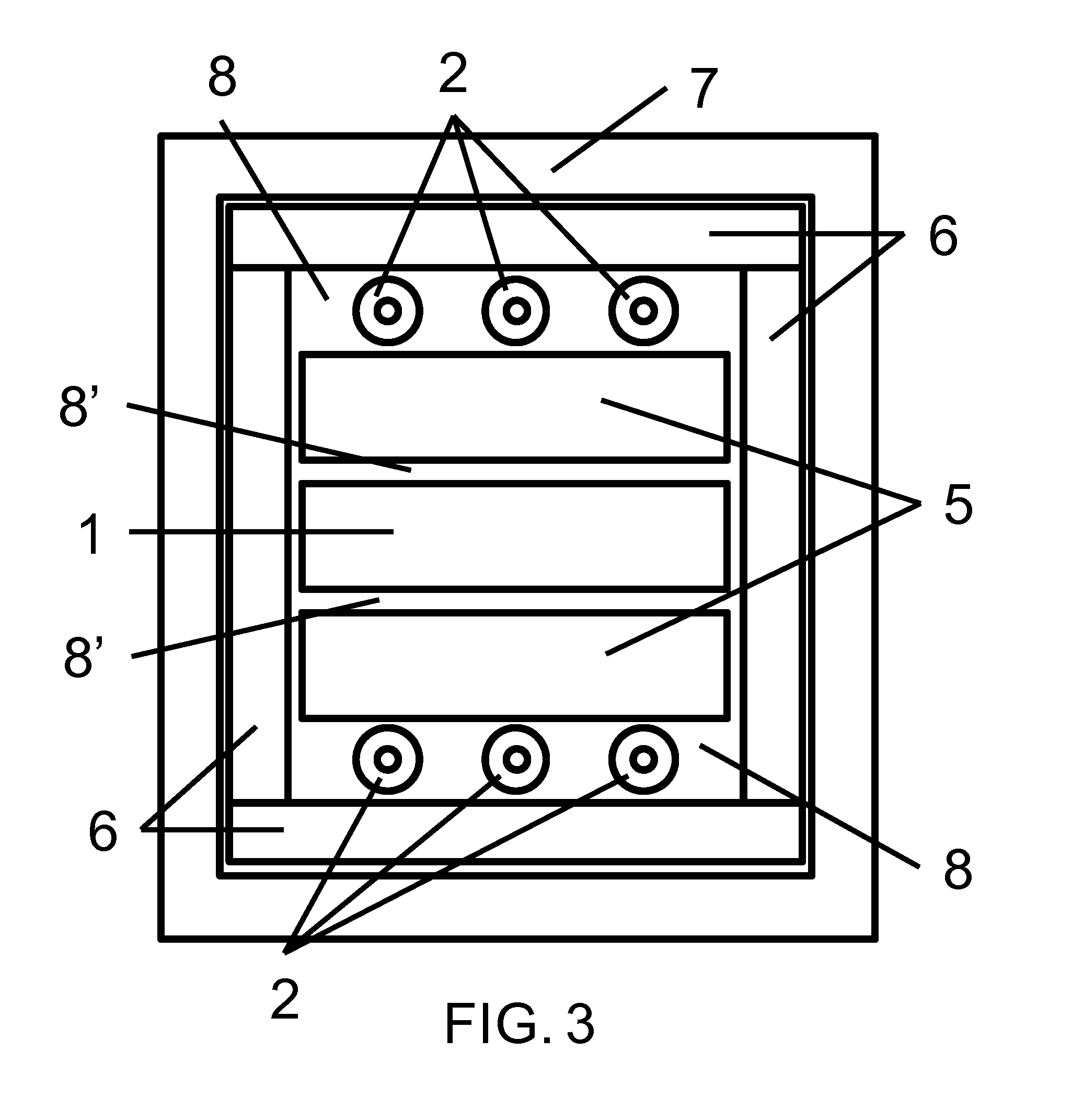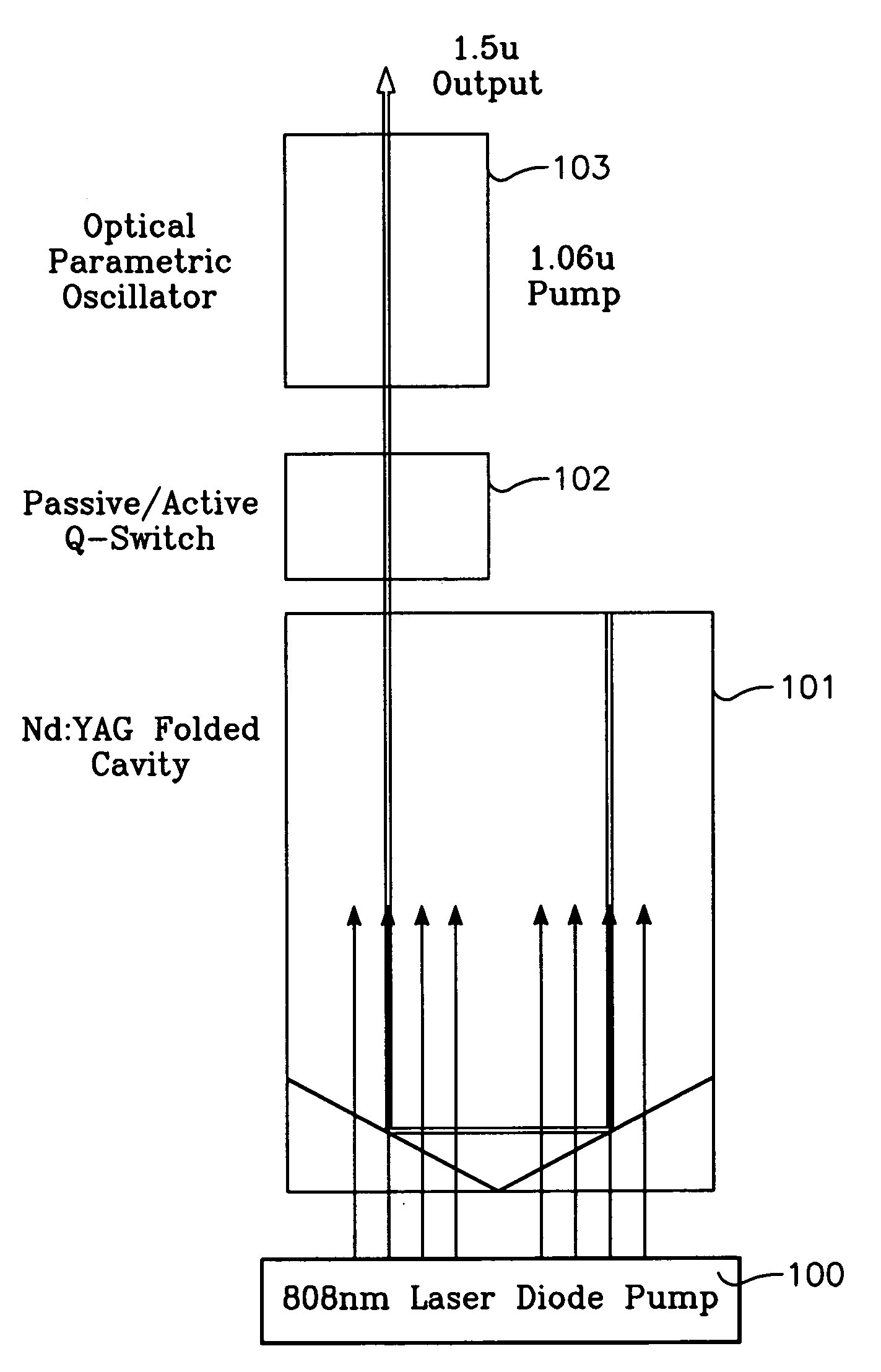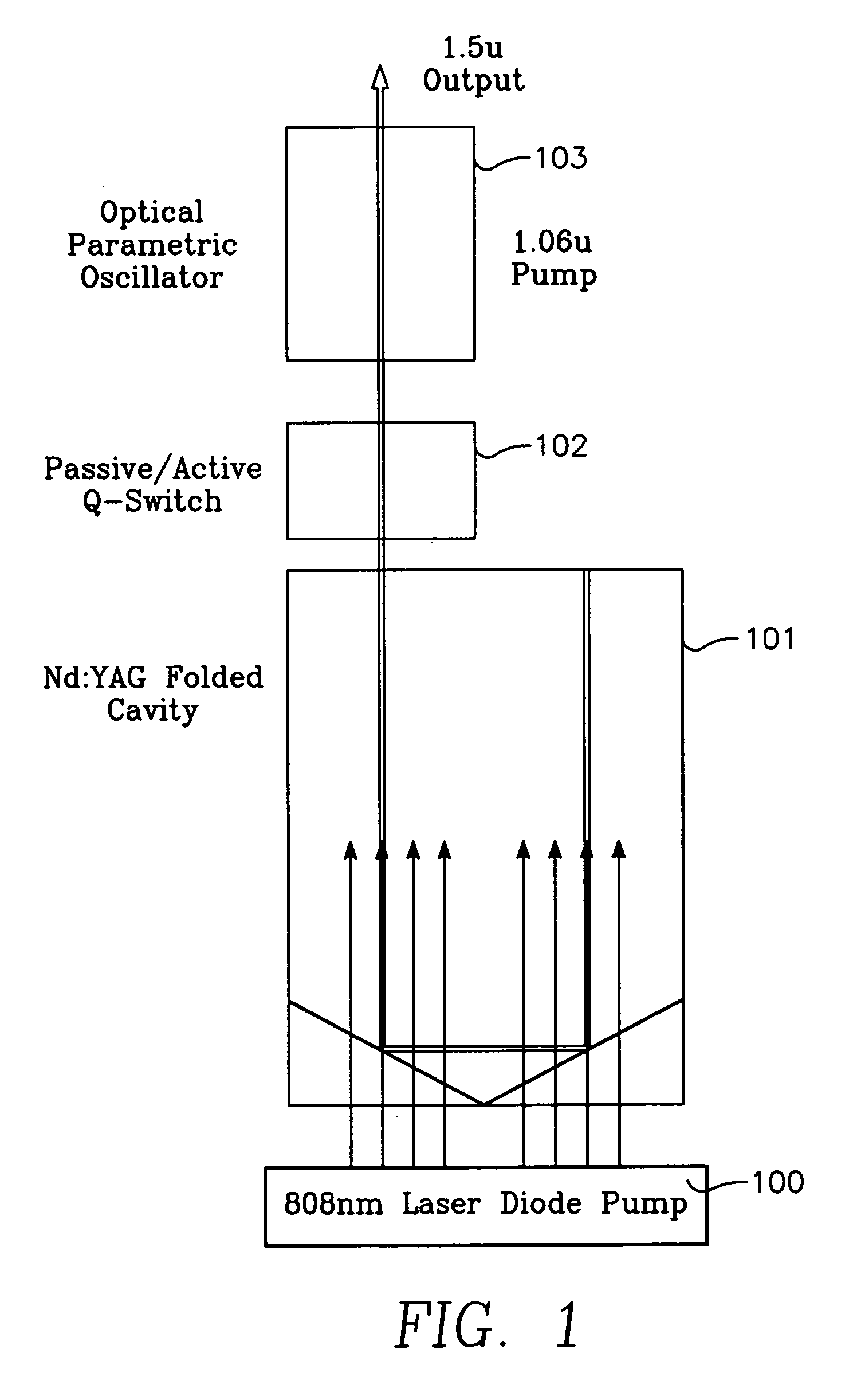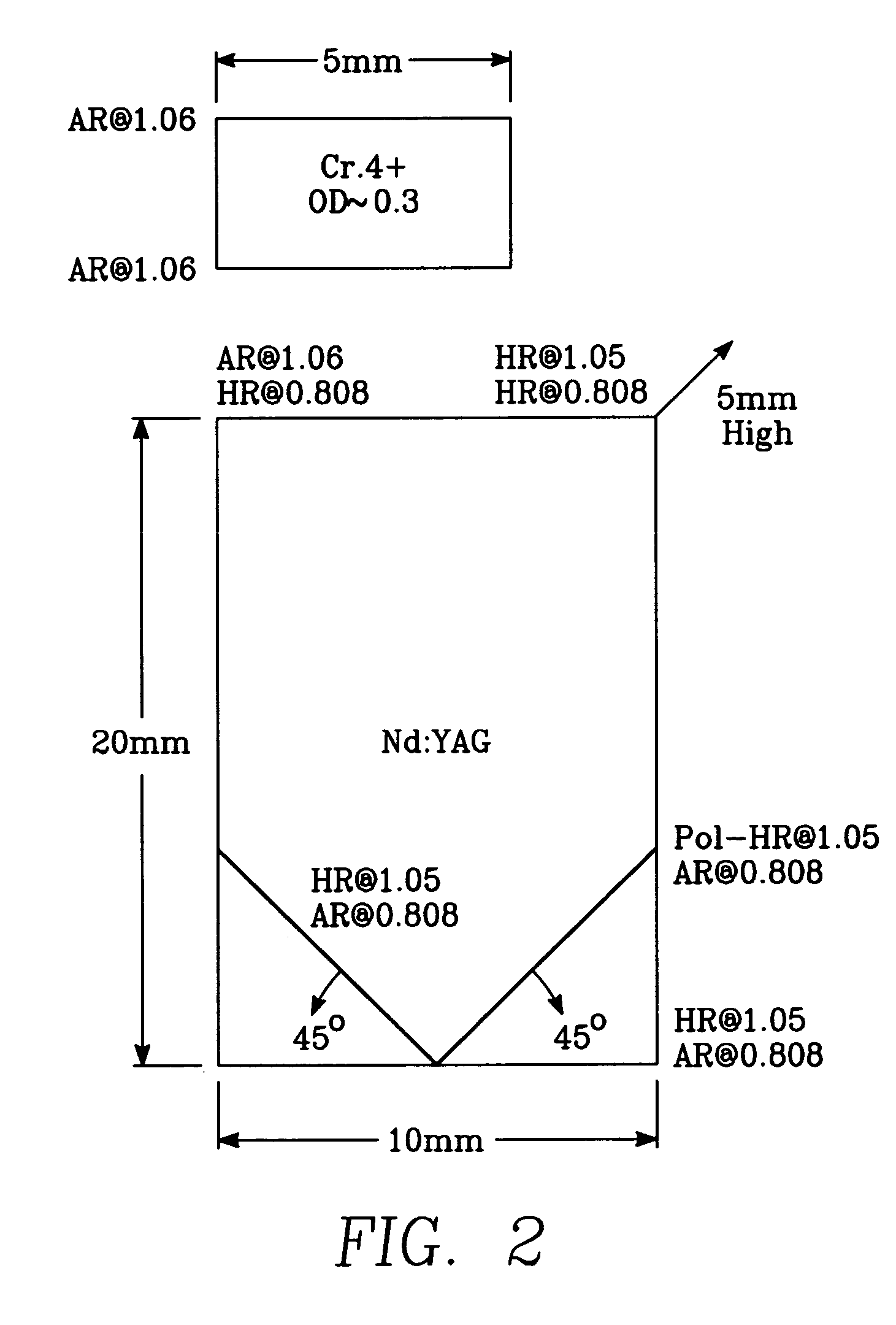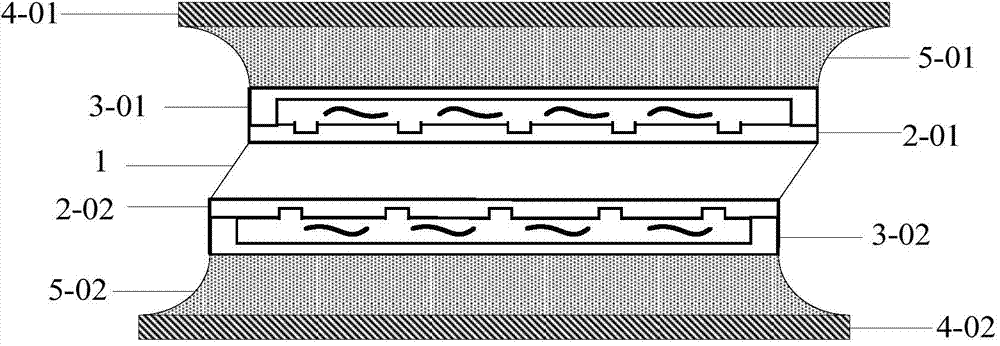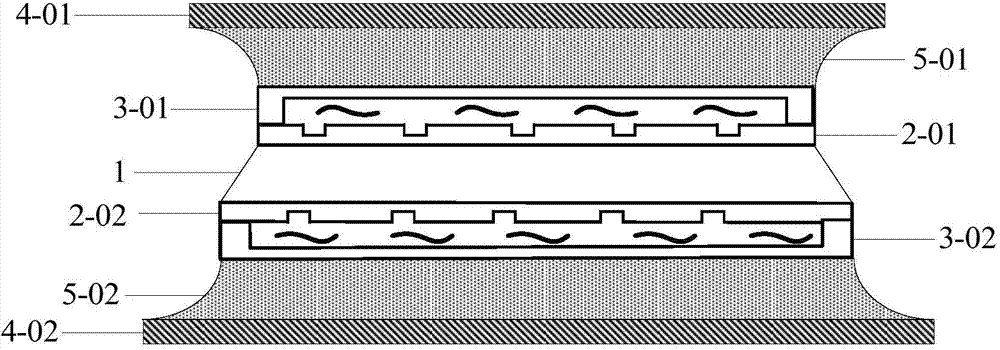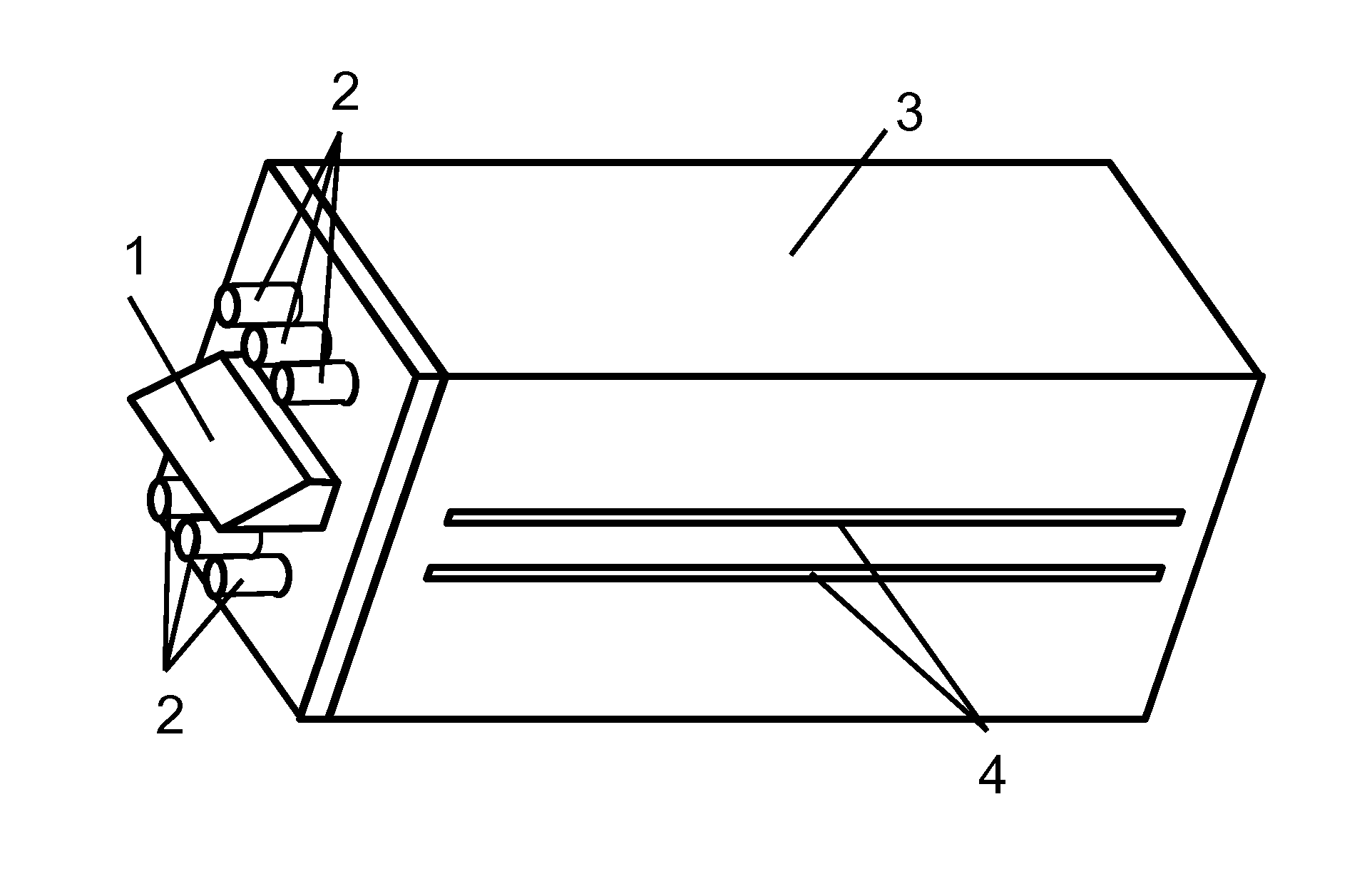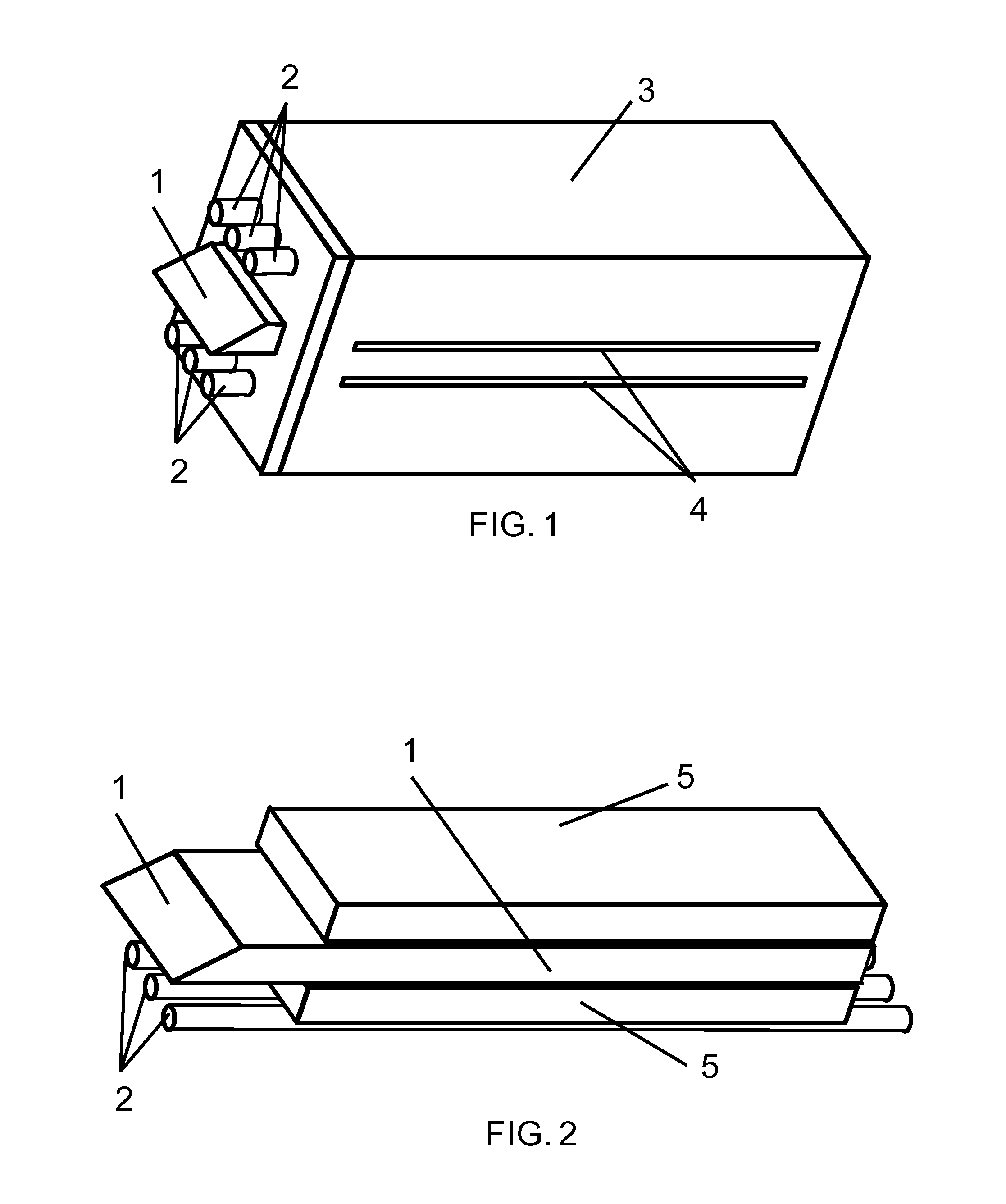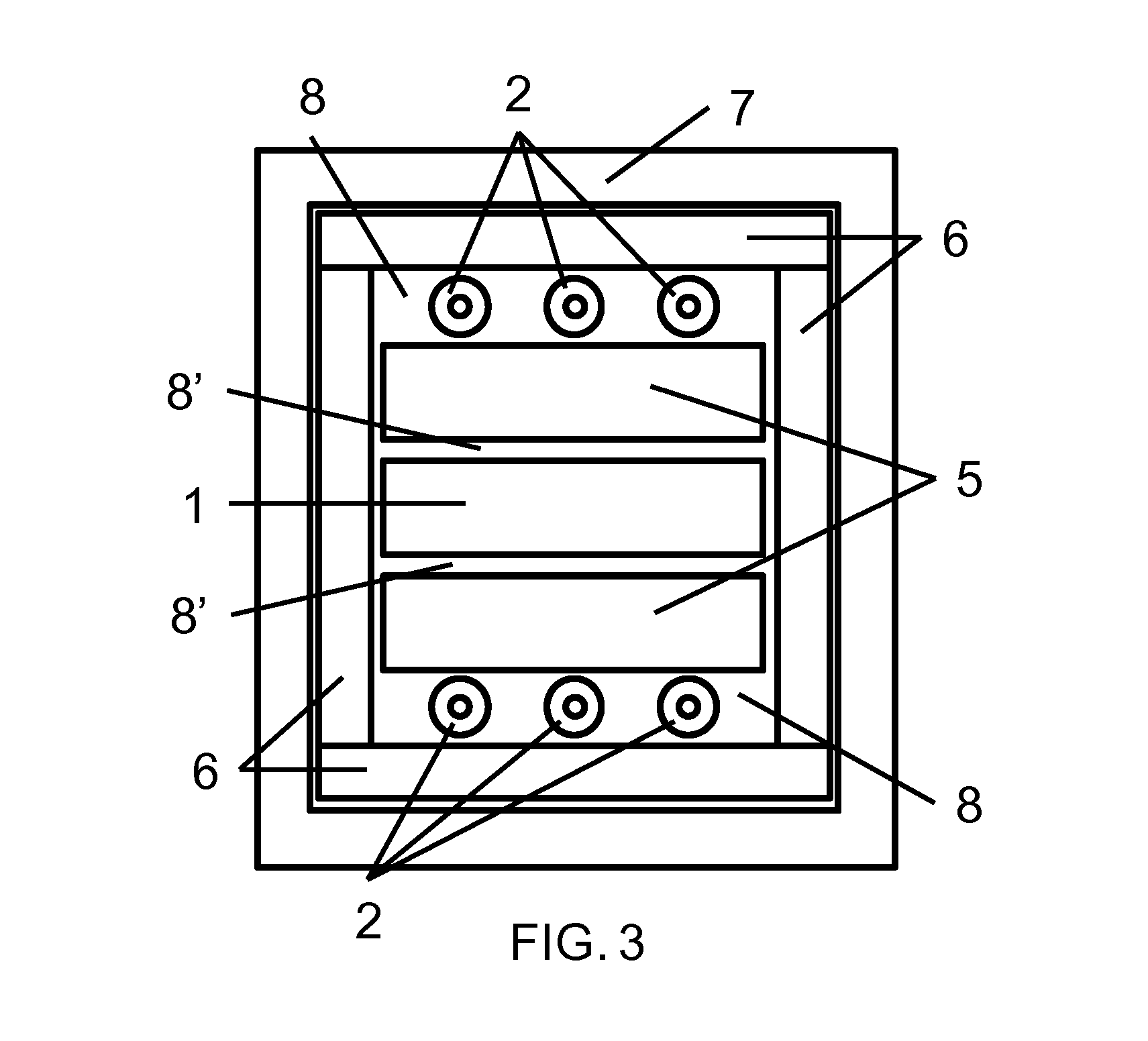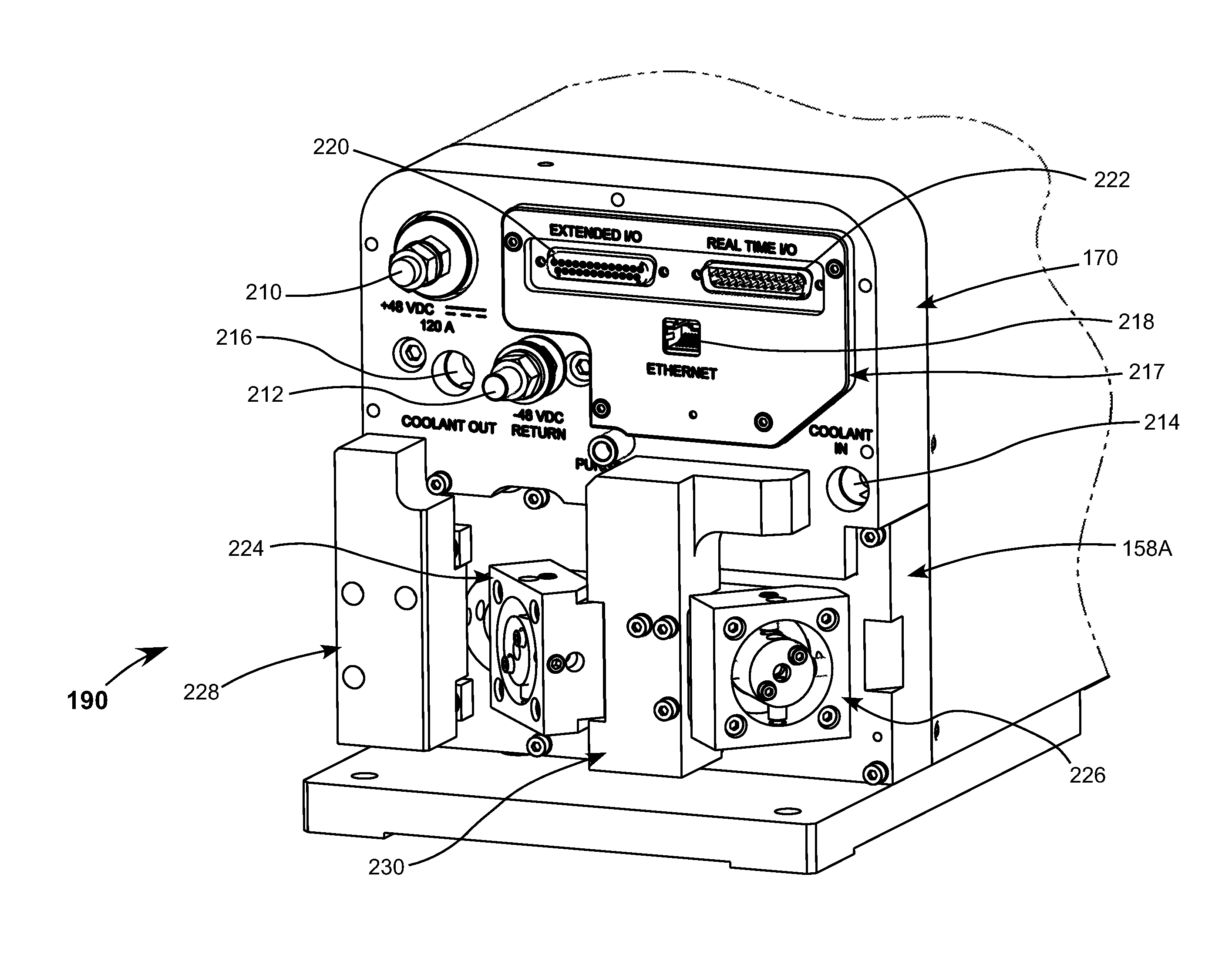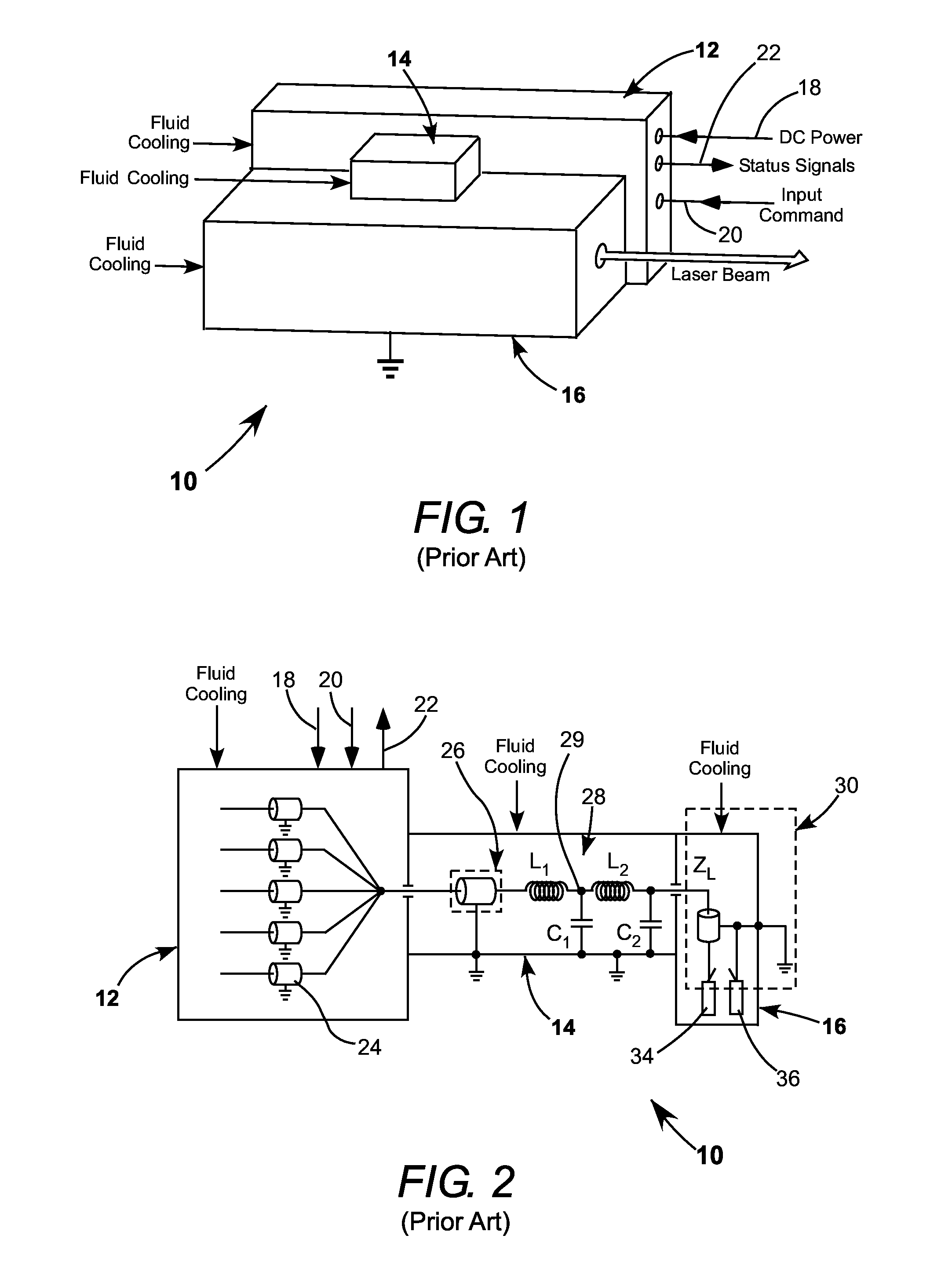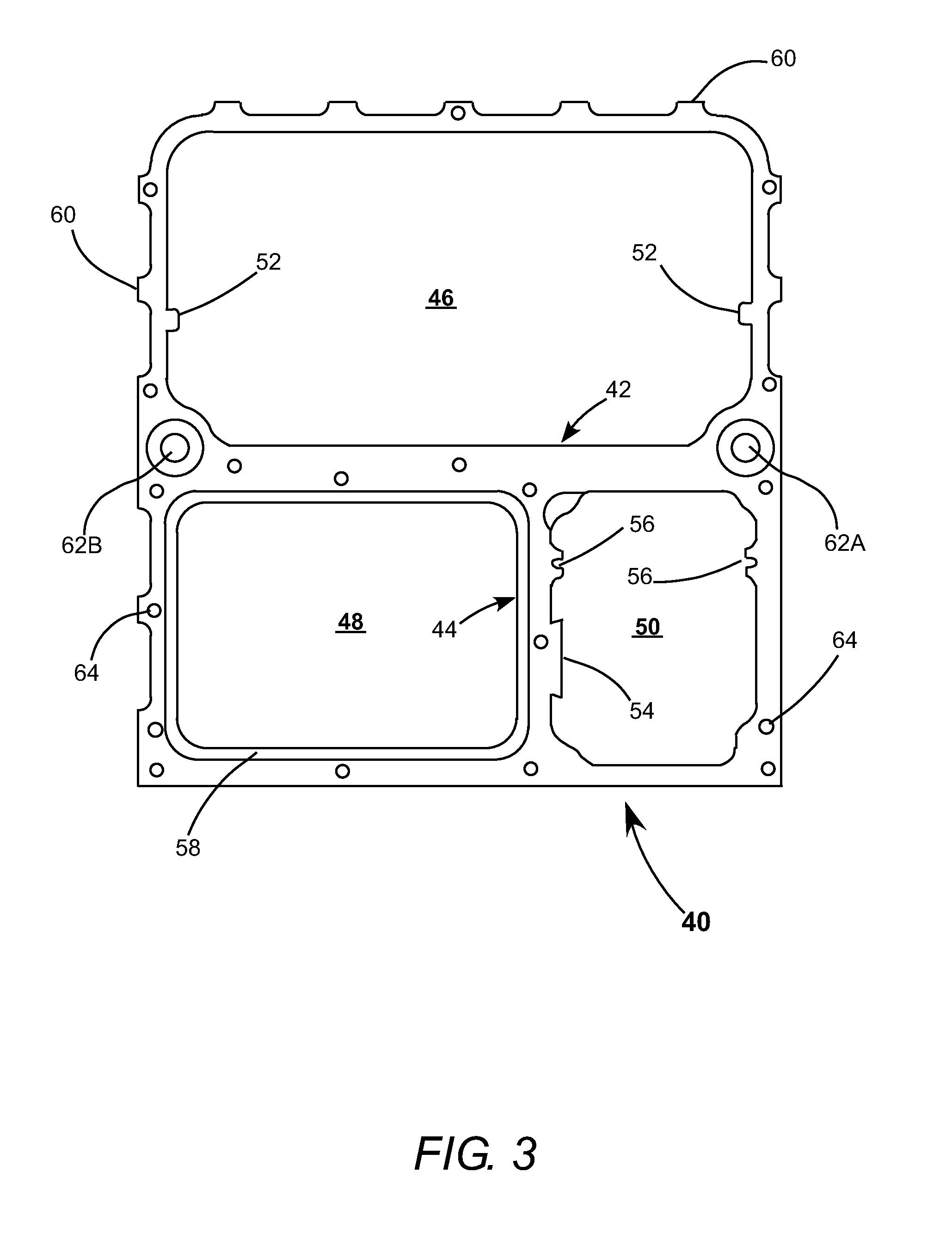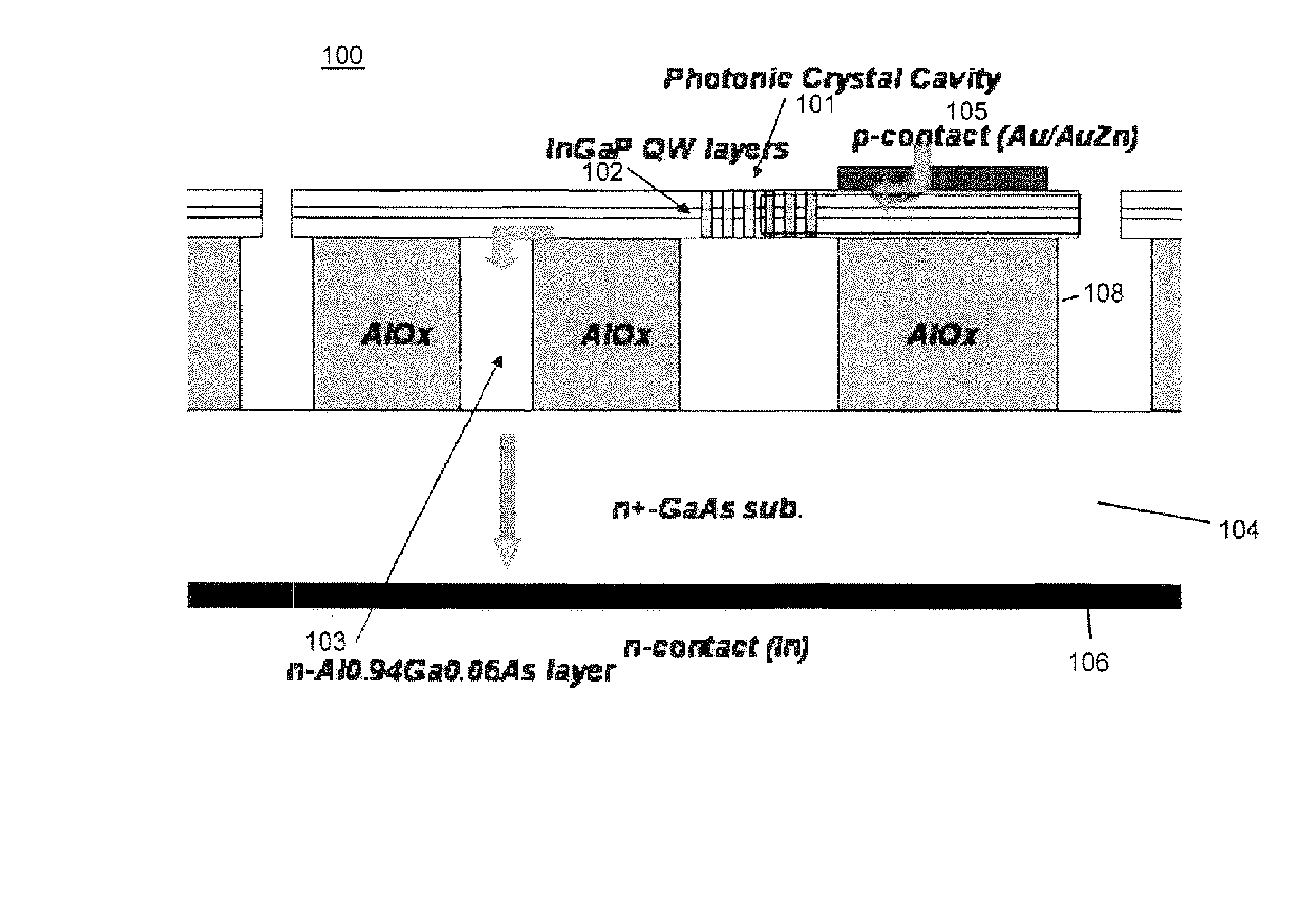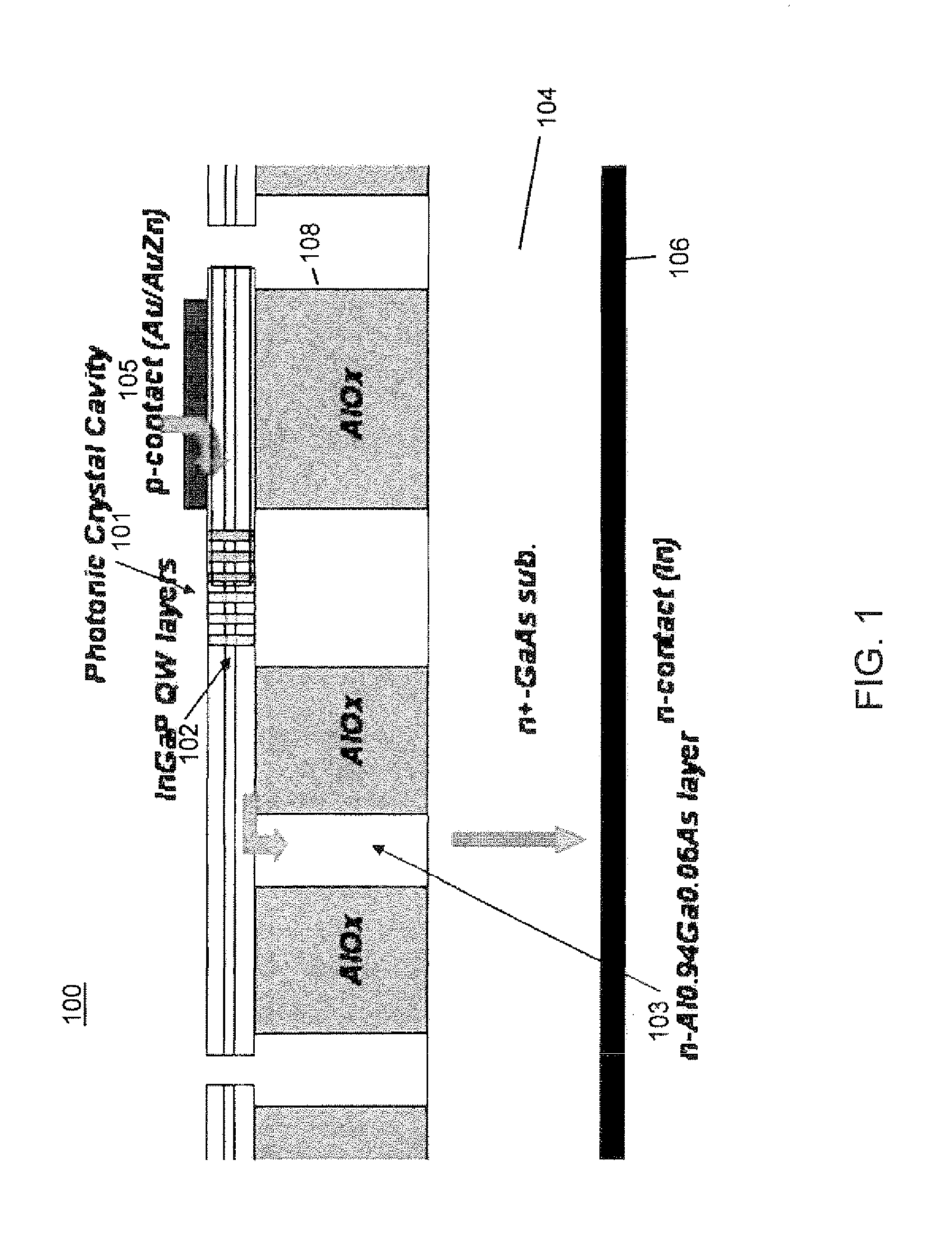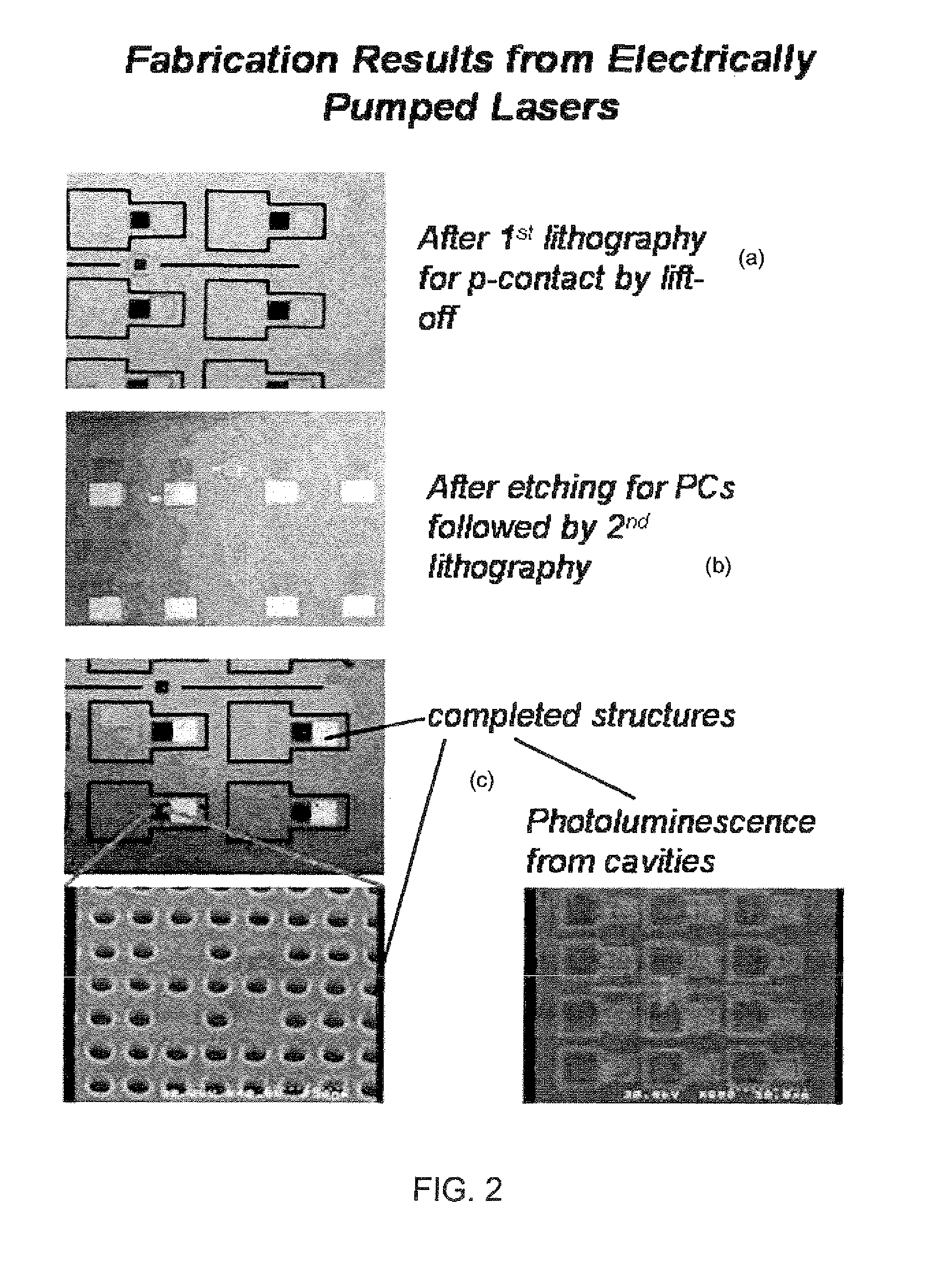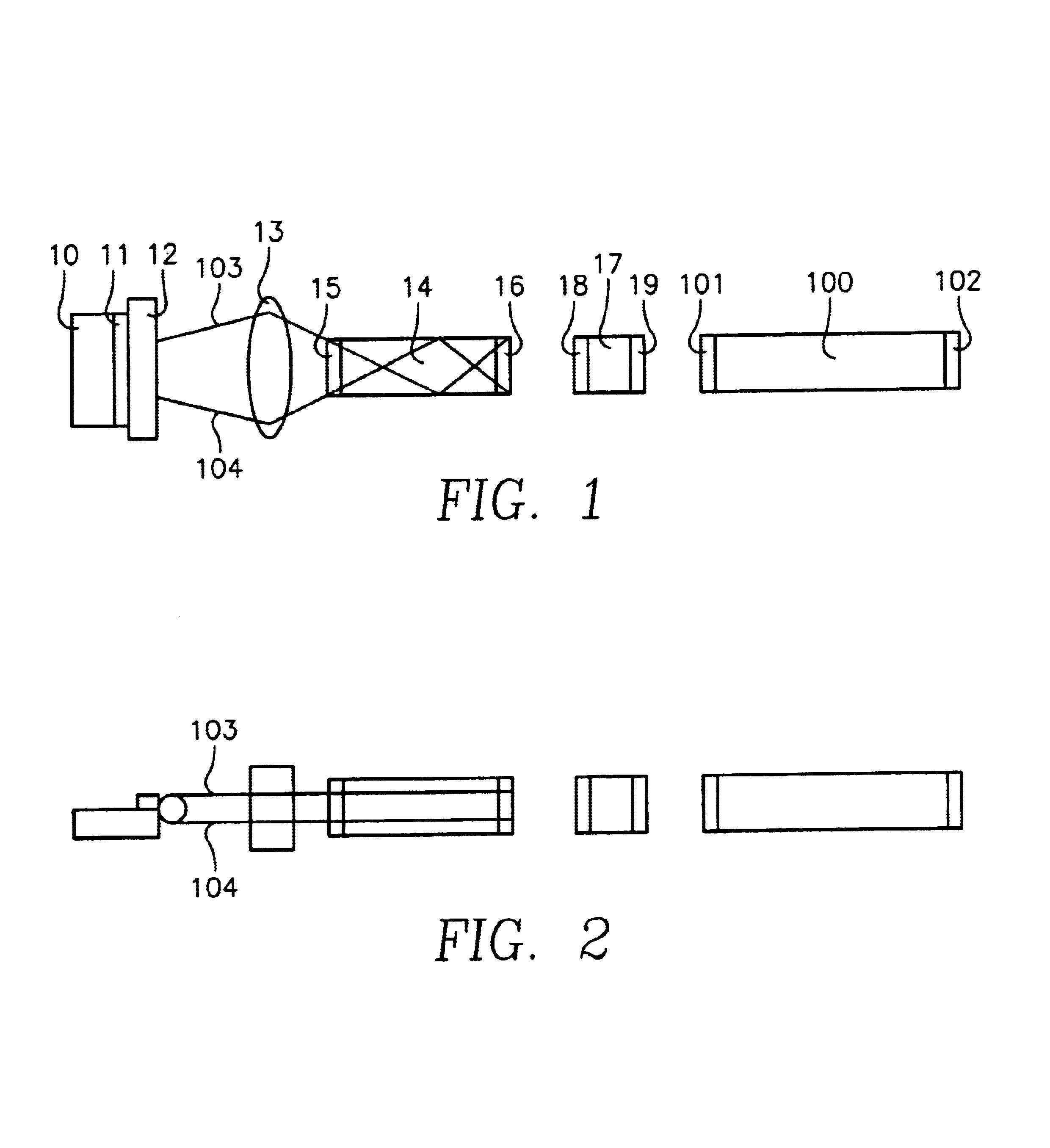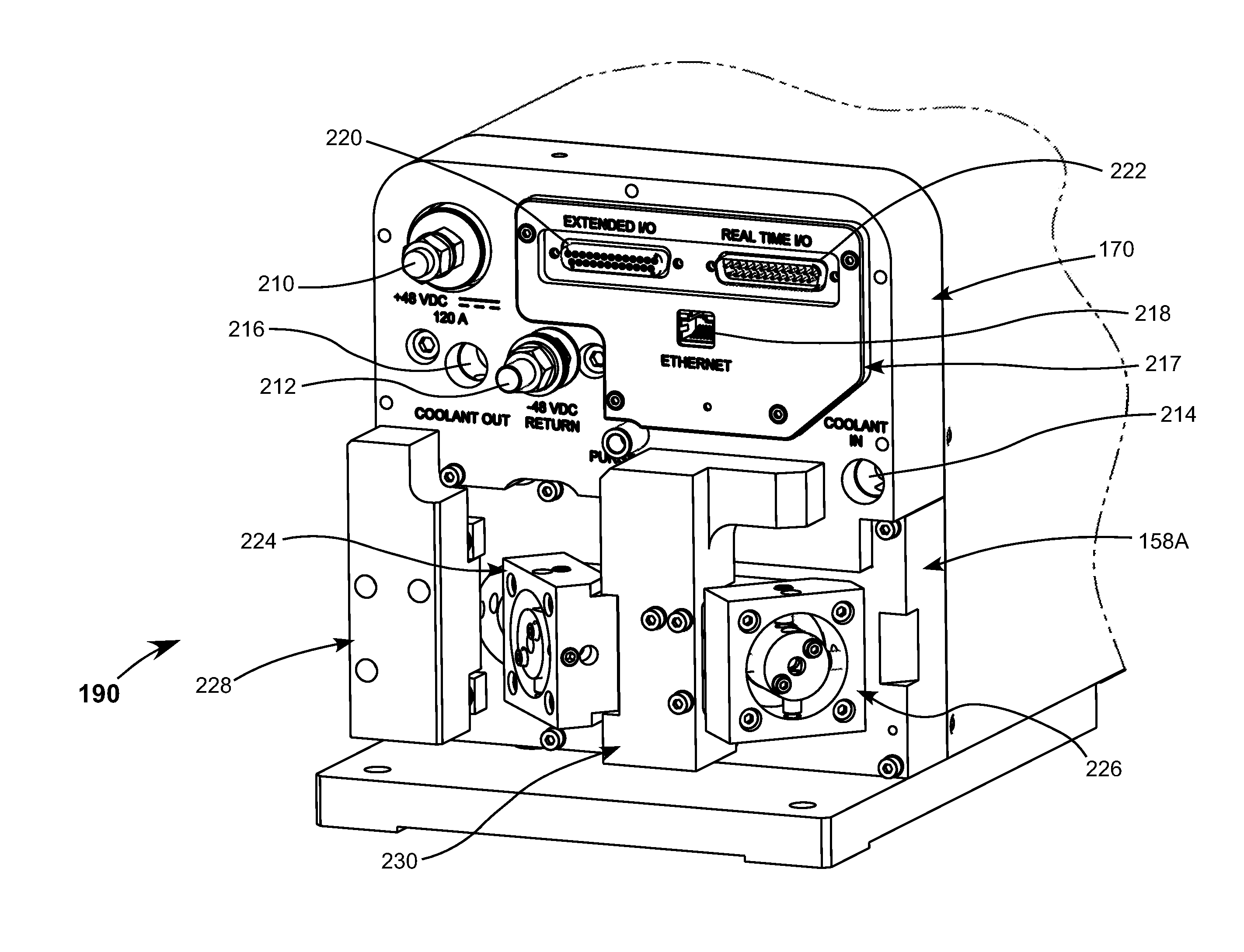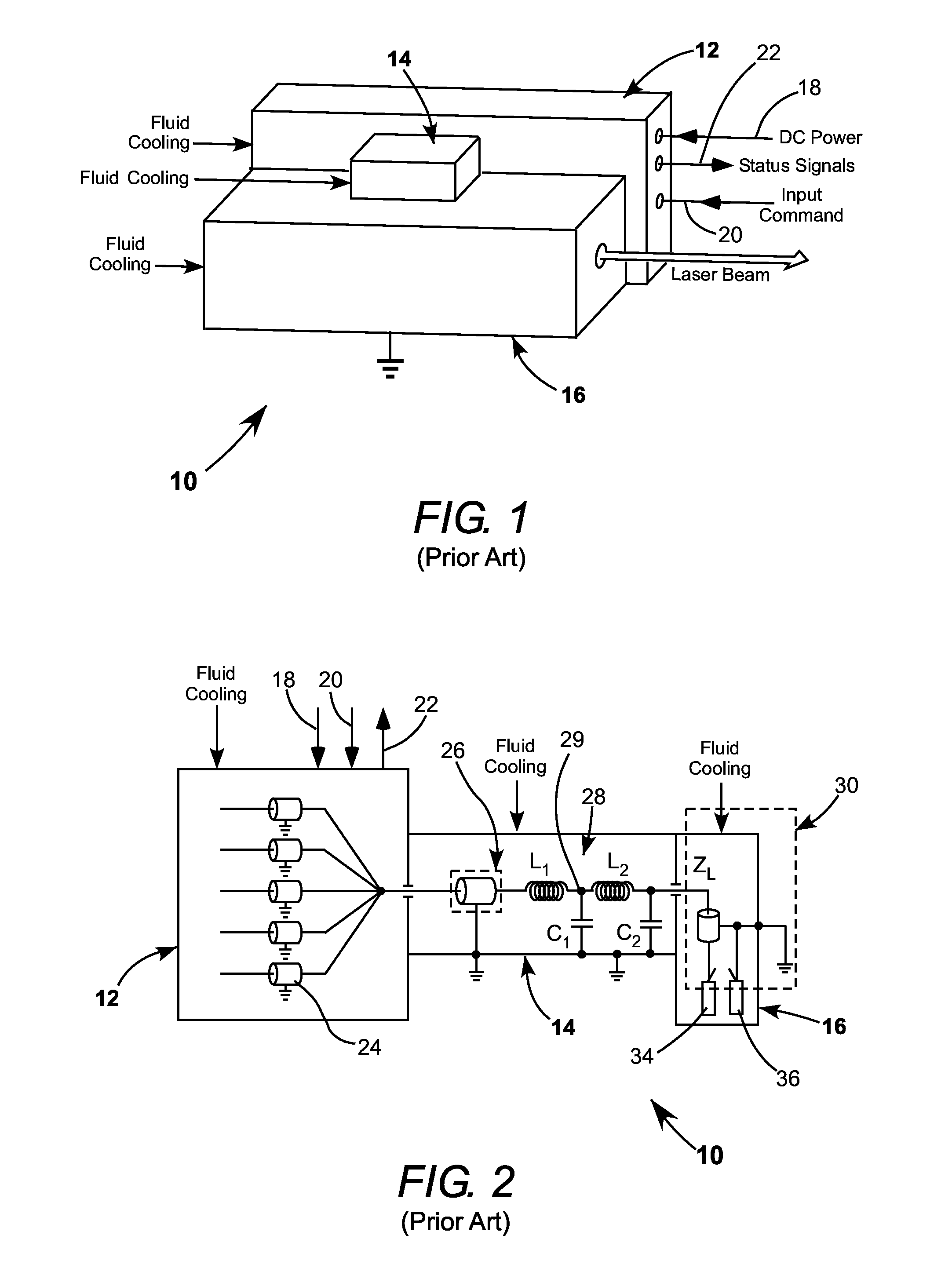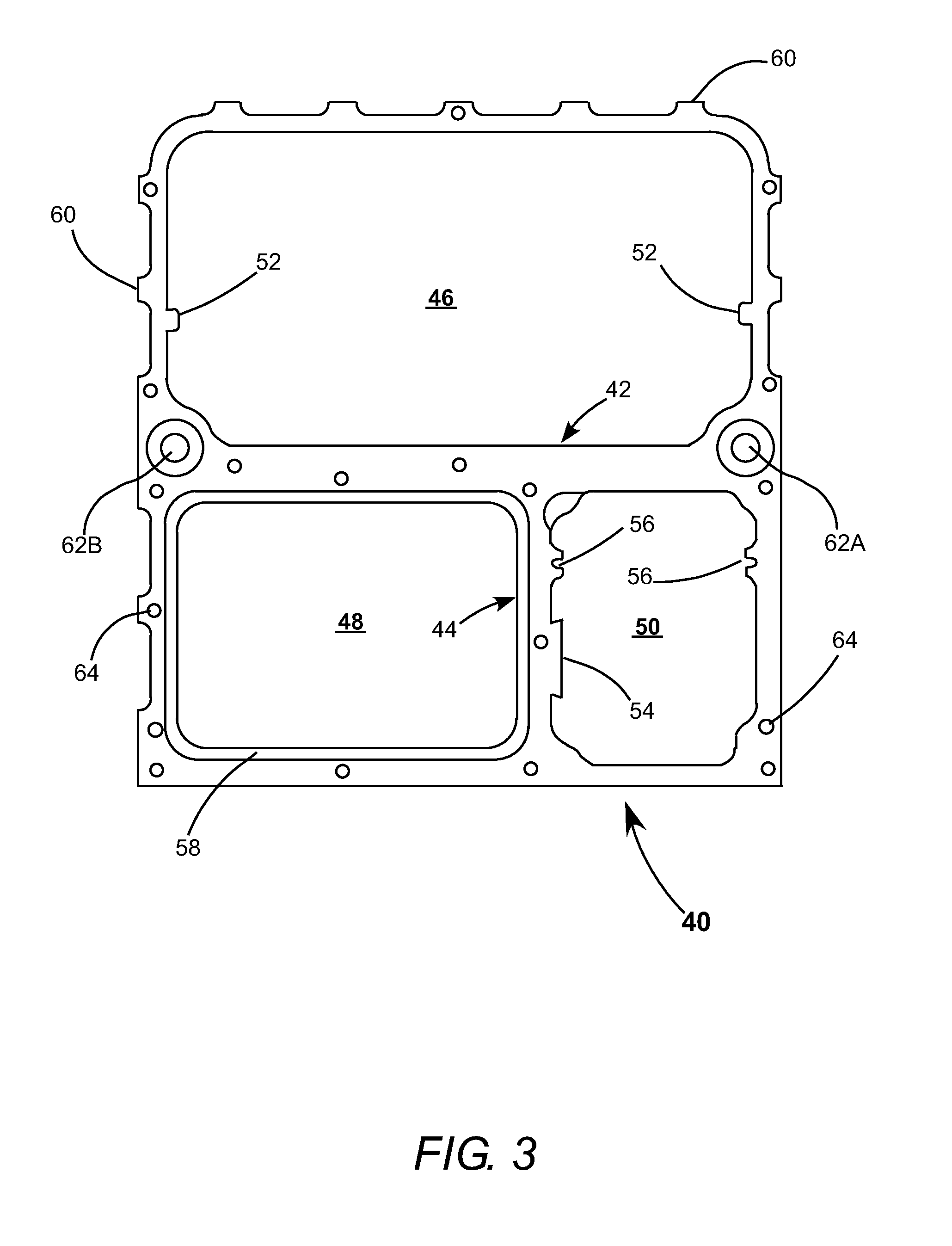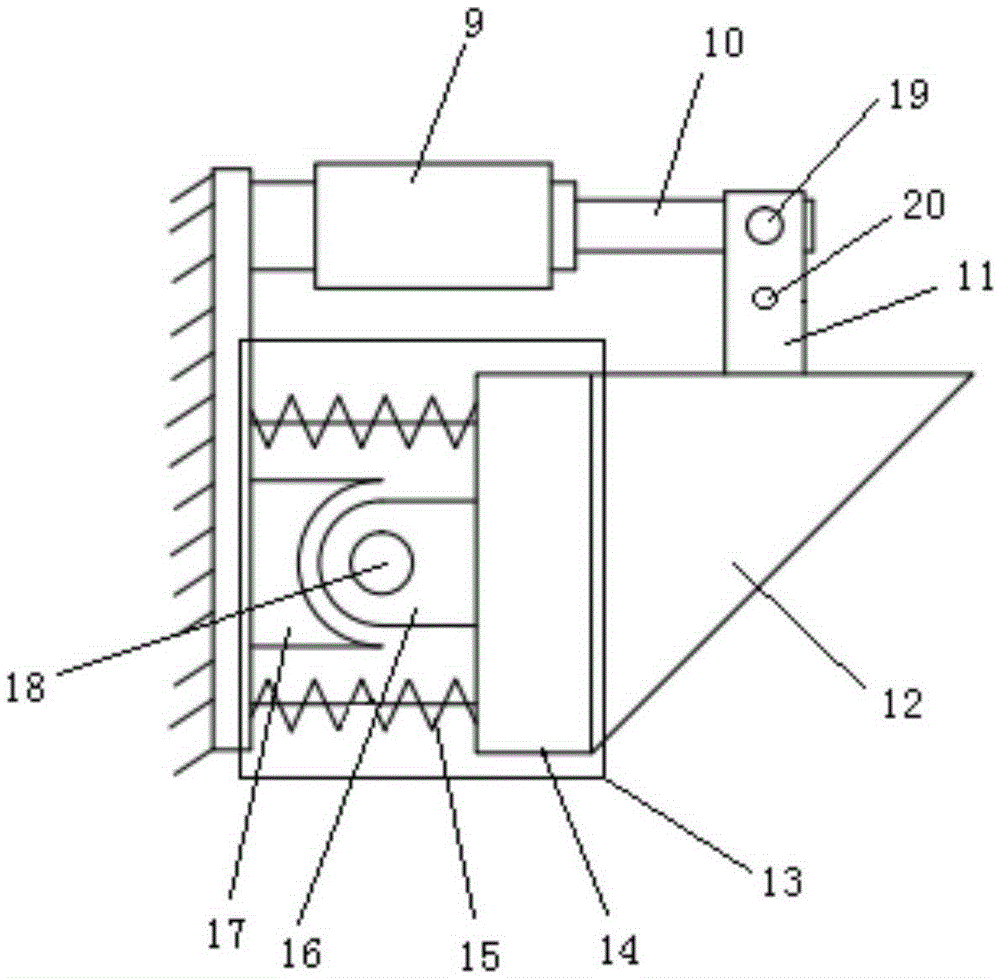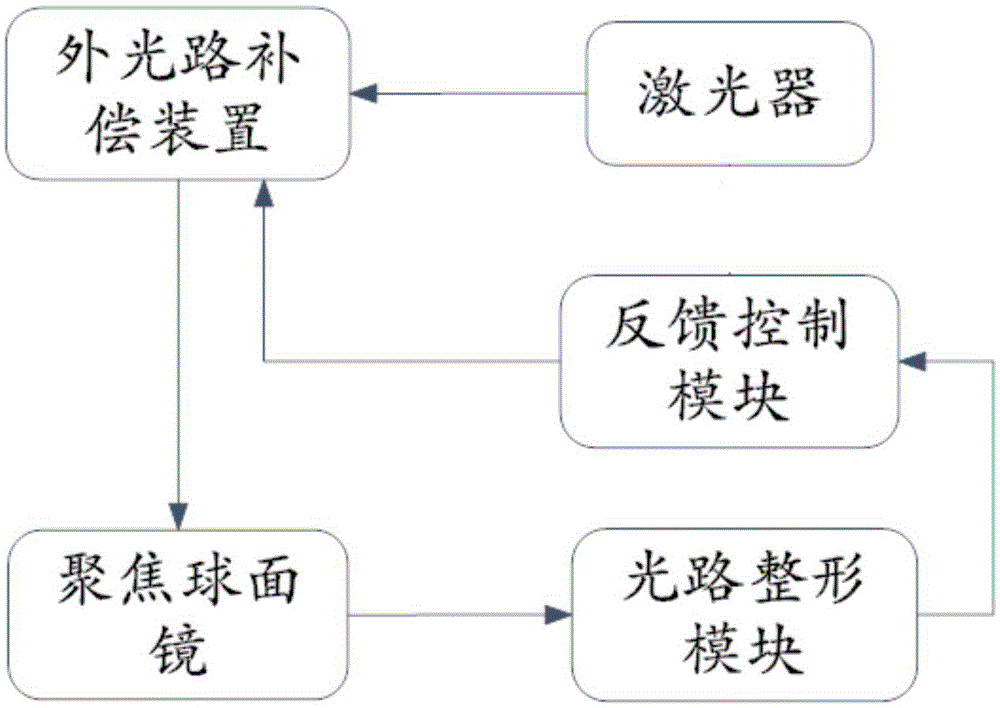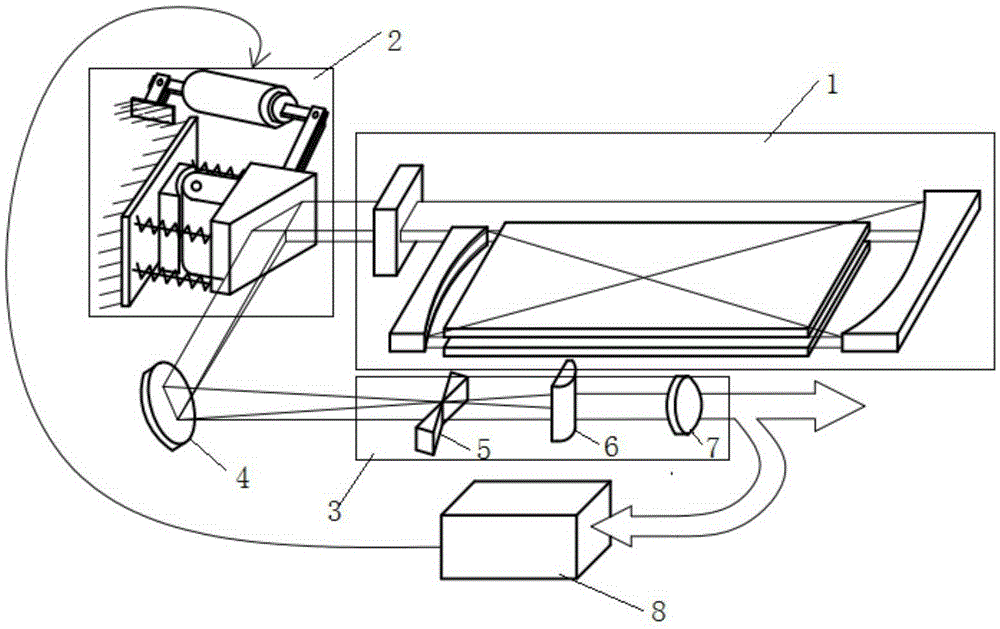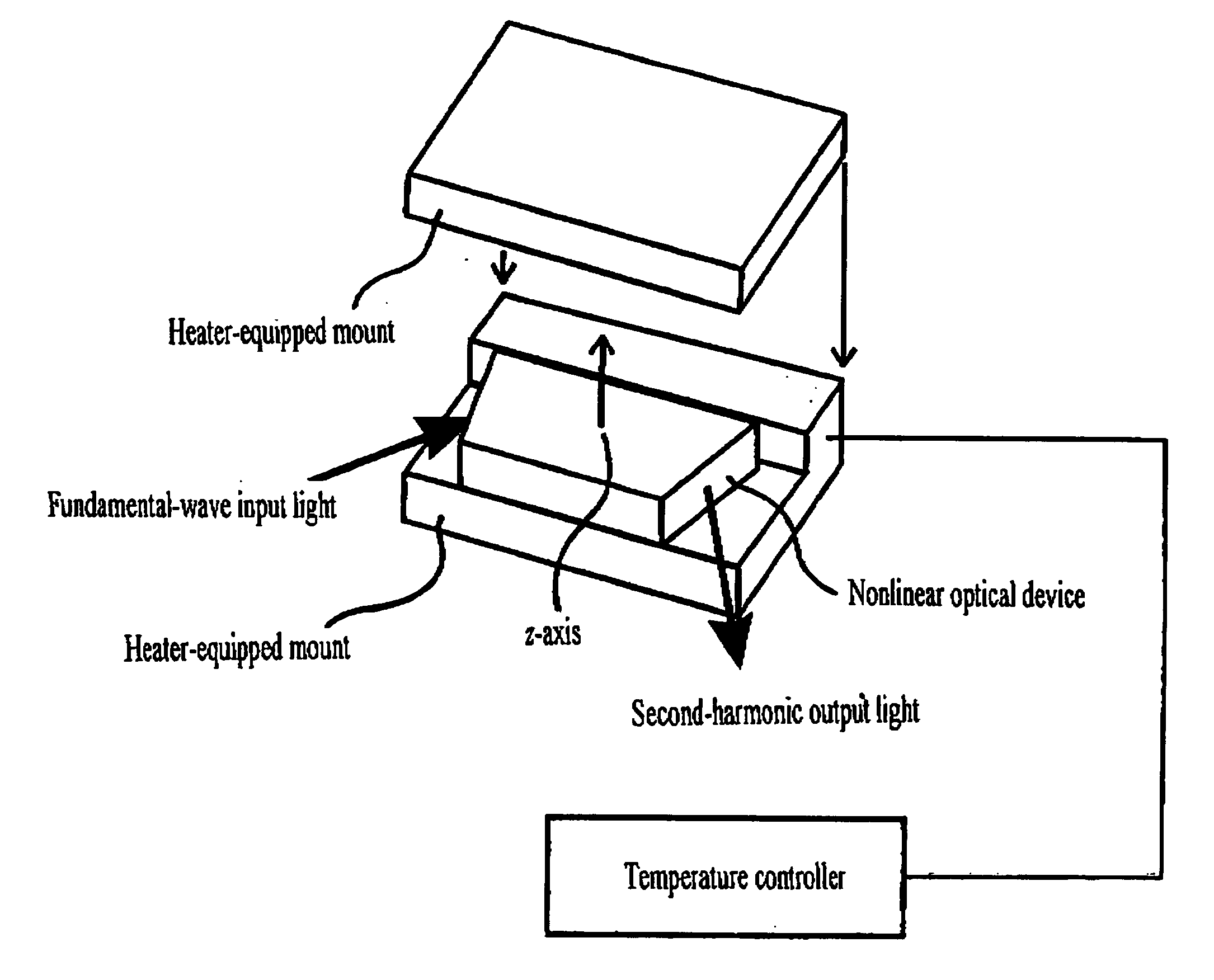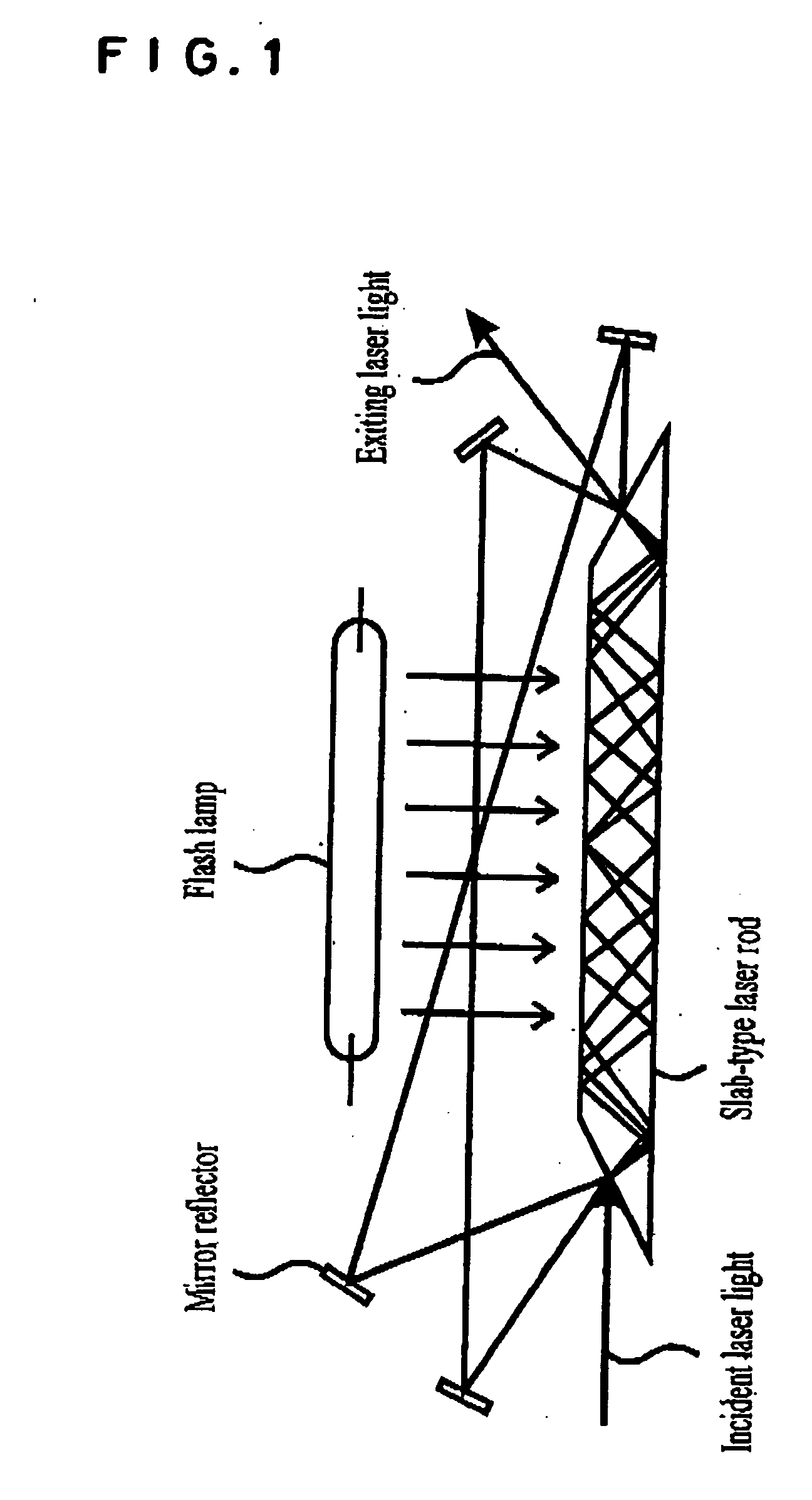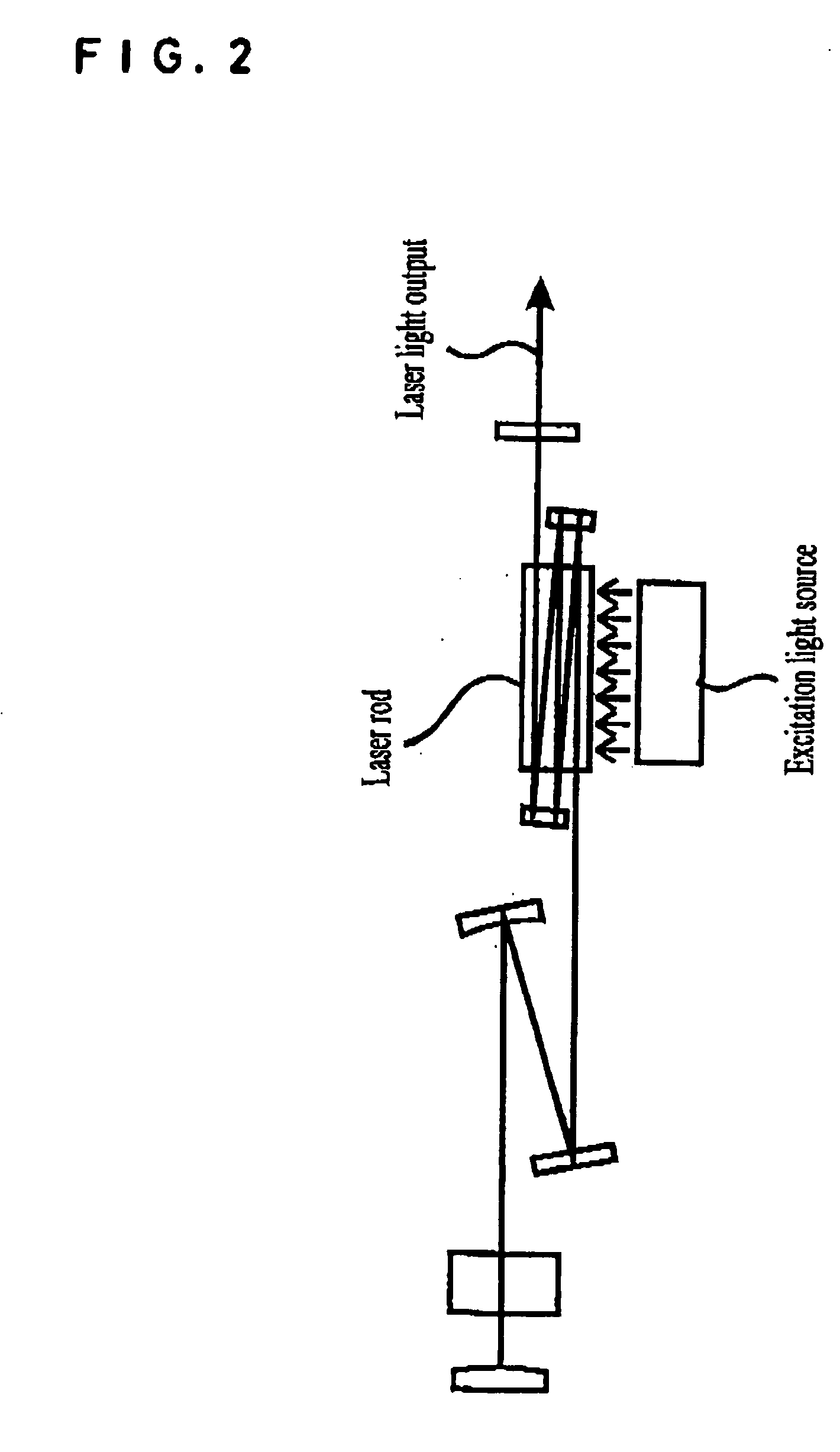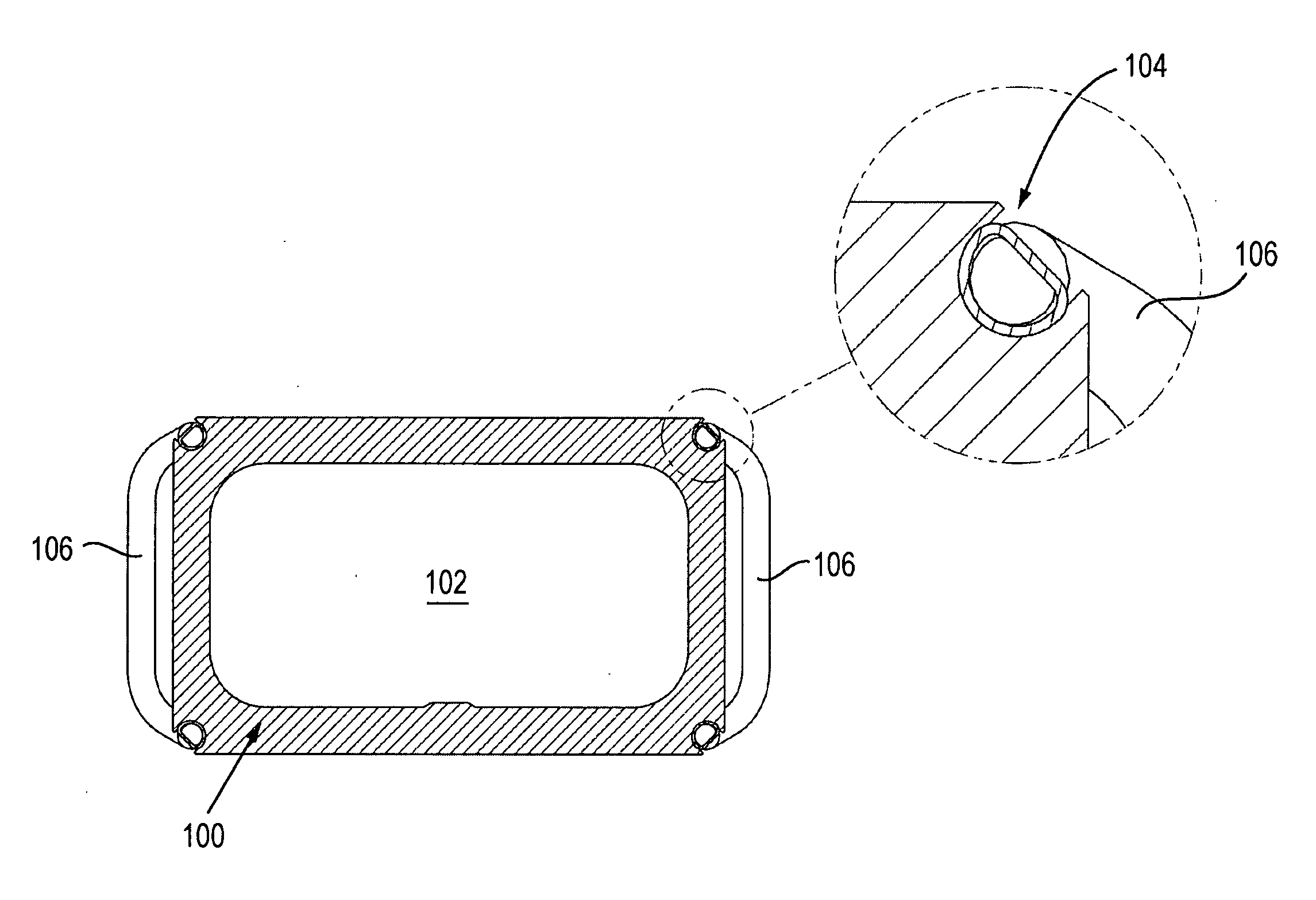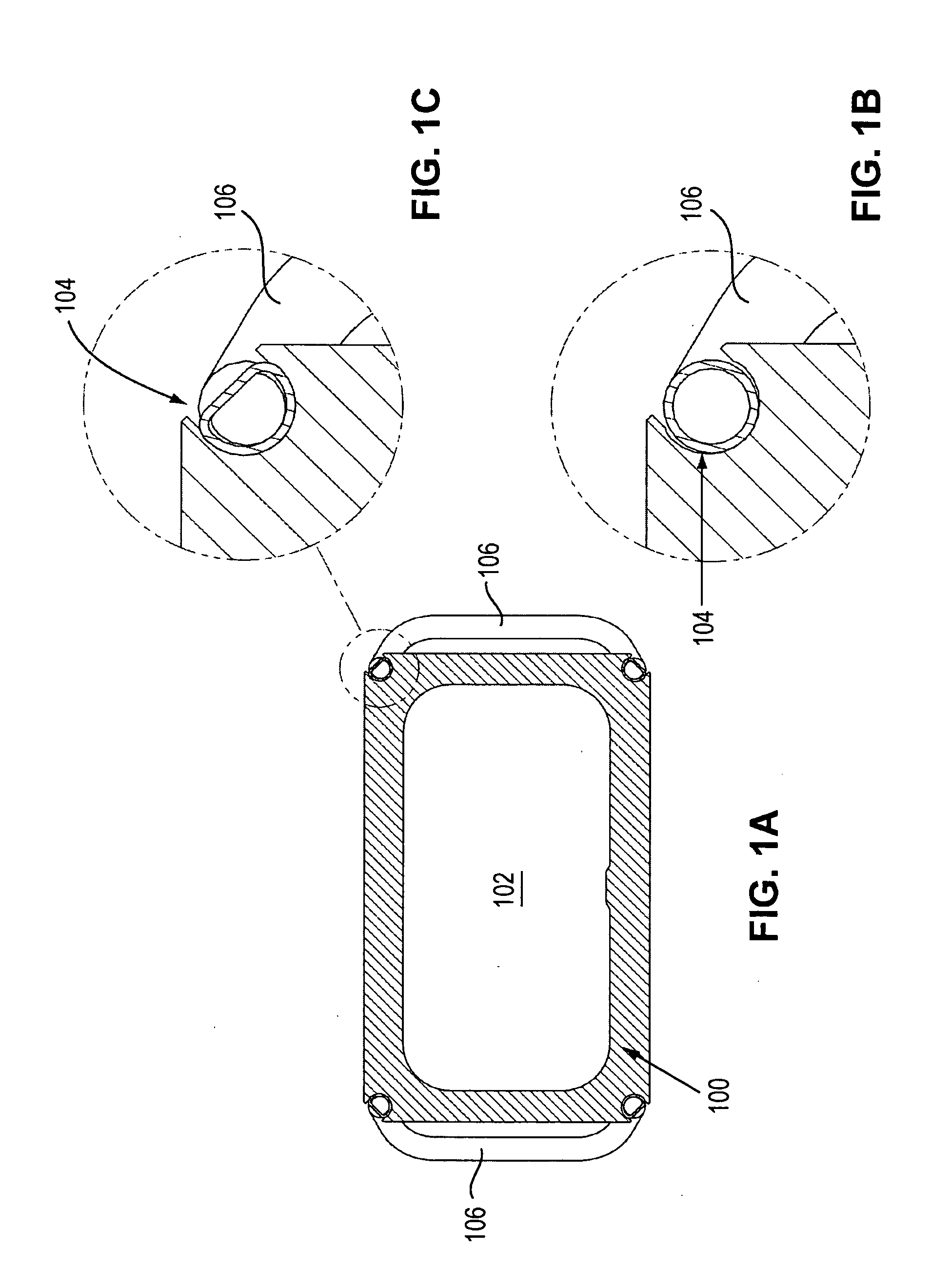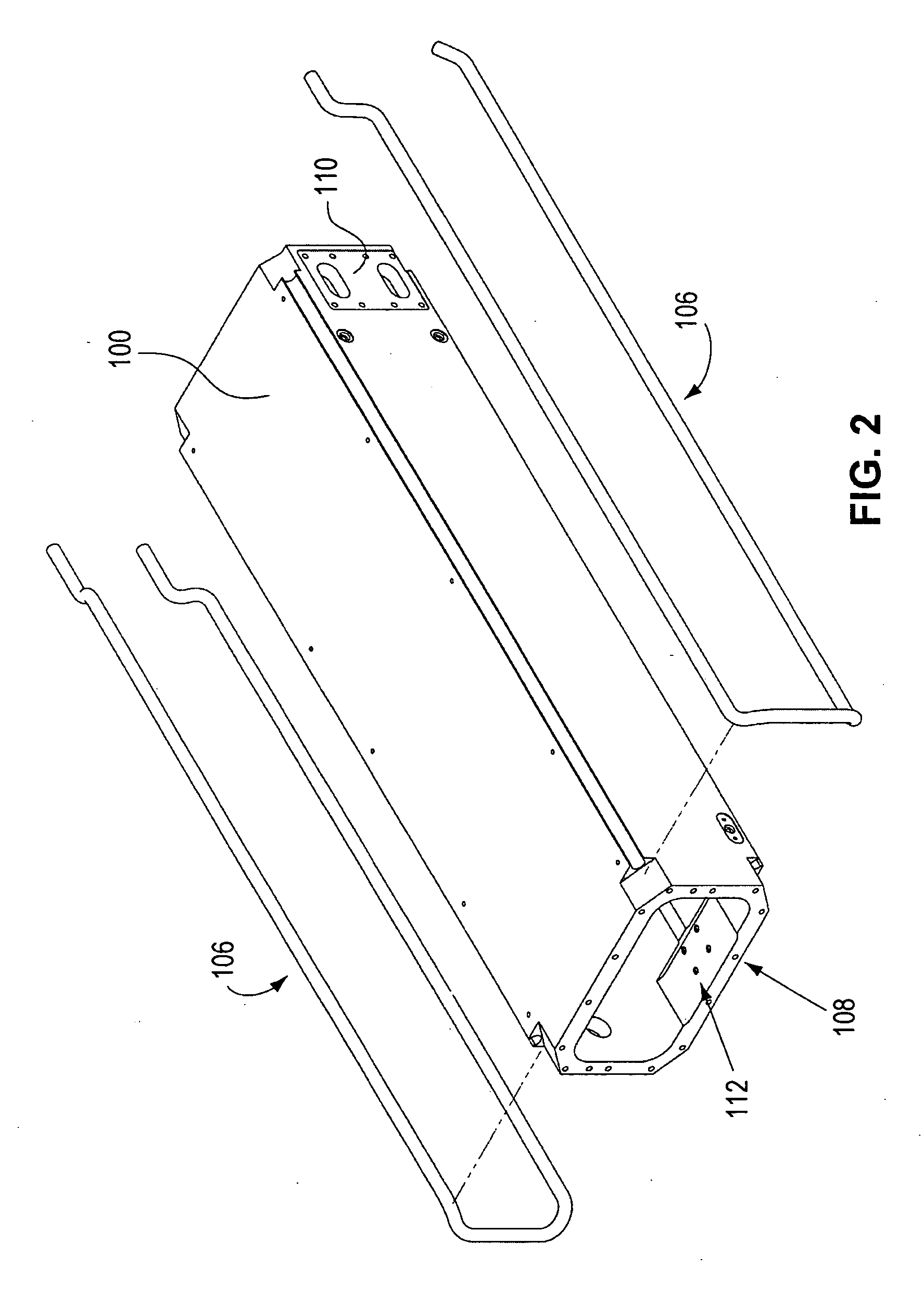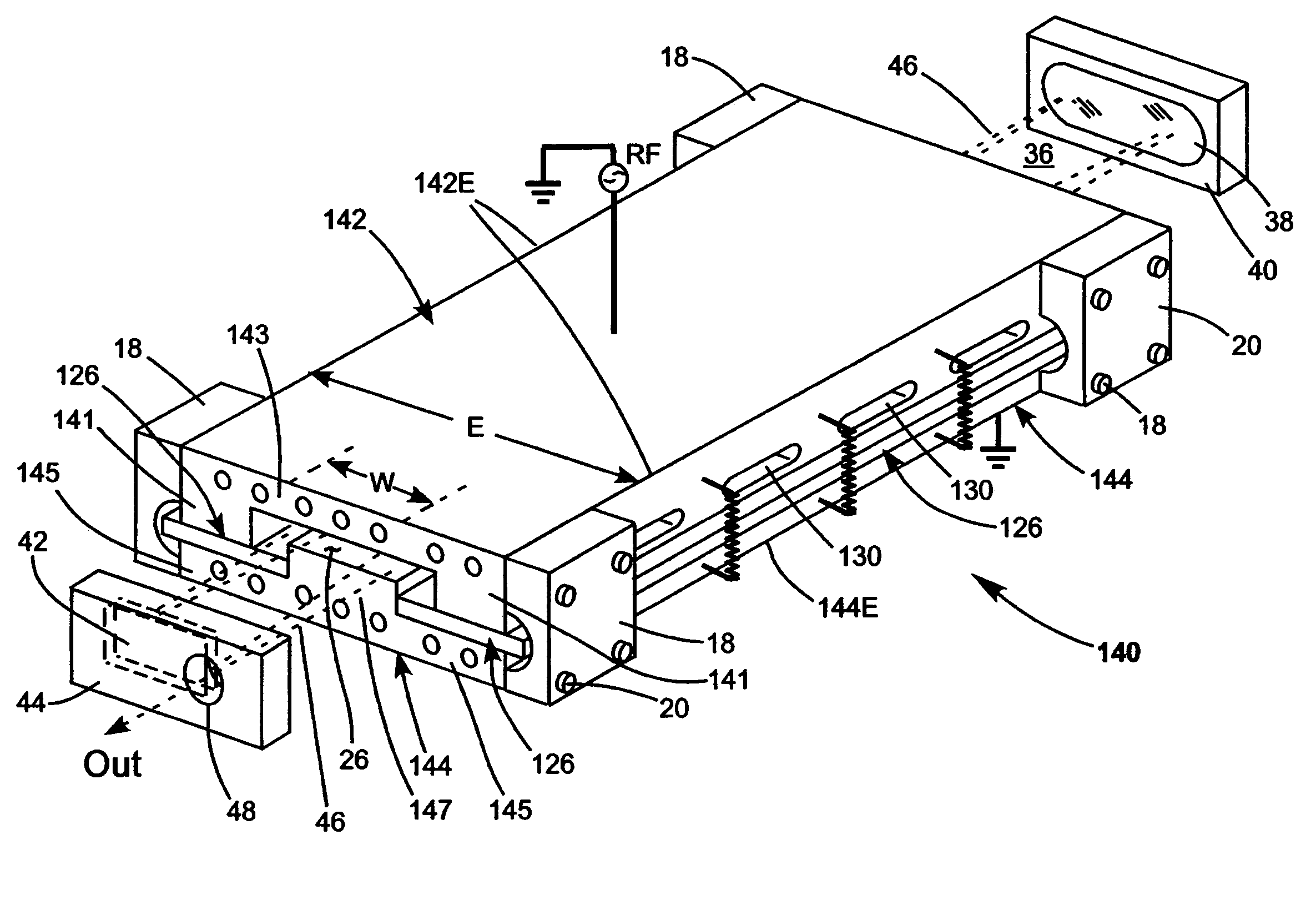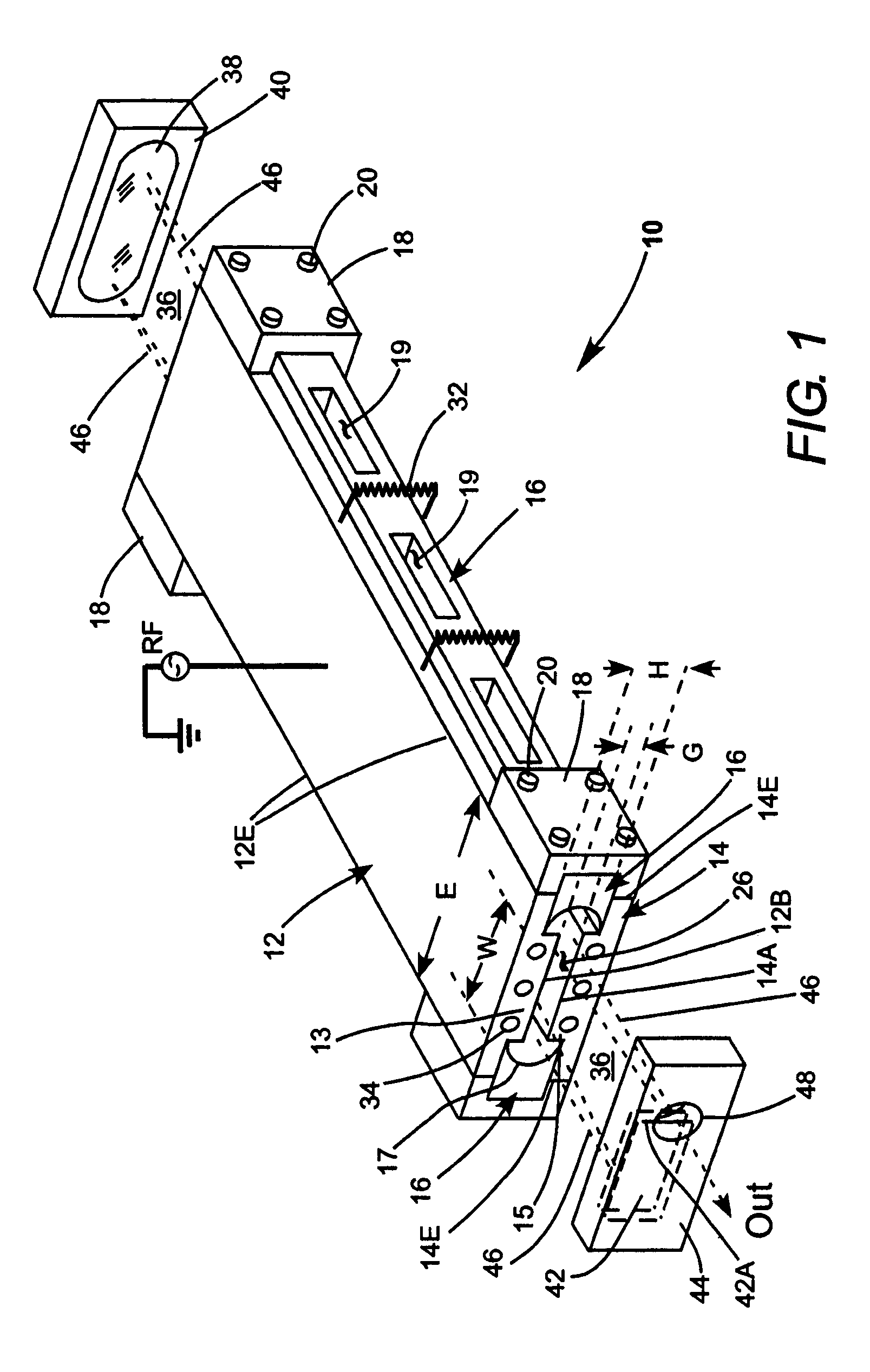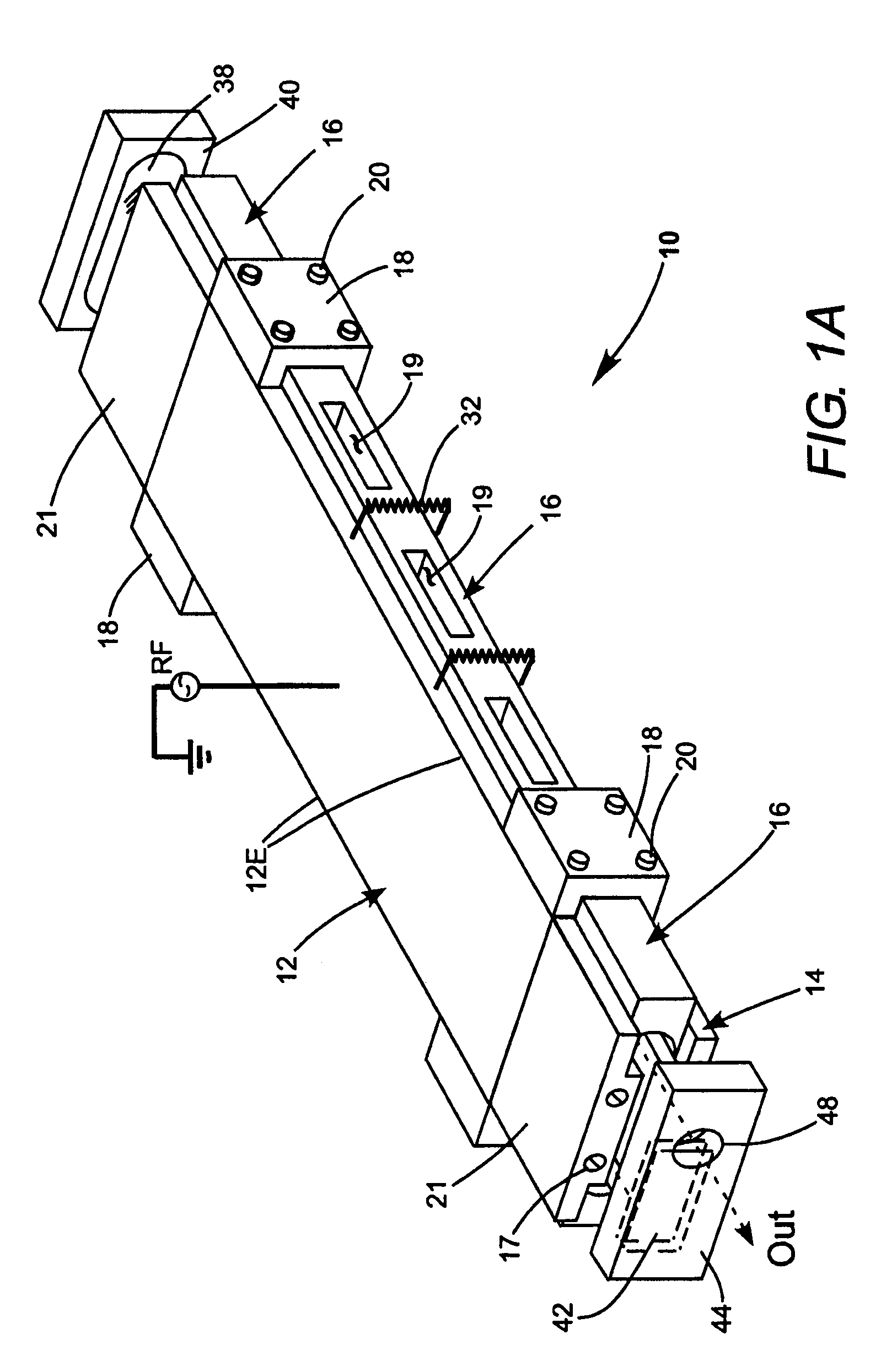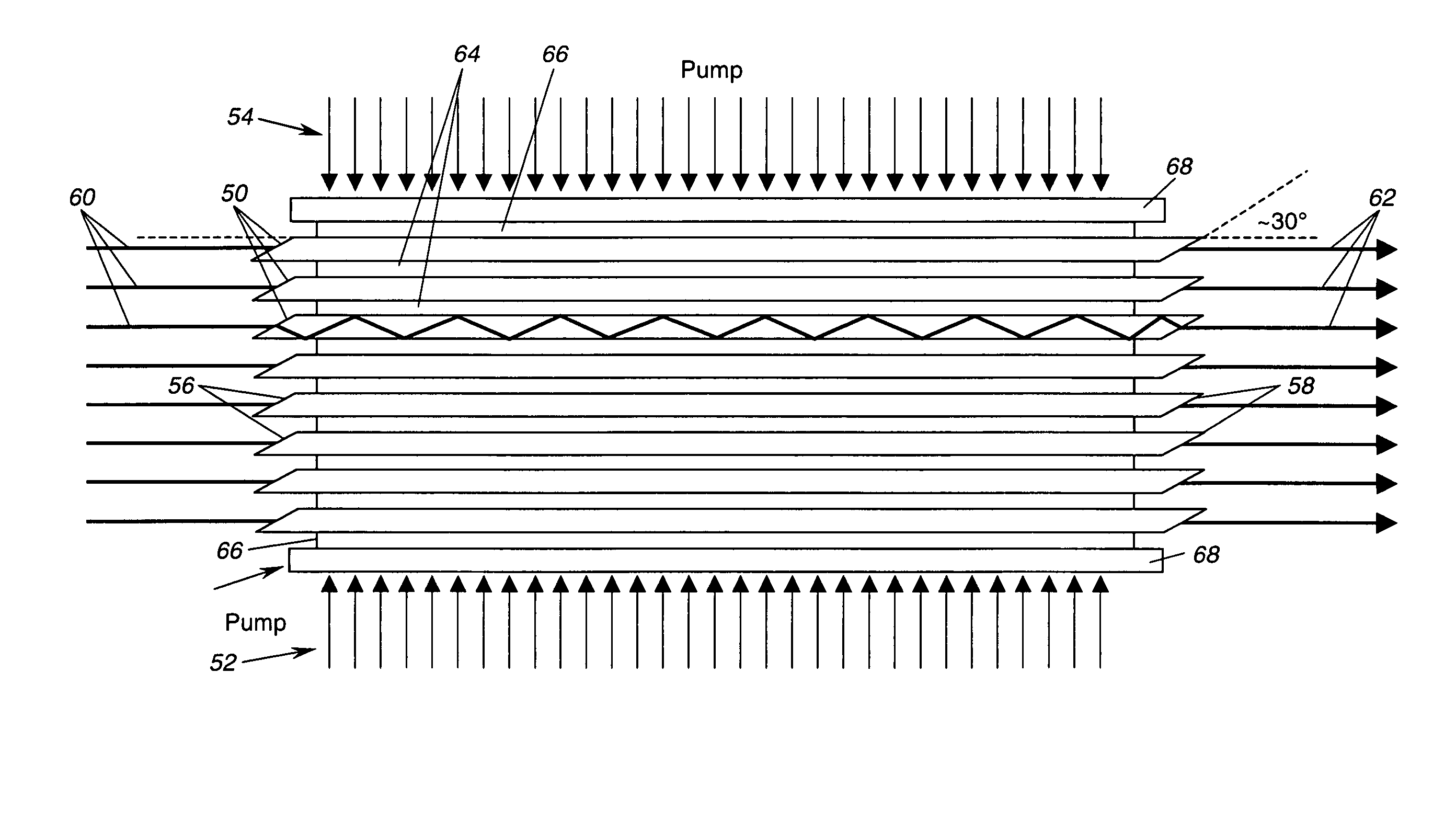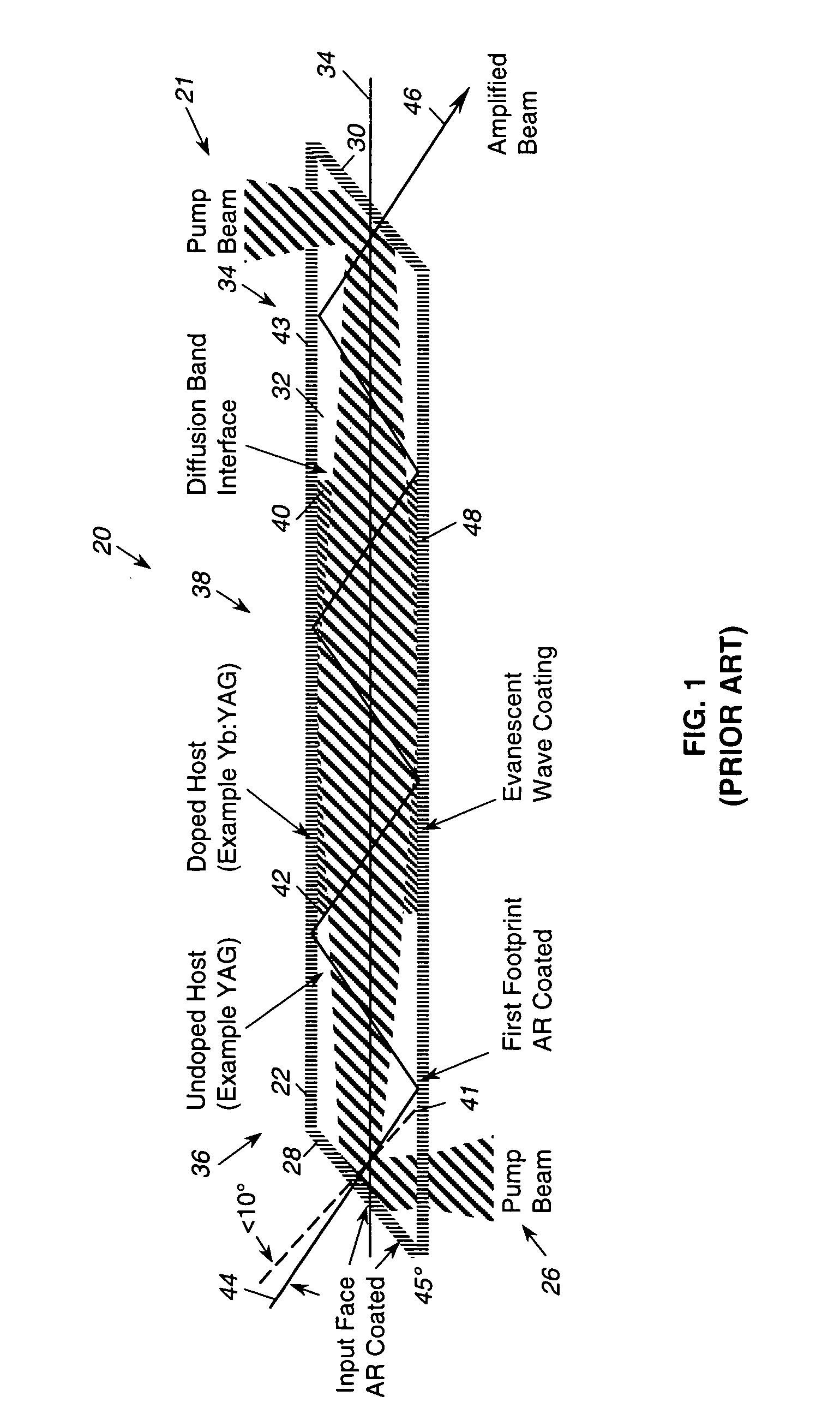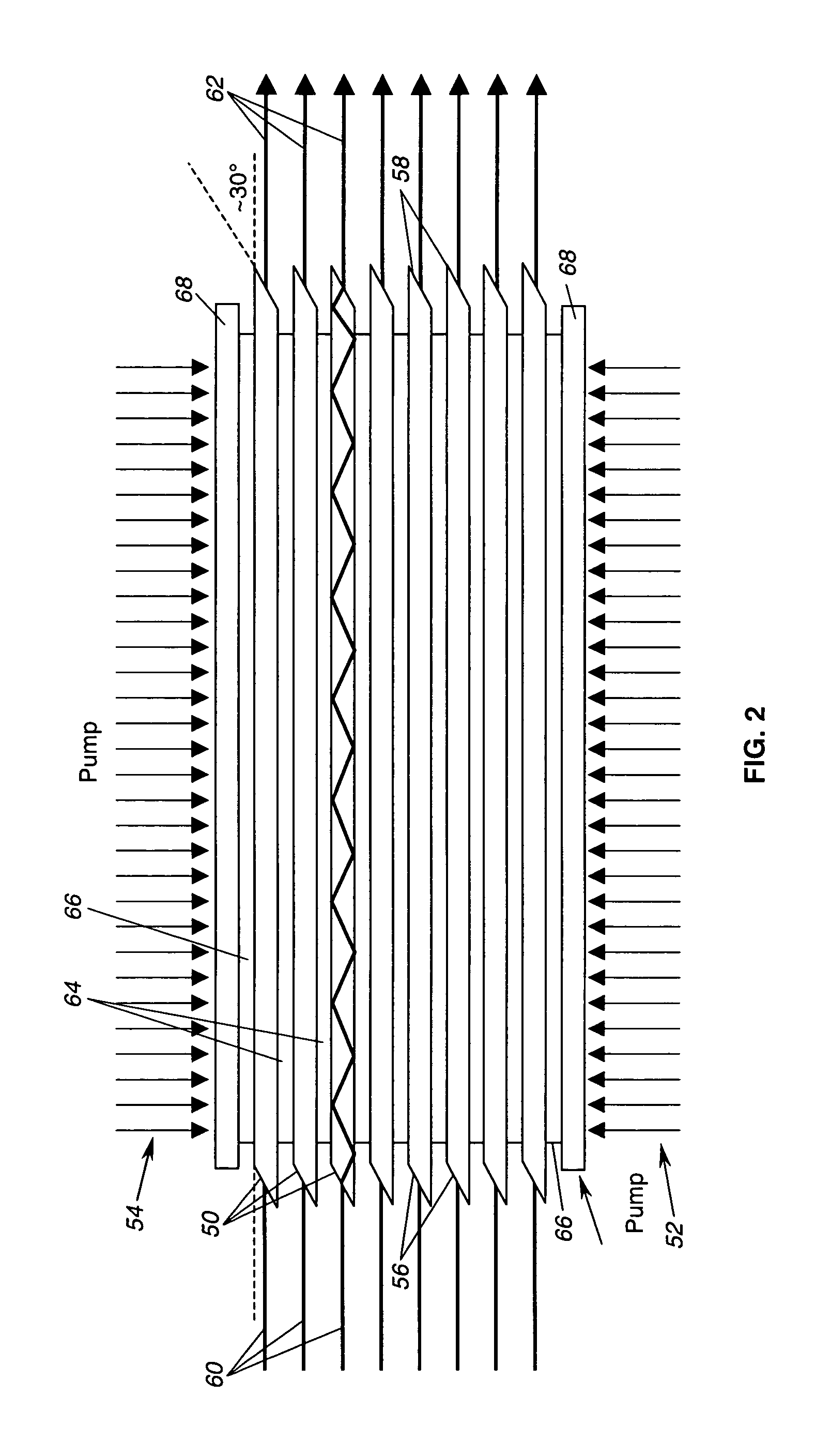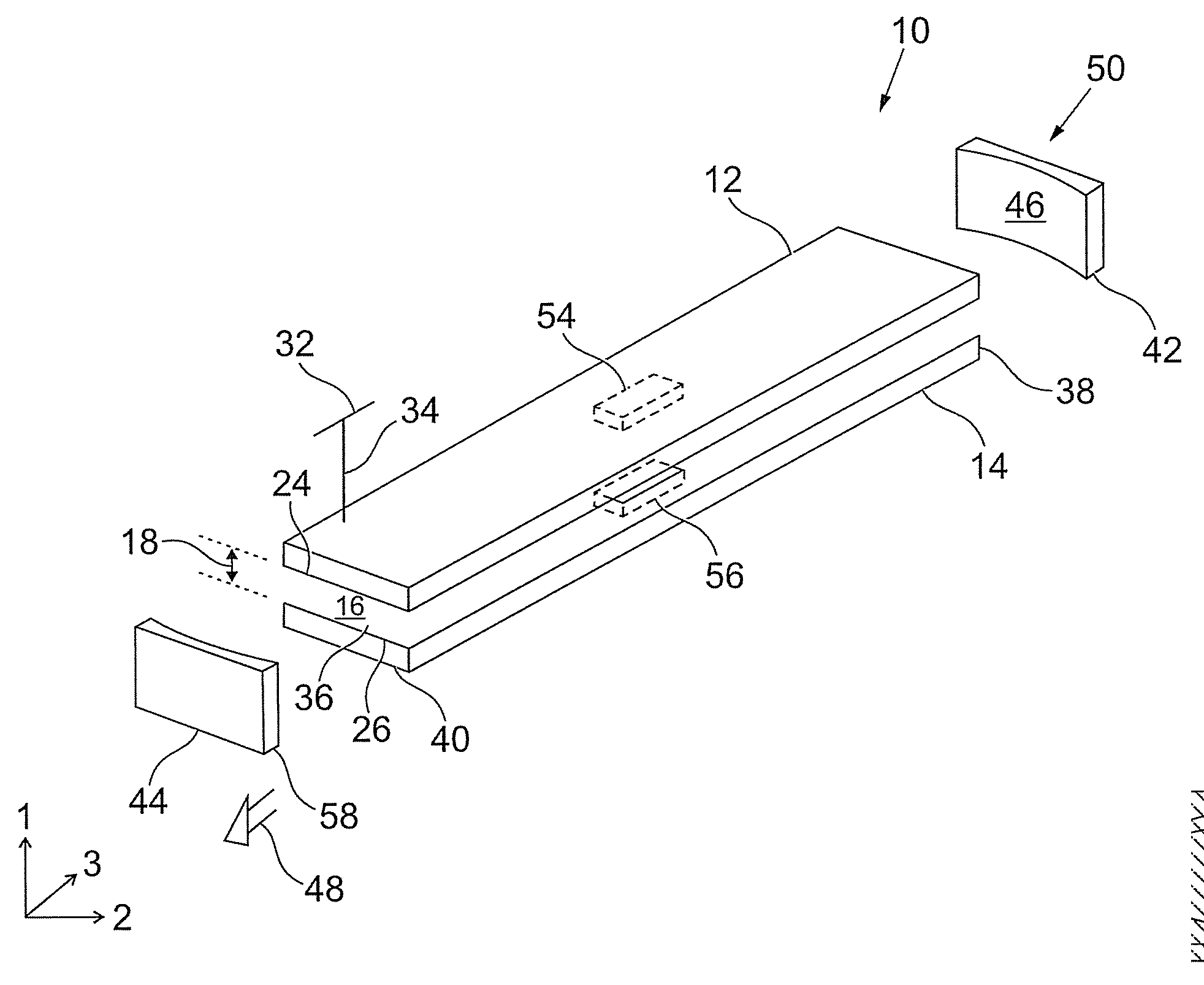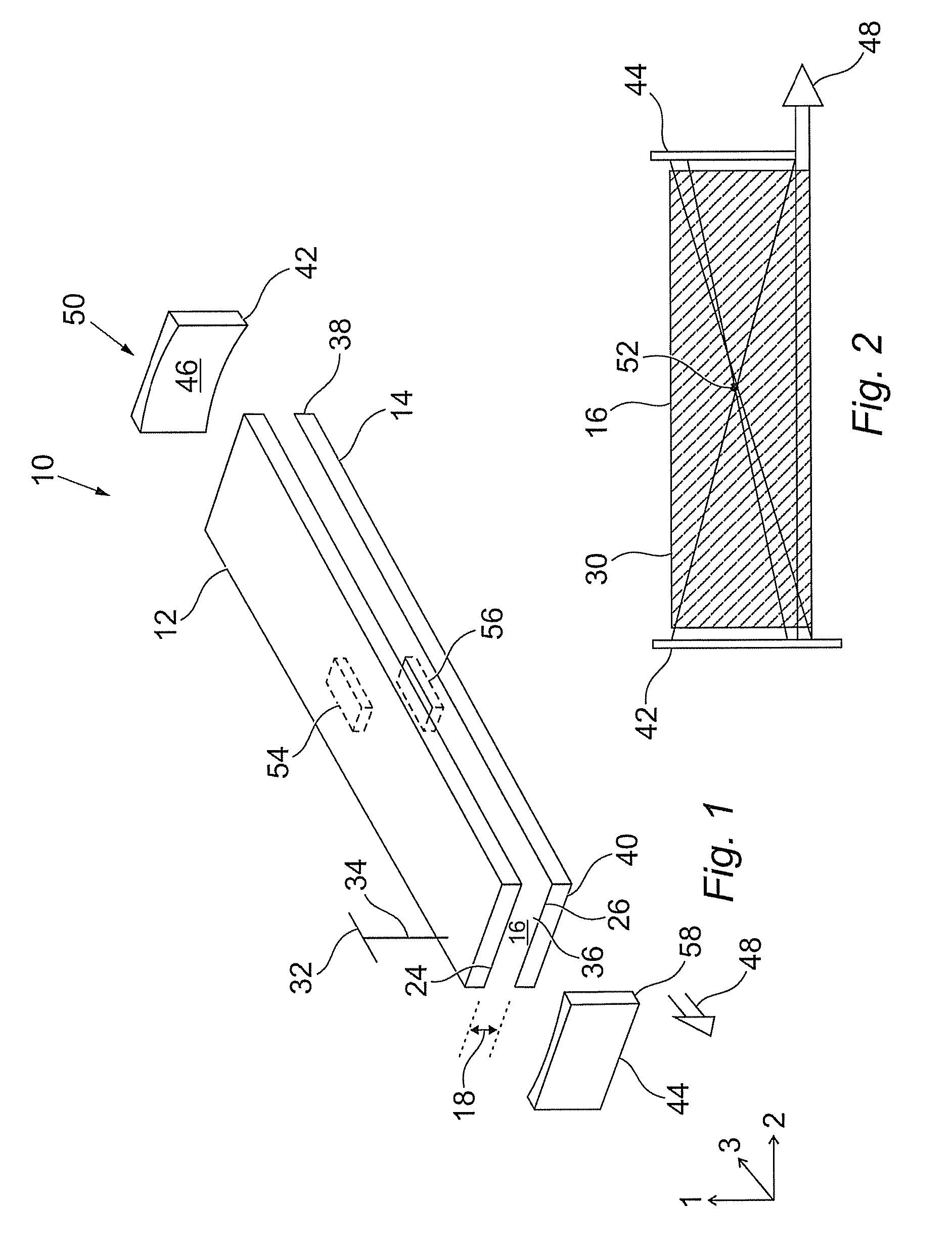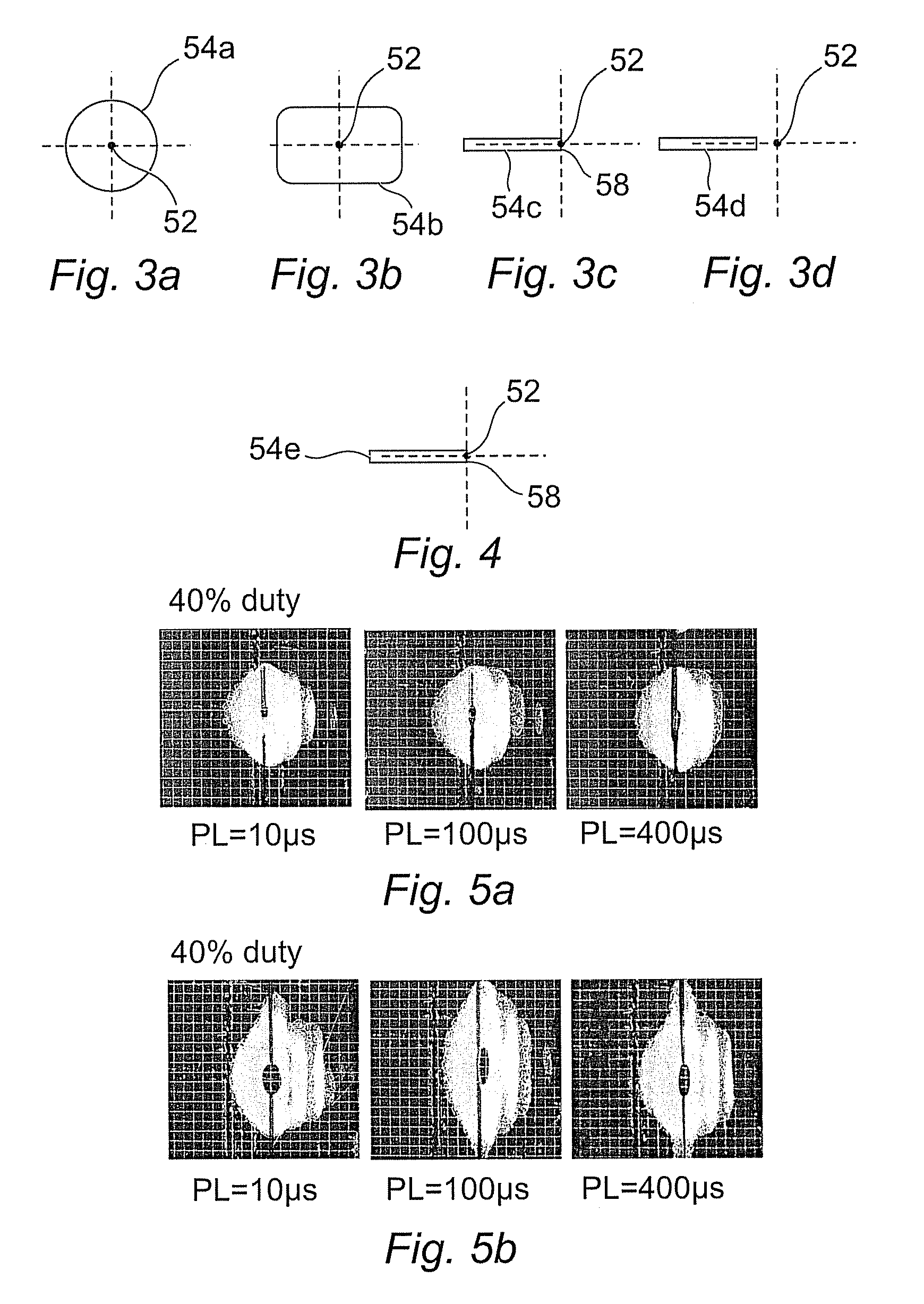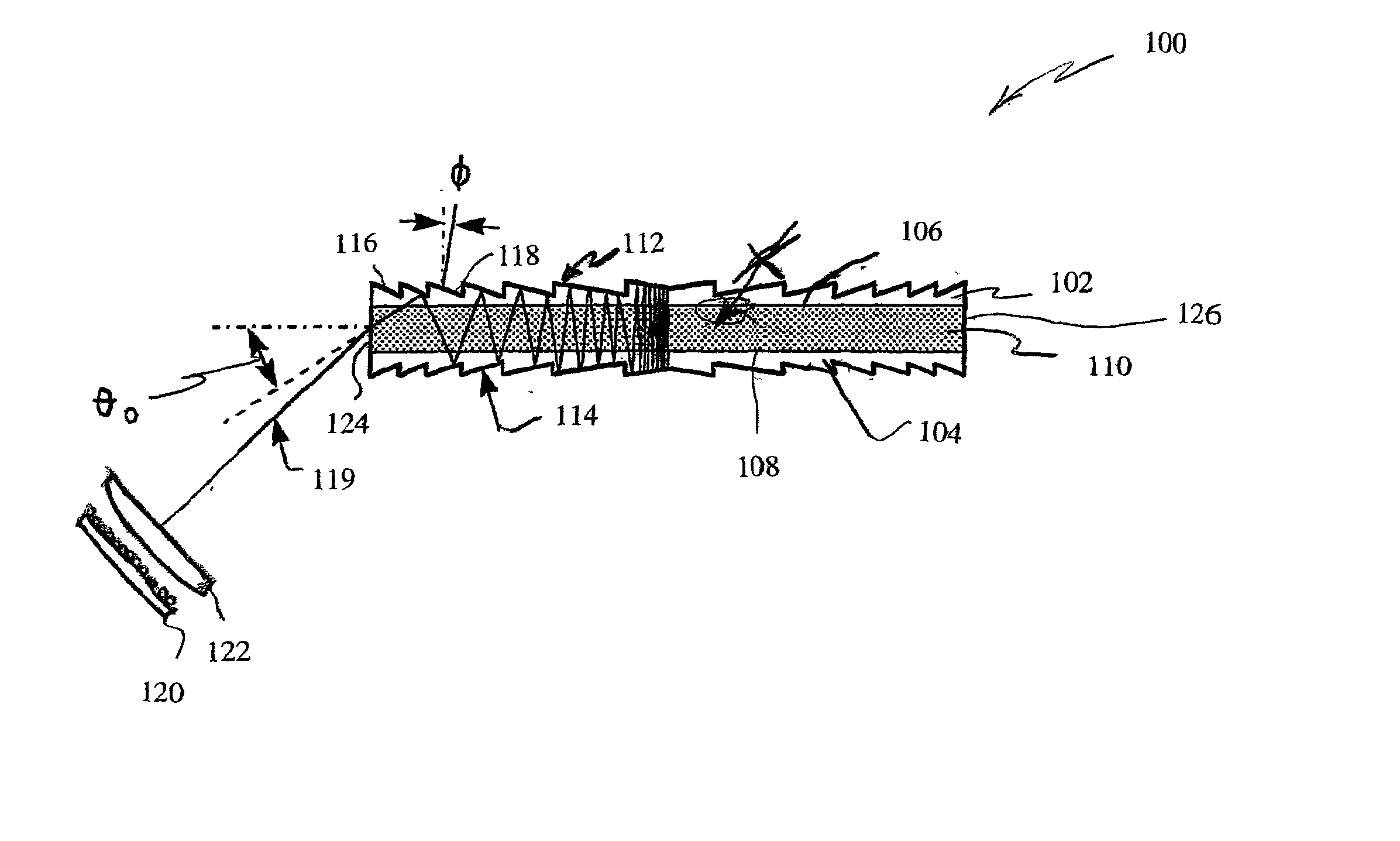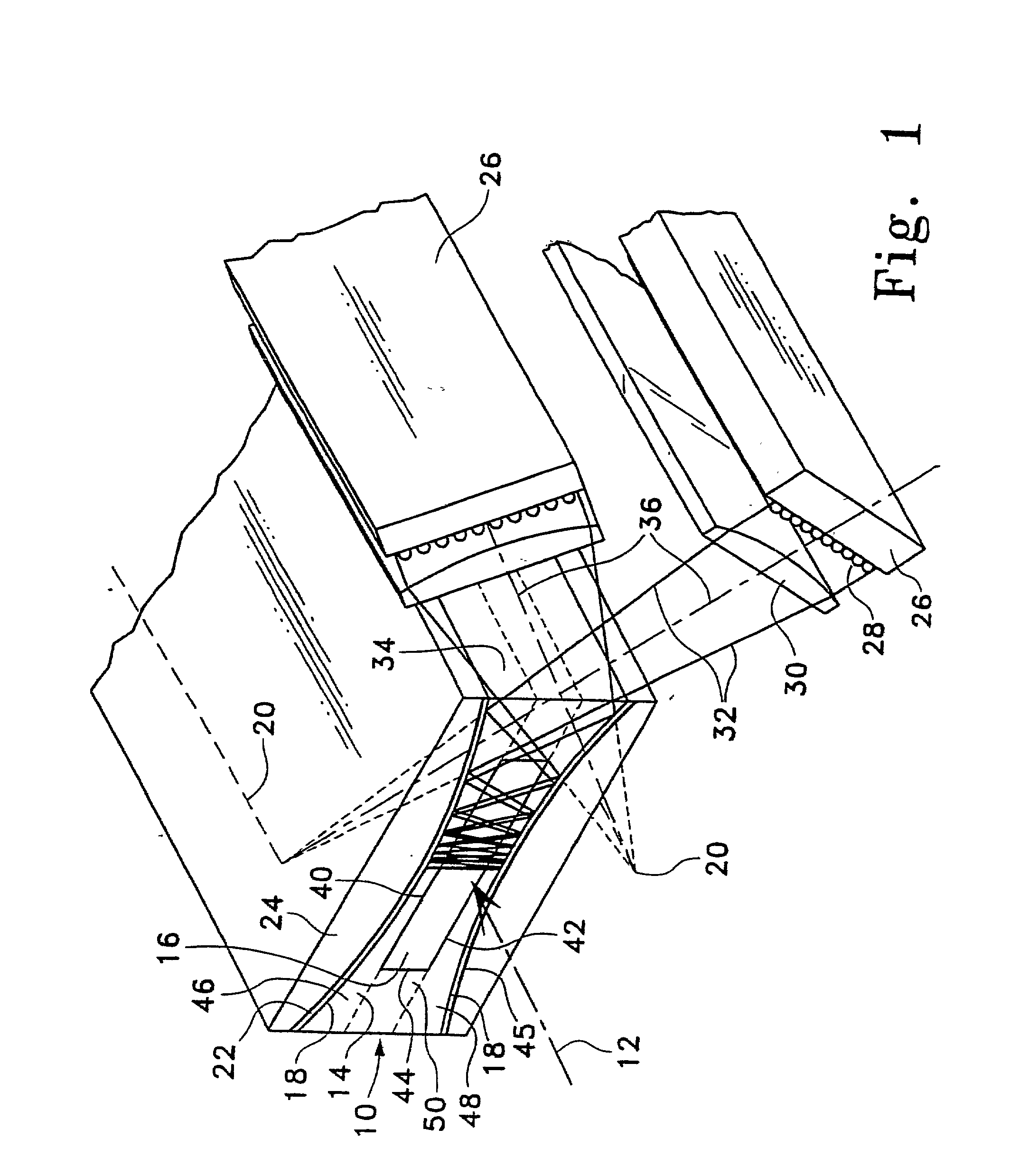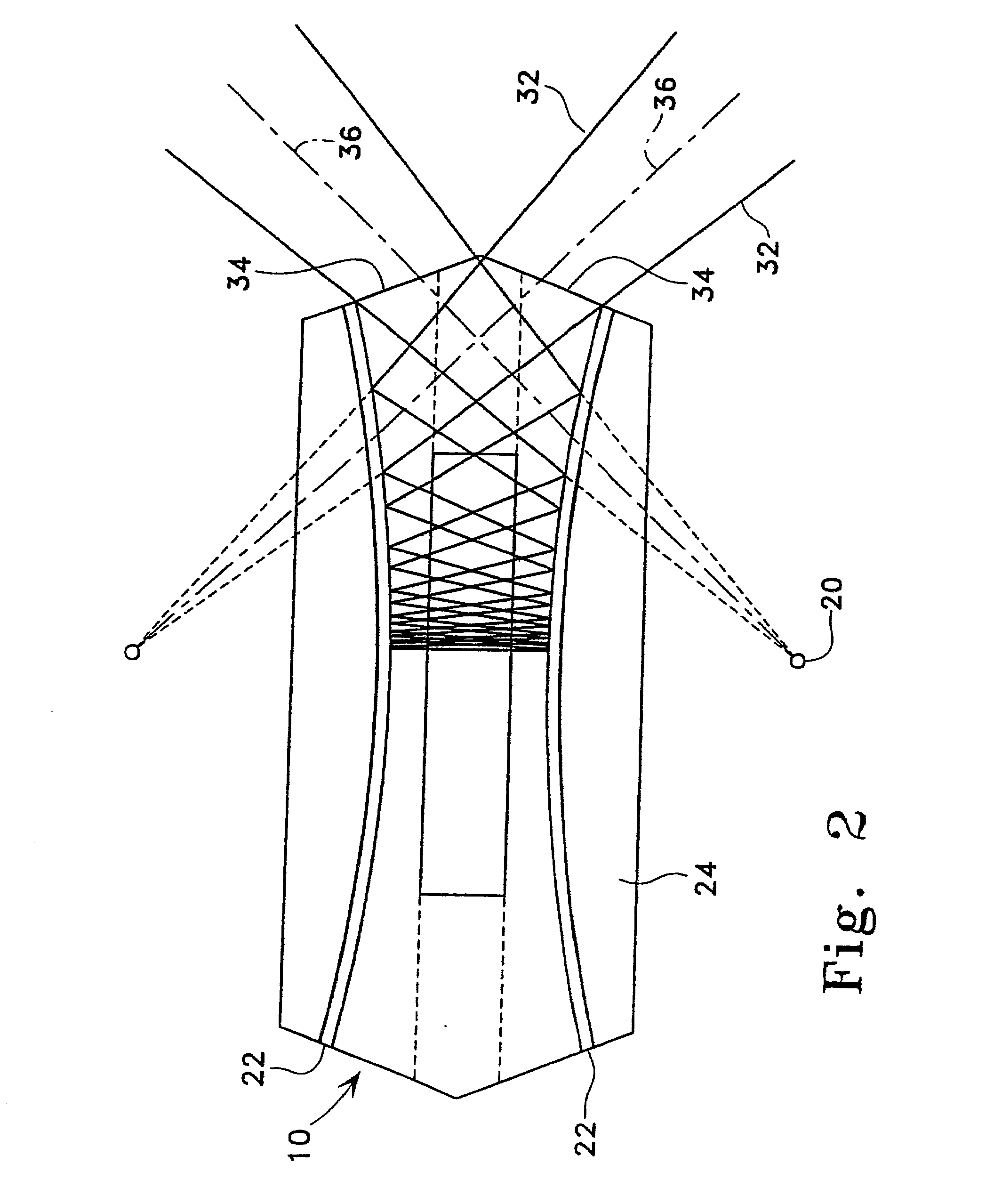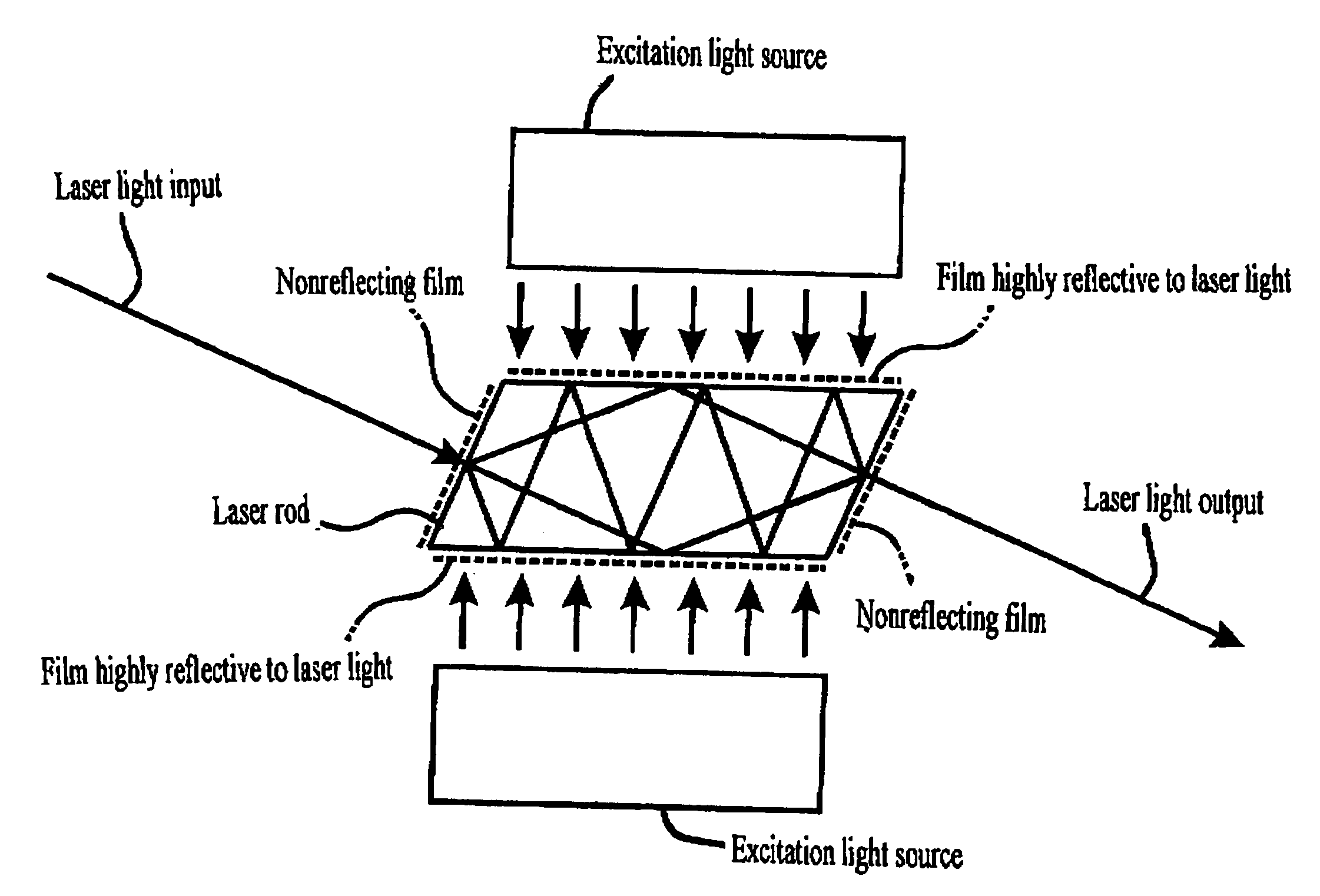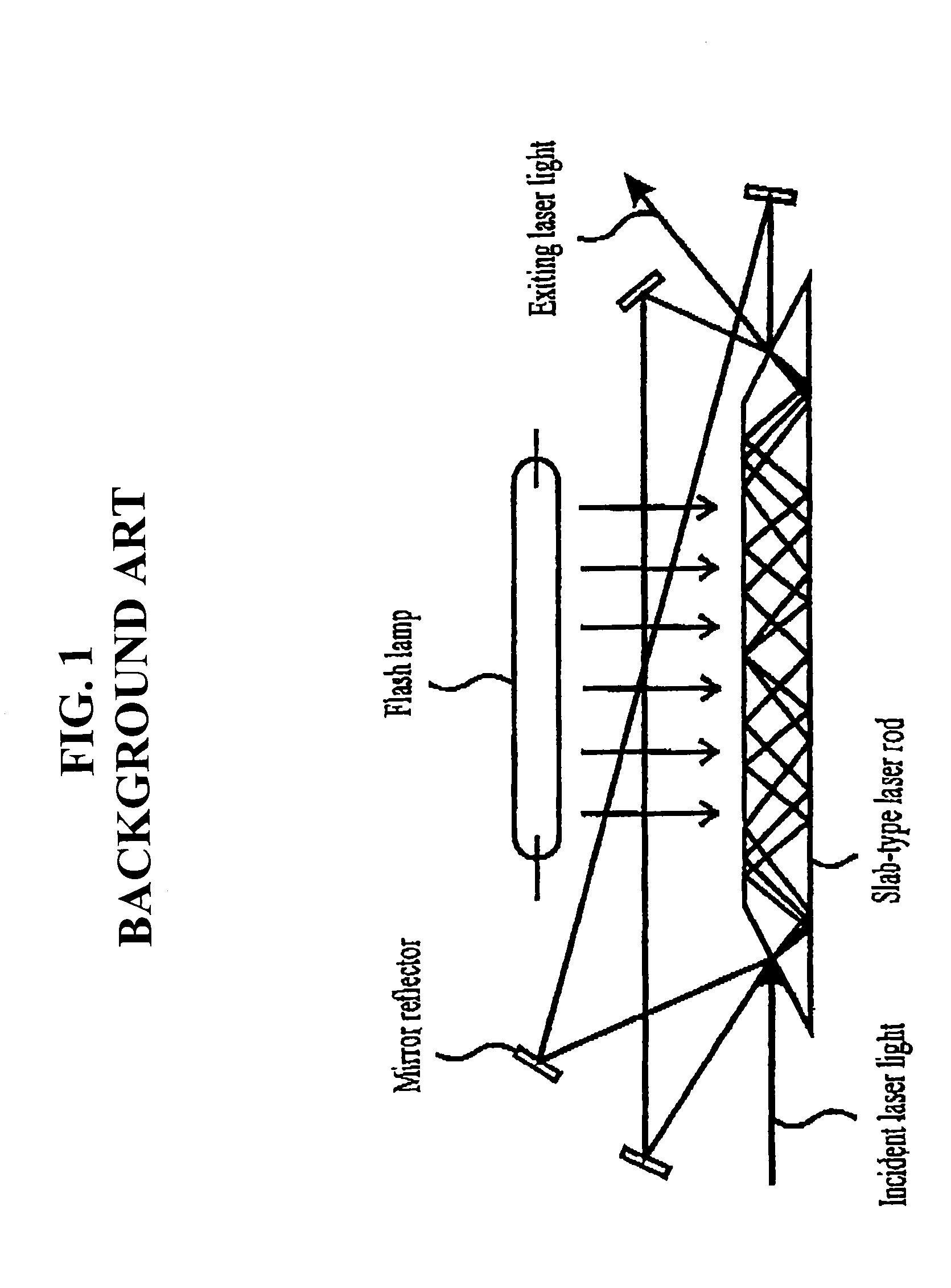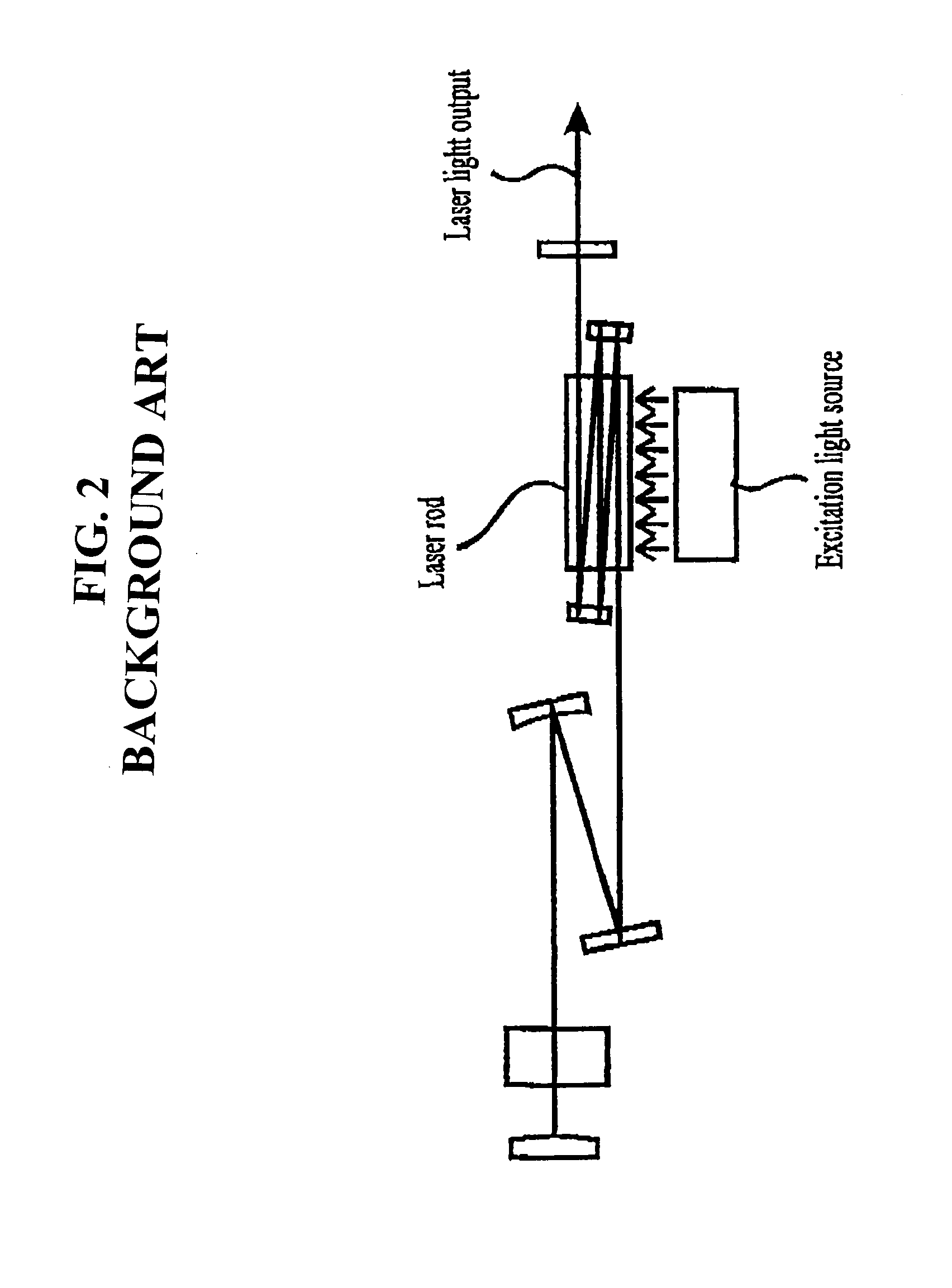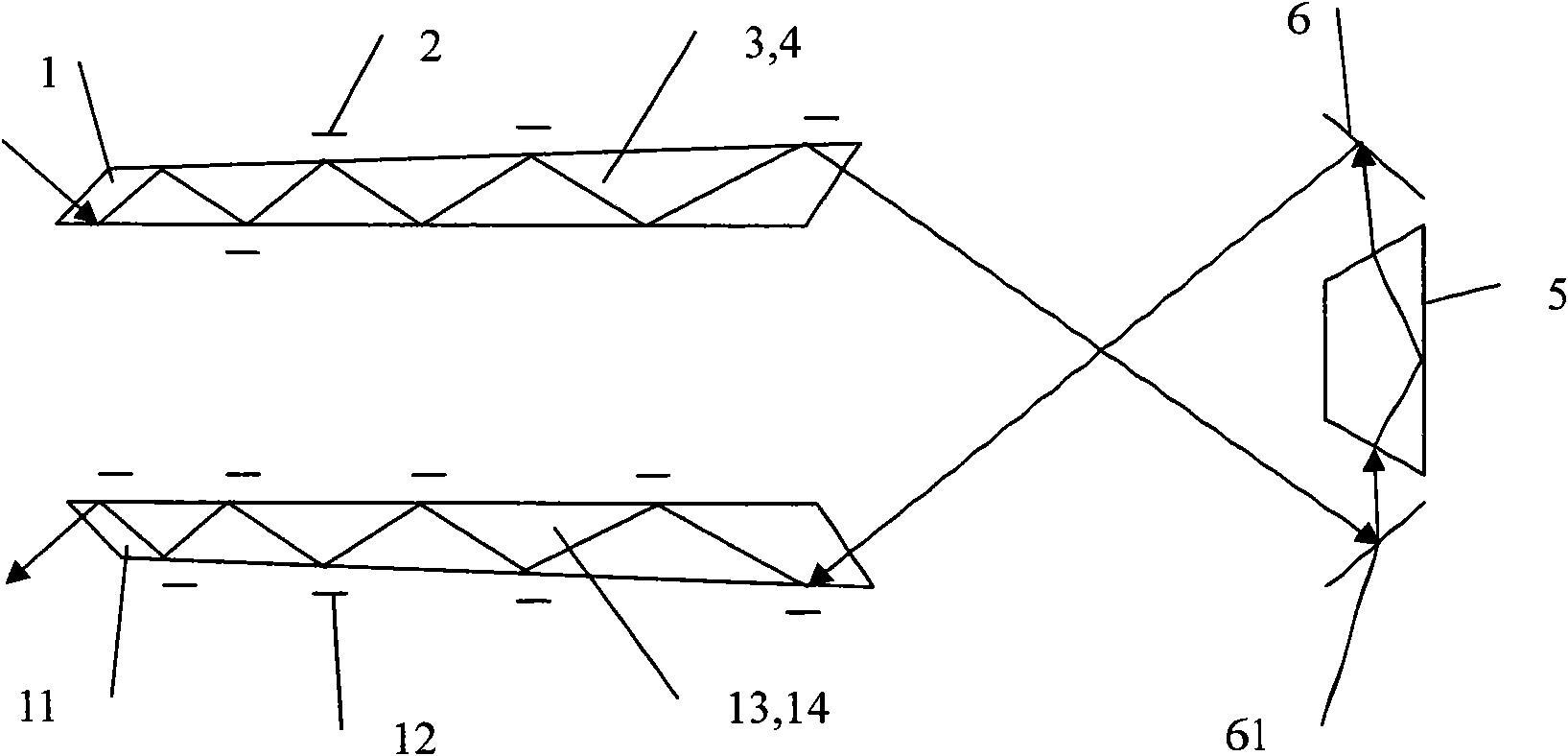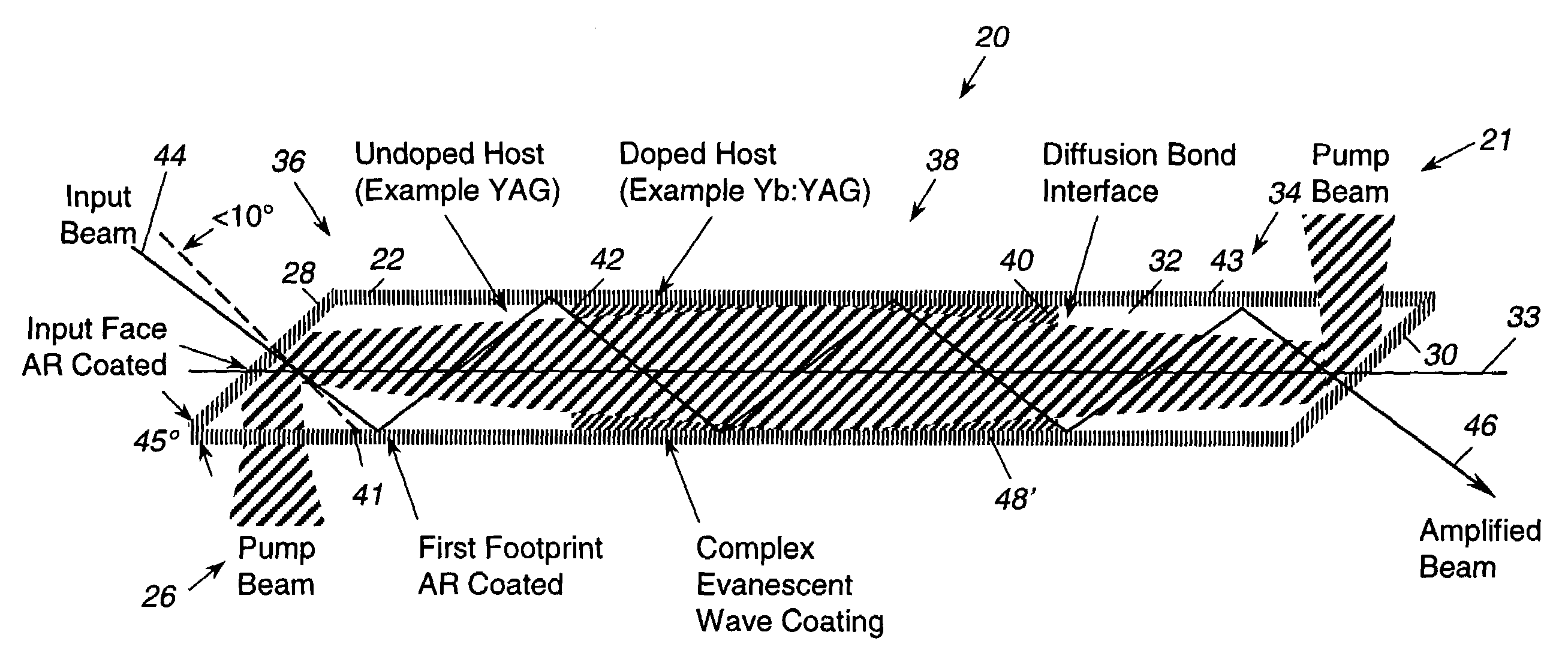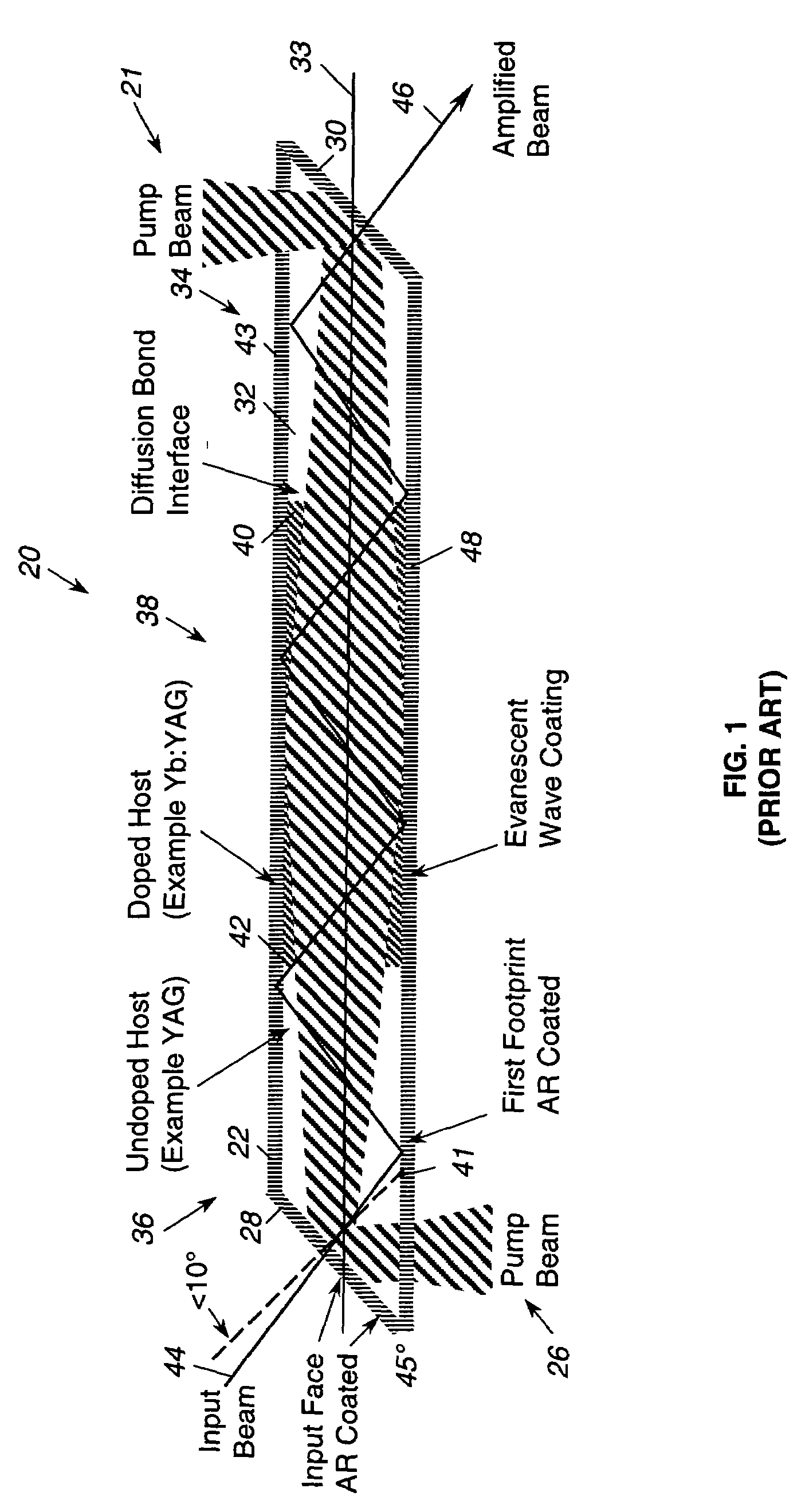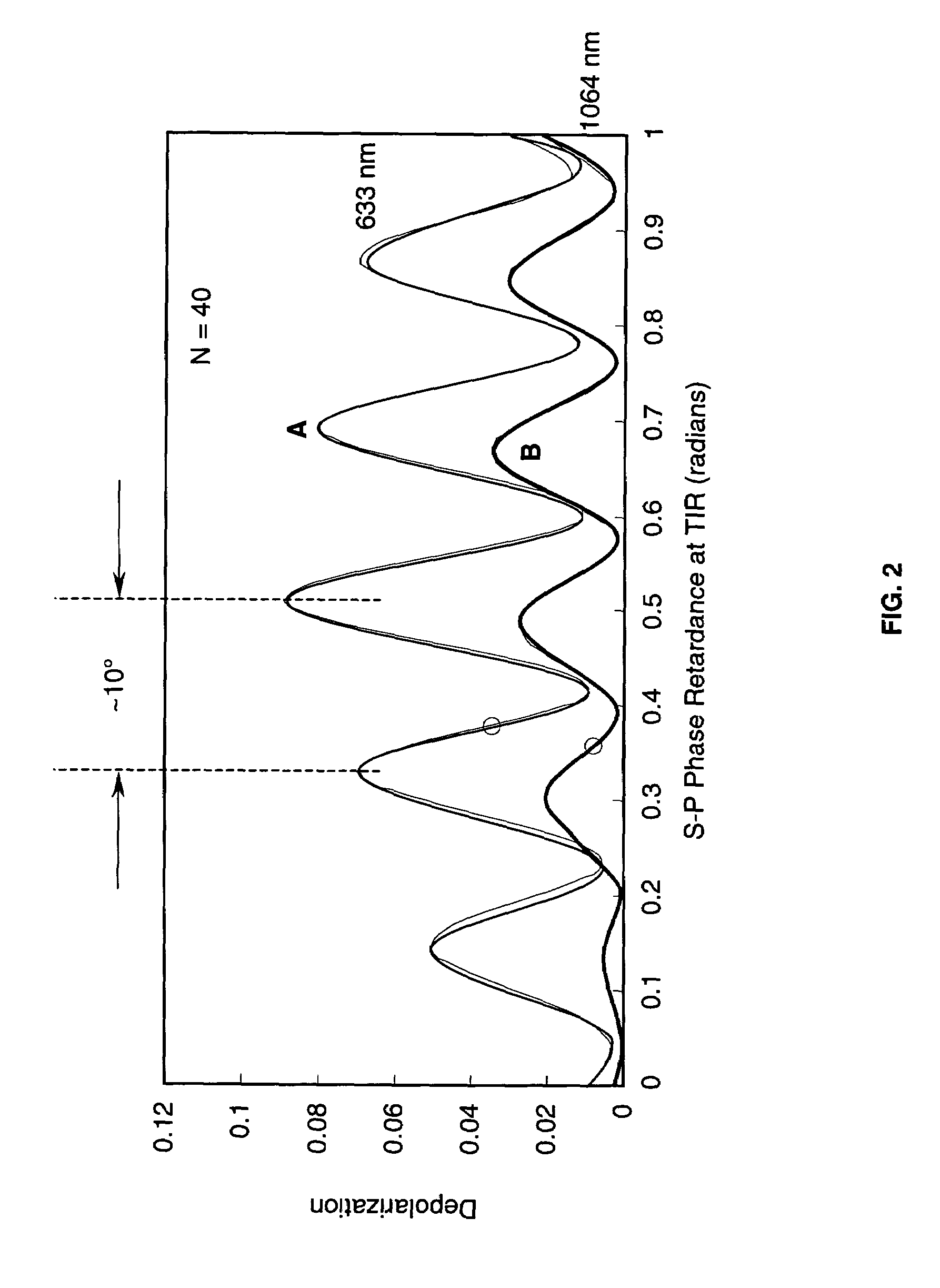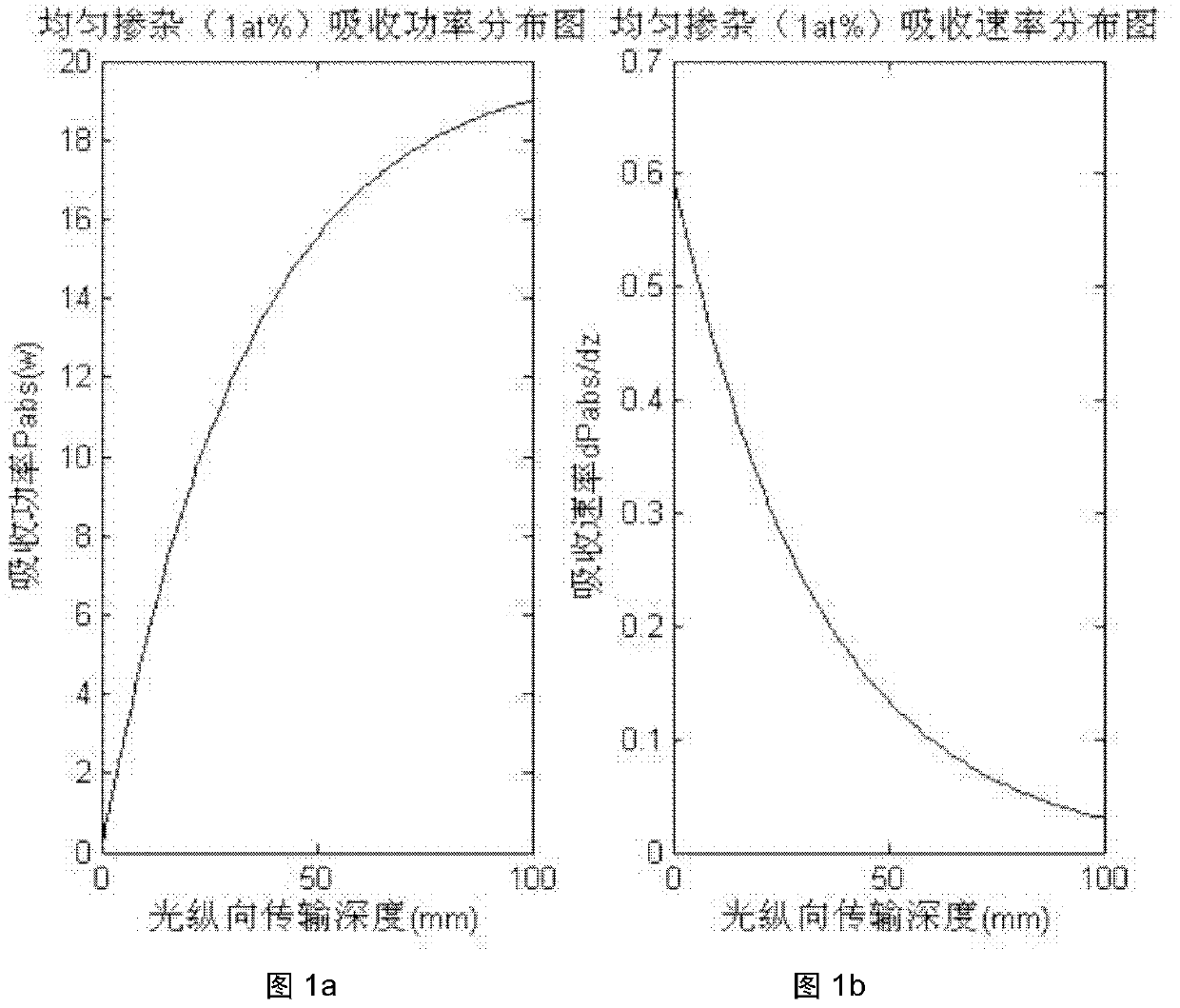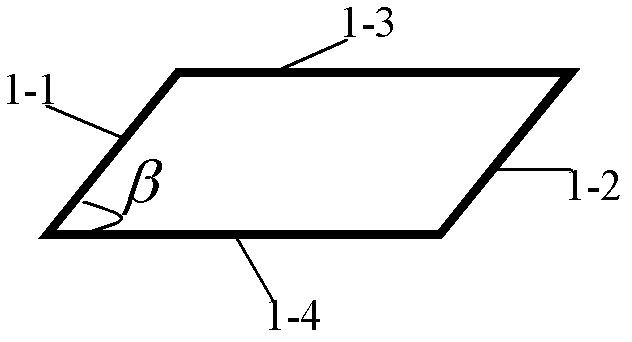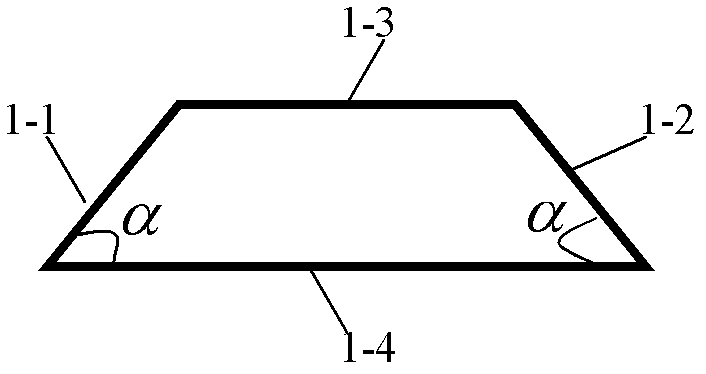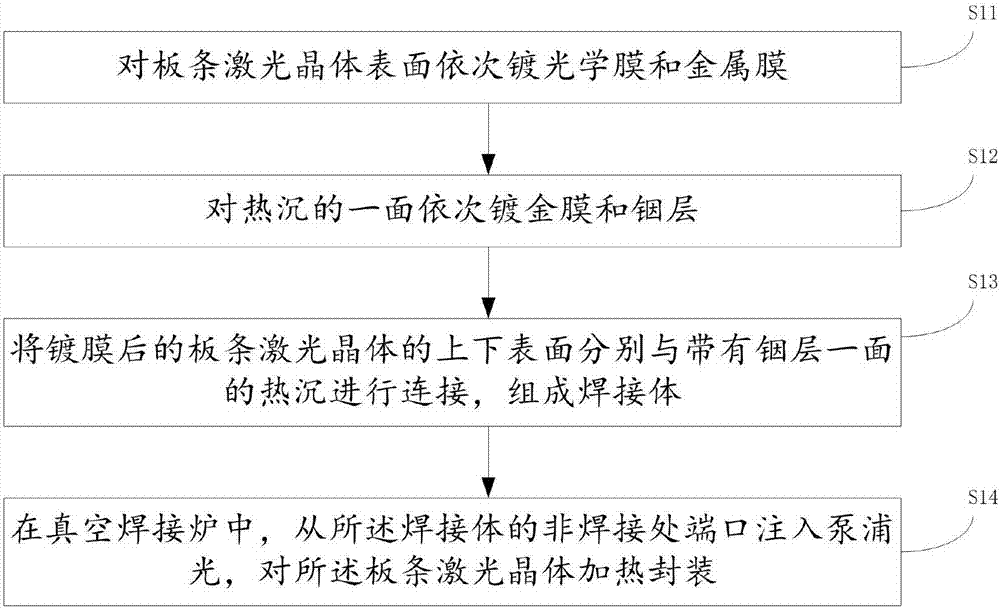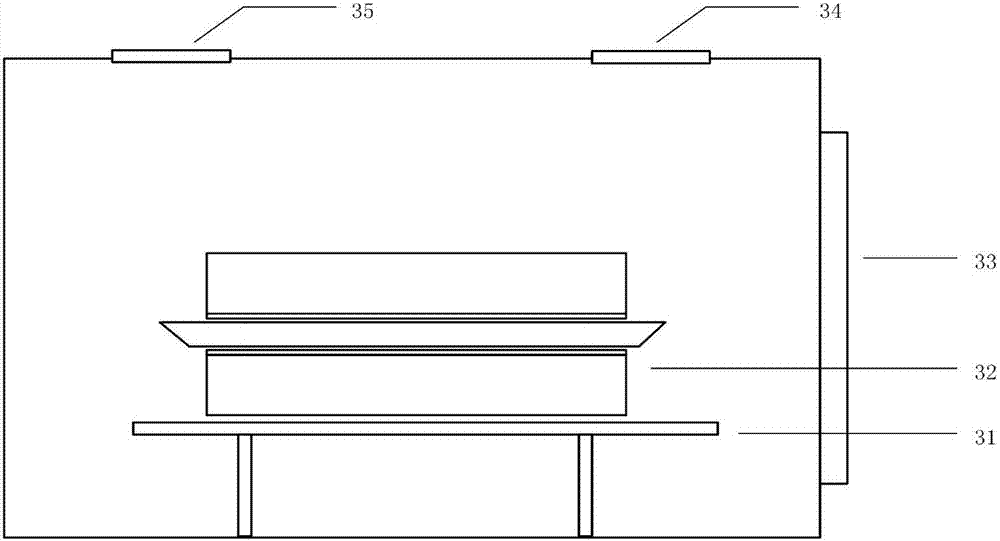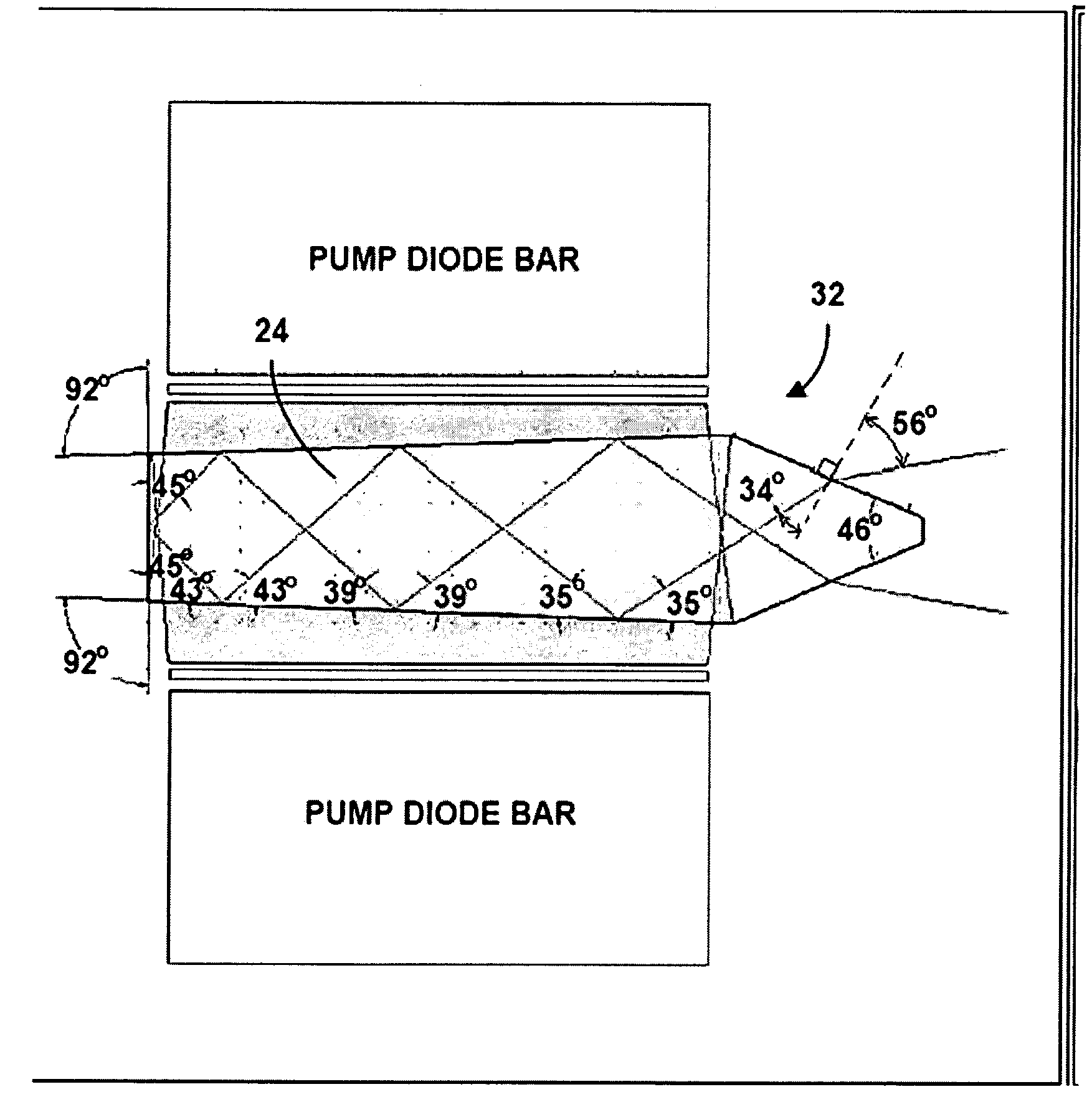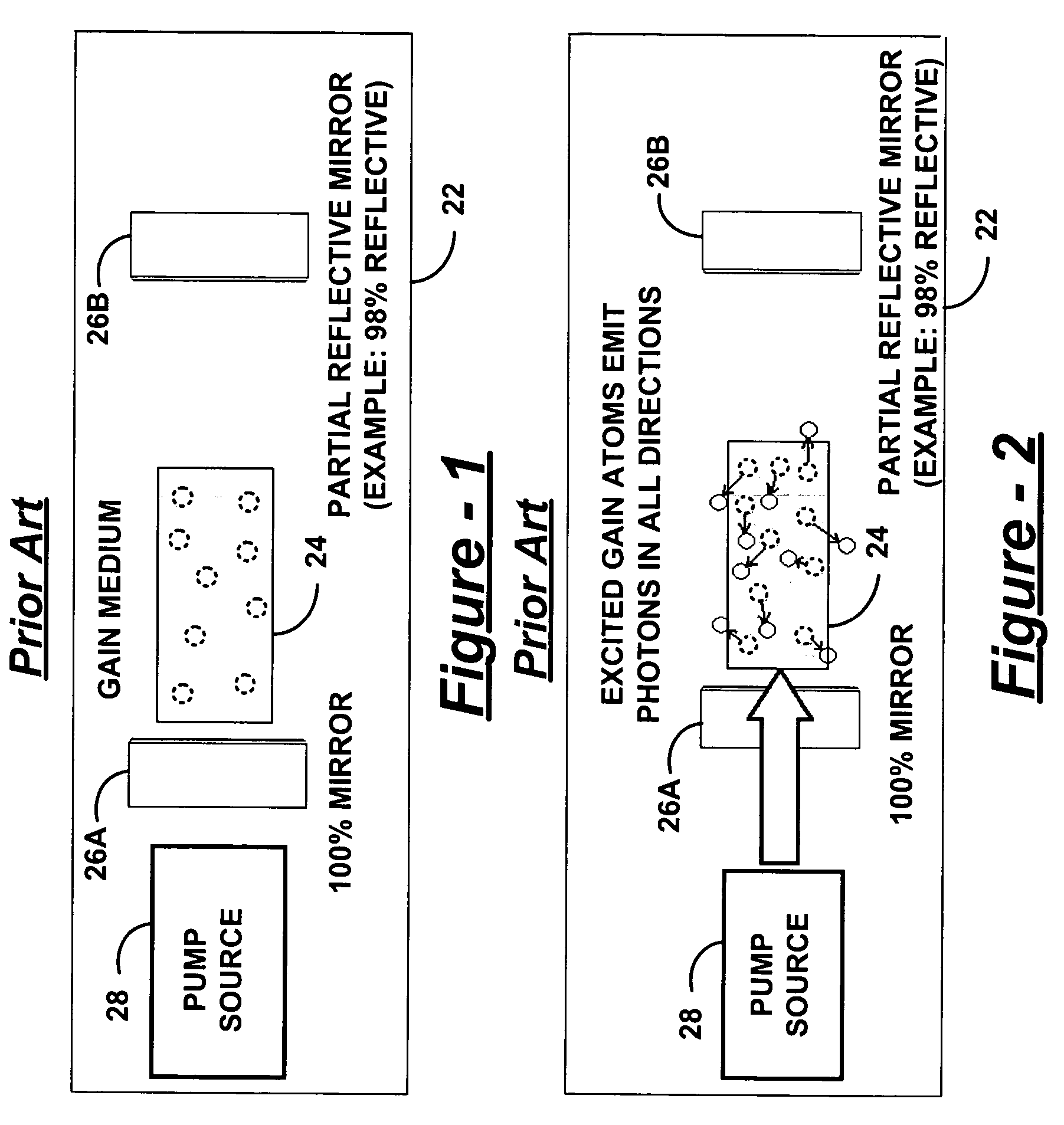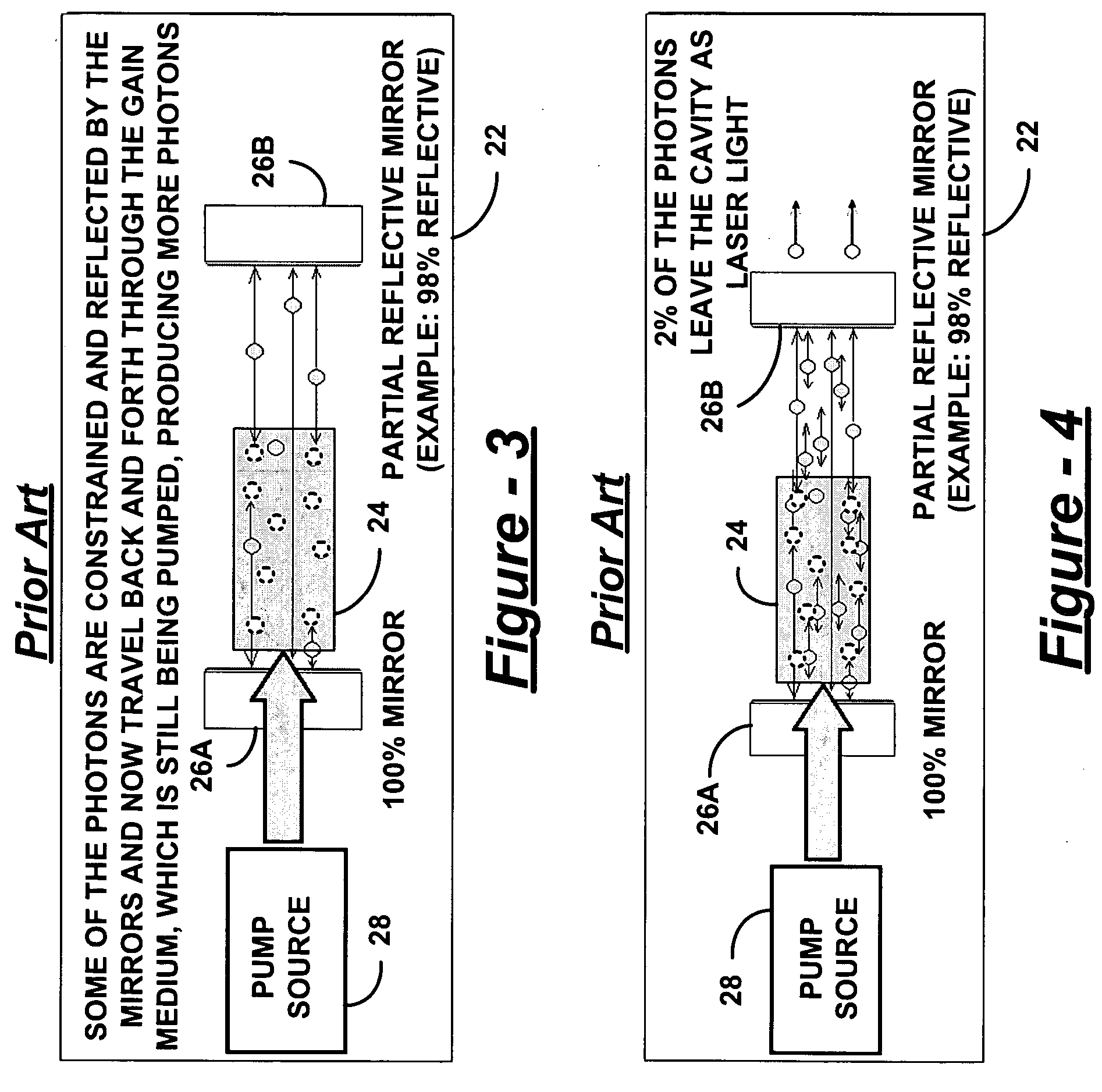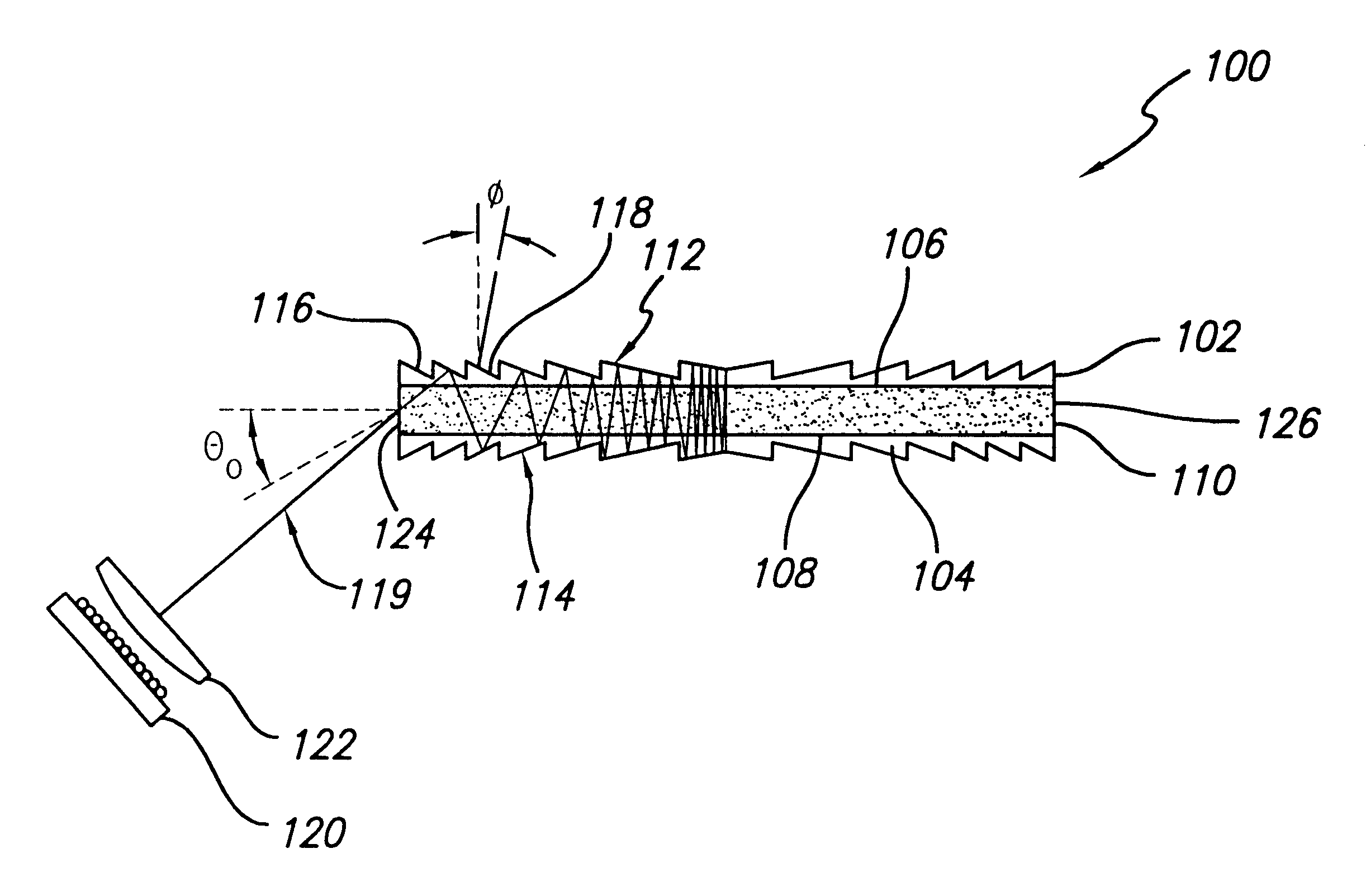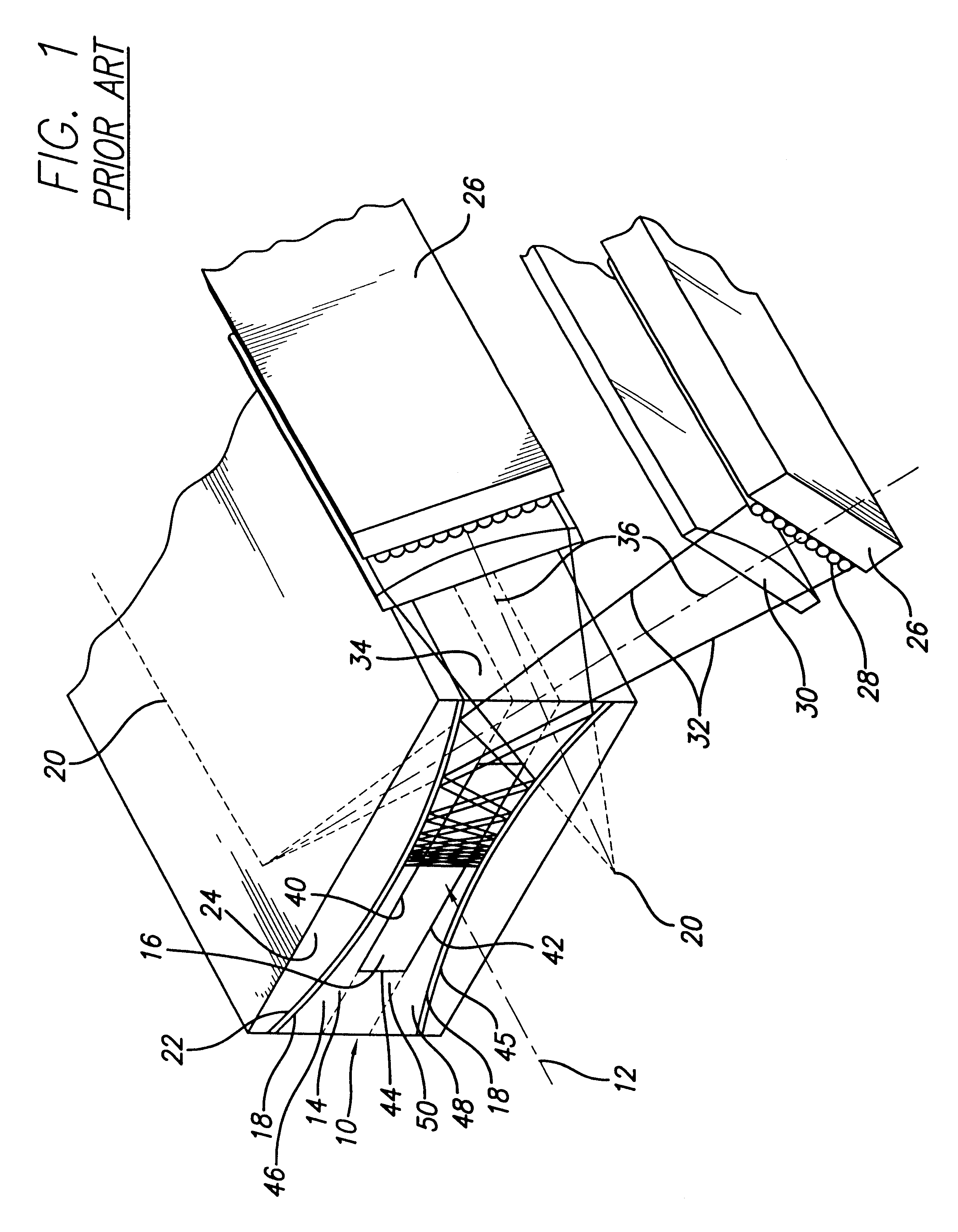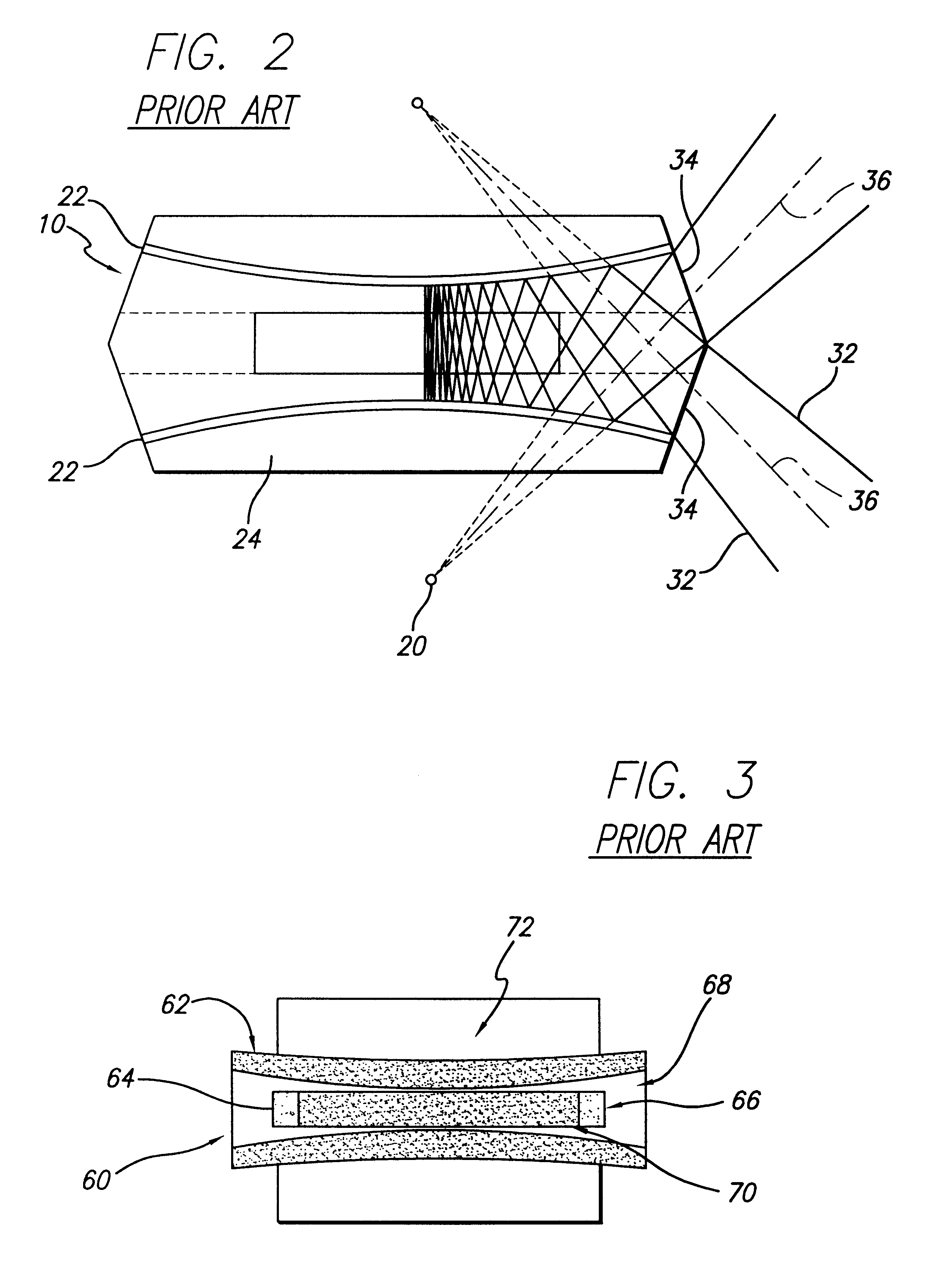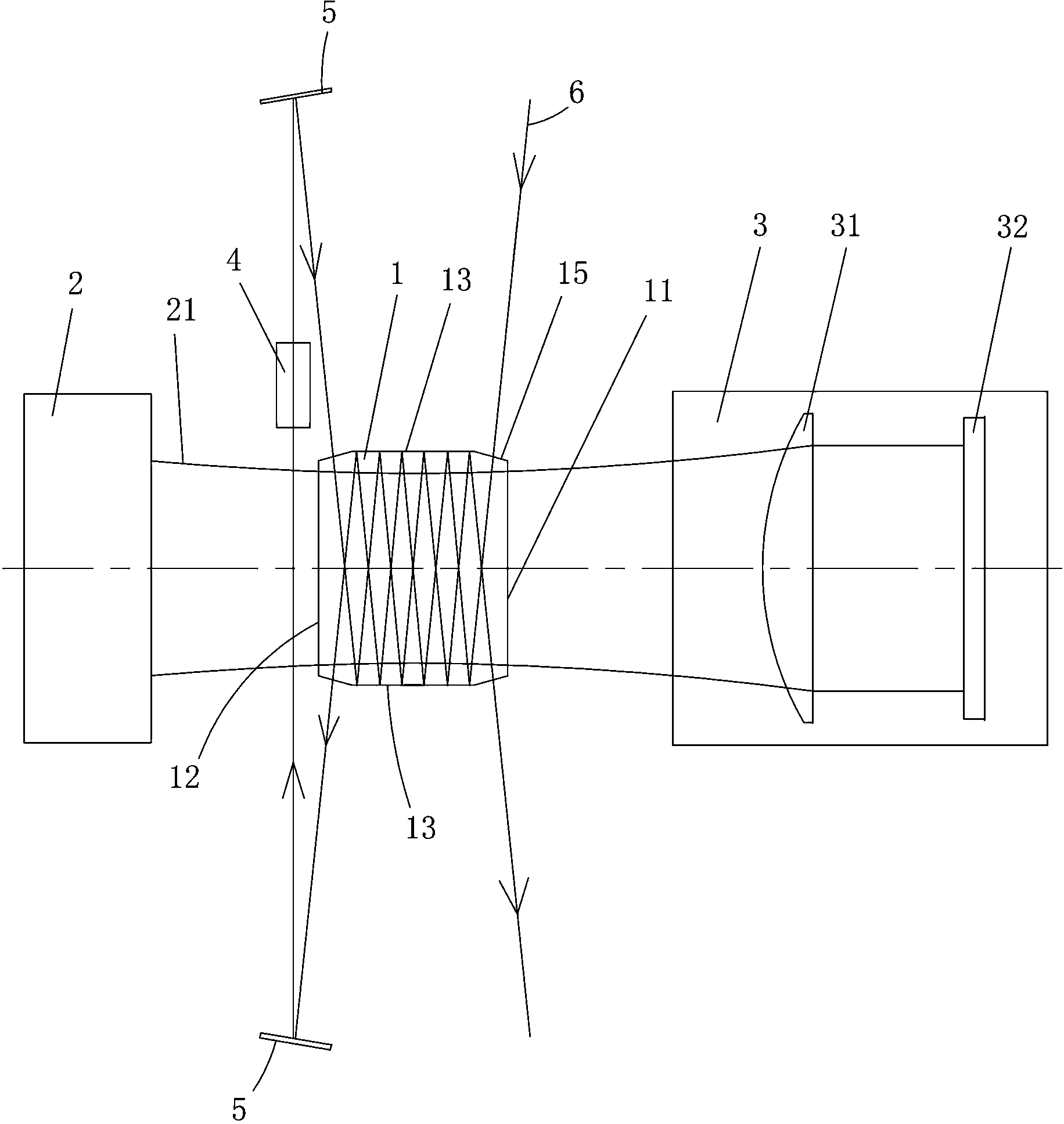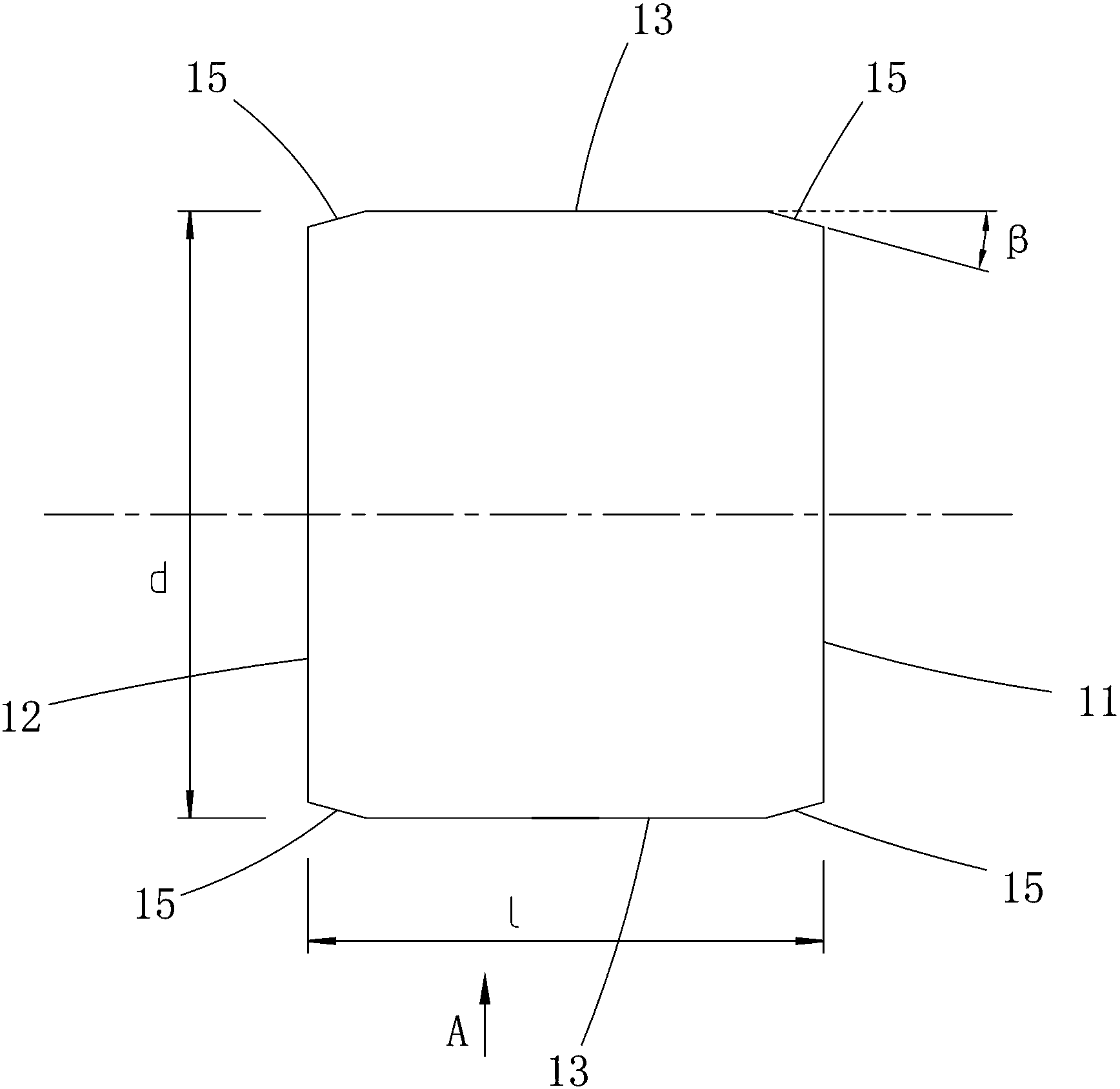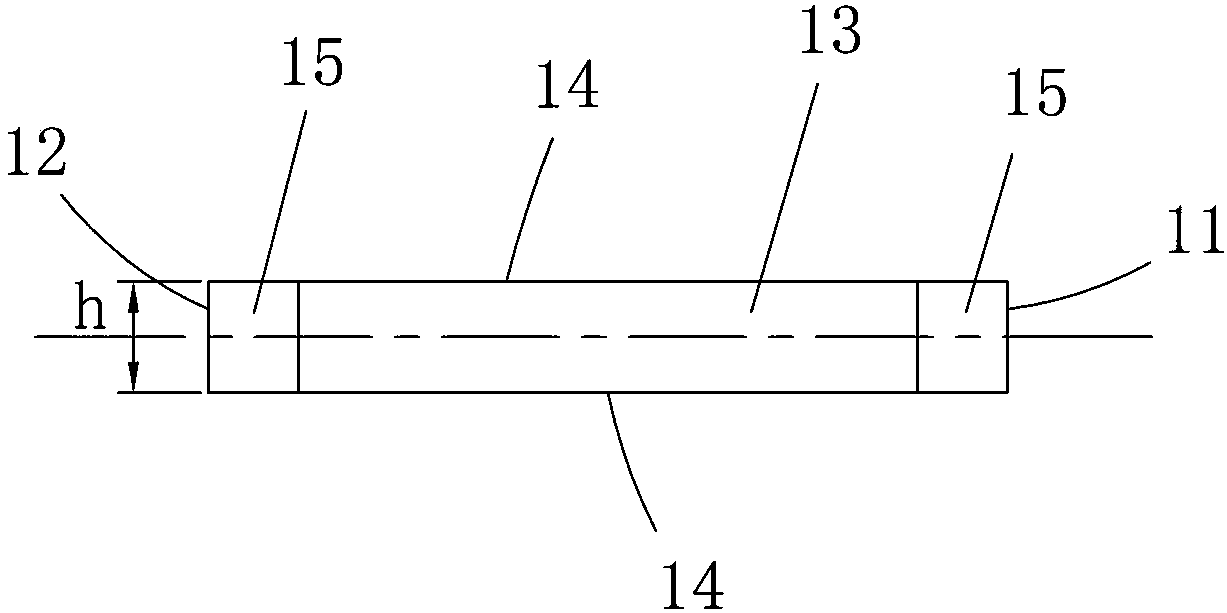Patents
Literature
Hiro is an intelligent assistant for R&D personnel, combined with Patent DNA, to facilitate innovative research.
144 results about "Slab laser" patented technology
Efficacy Topic
Property
Owner
Technical Advancement
Application Domain
Technology Topic
Technology Field Word
Patent Country/Region
Patent Type
Patent Status
Application Year
Inventor
Slab lasers represent one class of high-power solid-state bulk lasers, where the gain medium (laser crystal) has the form of a slab. Typically, a laser slab is thin in one dimension, compared with the larger extent in the other two directions.
Dielectric coupled CO2 slab laser
InactiveUS20050175054A1Extension of timeDecreases difference in impedanceActive medium materialLaser cooling arrangementsCapacitanceDielectric
An slab CO2 laser includes spaced-apart elongated slab electrodes. A lasing gas fills a discharge gap between the electrodes. An RF power supply is connected across the electrodes and sustains an electrical discharge in the lasing gas in the discharge gap. Either one or two ceramic inserts occupy a portion of width of the electrodes and in contact with the electrodes. A discharge gap is formed between the portions of the width of the electrodes not occupied by the insert or inserts. Provision of the ceramic insert or inserts increases the resistance-capacitance (RC) time constant of the electrode impedance by increasing the capacitive component of the time constant. This hinders the formation of arcs in the discharge, which, in turn enables the inventive laser to operate with higher excitation power or higher lasing-gas pressure than would be possible without the dielectric insert. The ceramic insert also decreases the difference in impedance of the electrodes with and without a discharge. This leads to a better-behaved discharge, and a discharge that is easier to light.
Owner:COHERENT INC
Dielectric coupled CO2 slab laser
InactiveUS20060029116A1Increase input powerActive medium materialGas laser constructional detailsCapacitanceRC time constant
A slab laser includes two elongated electrodes arranged spaced apart and face-to-face. Either one or two slabs of a solid dielectric material extend along the length of the electrodes between the electrodes. A discharge gap is formed either between one of the electrodes and one dielectric slab, or between two dielectric slabs. The discharge gap is filled with lasing gas. A pair of mirrors is configured and arranged to define a laser resonator extending through the gap. An RF potential is applied across the electrodes creating a gas discharge in the gap, and causing laser radiation to circulate in the resonator. Inserting dielectric material between the electrodes increases the resistance-capacitance (RC) time constant of the discharge structure compared with the RC time constant in the absence of dielectric material. This hinders the formation of arcs in the discharge, which enables the laser to operate with higher excitation power, higher lasing gas pressure, and higher output power than would be possible without the dielectric inserts.
Owner:COHERENT INC
Scalable zig-zag laser amplifier
A solid state laser amplifier architecture in which multiple zig-zag slab laser amplifiers (50) are stacked together, side-pumped using a common pump source (52, 54), and cooled with a common cooling system. The stack of zig-zag slabs (50) produces an array of sub-beams (62) that can be combined coherently into a single composite output beam. Variations in pump power absorption through the stack are mitigated by selection of doping levels for the slabs (50). The composite output beam is sufficiently symmetrical to be directed through conventional optics of circular cross section. Multiple stacks may be arranged in a two-dimensional array to obtain even higher output powers.
Owner:NORTHROP GRUMMAN SYST CORP
Multi-jet impingement cooled slab laser pumphead and method
InactiveUS20040028094A1Laser arrangementsActive medium shape and constructionSuspended particlesCoolant flow
A system for removing waste energy in the form of sensible heat and fluorescent energy from a solid state laser medium having a broad surface. The system includes a manifold disposed about the laser medium having a plurality of inlet jets interspersed with a plurality of exhaust orifices. Coolant fluid is circulated through the manifold. The fluid is forced through the plurality of inlet jets to impinge the broad face of the laser medium, thereby transferring waste energy by convection from the laser medium to the coolant fluid. The coolant fluid is further circulated to exhaust the pumphead manifold through the plurality of exhaust orifices. The fluorescent energy, which is radiated from the laser medium, is converted to sensible heat by an absorber disposed within the coolant adjacent to the laser medium. The coolant then removes the converted heat by forced convection. The absorber can be suspended particles in the coolant fluid or a porous material supported in the manifold at some distance from the laser medium.
Owner:RAYTHEON CO
Multi-jet impingement cooled slab laser pumphead and method
InactiveUS6859472B2Easy to manufactureLaser arrangementsActive medium shape and constructionSuspended particlesCoolant flow
A system for removing waste energy in the form of sensible heat and fluorescent energy from a solid state laser medium having a broad surface. The system includes a manifold disposed about the laser medium having a plurality of inlet jets interspersed with a plurality of exhaust orifices. Coolant fluid is circulated through the manifold. The fluid is forced through the plurality of inlet jets to impinge the broad face of the laser medium, thereby transferring waste energy by convection from the laser medium to the coolant fluid. The coolant fluid is further circulated to exhaust the pumphead manifold through the plurality of exhaust orifices. The fluorescent energy, which is radiated from the laser medium, is converted to sensible heat by an absorber disposed within the coolant adjacent to the laser medium. The coolant then removes the converted heat by forced convection. The absorber can be suspended particles in the coolant fluid or a porous material supported in the manifold at some distance from the laser medium.
Owner:RAYTHEON CO
Slab laser and method with improved and directionally homogenized beam quality
ActiveUS20050111496A1Easy dischargeLimit profileOptical resonator shape and constructionActive medium materialTransverse axisTelescope
A laser resonator for generating a laser beam having beam quality along two transverse axes that is determined primarily by the mode discrimination characteristics of one axis. The apparatus including a means for providing a collimated beam of electromagnetic energy with a predetermined orientation with respect to a line of sight thereof, and, a means for rotating the beam such that a transverse mode selection therefor is the same for two orthogonal directions thereof. The first means includes a slab laser having principal axes, and the second means includes a porro prism or a Benson prism. The prism is rotated 45 degrees about the line of sight with respect to the slab axes. The beam is rotated through successive round trip passes through the slab. A telescope, or an anamorphic telescope may be disposed between the slab and the prism. The resonator has a high aspect ratio slab lasing medium with a first and a second end that emit a laser beam. An aperture stop with a narrow transverse dimension and an orthogonal wide transverse dimension defines the laser beam profile. The slab itself may define the aperture stop. A first reflector, is aligned to reflect the laser beam emitted from one end of the slab back into the slab, and thereby define a first end of a resonant cavity. An anamorphic telescope is aligned to receive and reshape the laser beam profile to be substantially symmetrical about its transverse axes. The beam profile of the reshaped laser beam is rotated 90° and reflected, by a second reflector, back into the telescope, defining the second end of the resonator. The reflectors may be porro prisms, mirrors, or Benson prisms. Polarization out-couplers are used in conjunction with electro-optic Q-switches to out-couple-laser energy. The slab may be solid state Yb:YAG.
Owner:RAYTHEON CO
Dielectric coupled CO2 slab laser
InactiveUS7263116B2Active medium materialGas laser constructional detailsElectrical resistance and conductanceRC time constant
A slab laser includes two elongated electrodes arranged spaced apart and face-to-face. Either one or two slabs of a solid dielectric material extend along the length of the electrodes between the electrodes. A discharge gap is formed either between one of the electrodes and one dielectric slab, or between two dielectric slabs. The discharge gap is filled with lasing gas. A pair of mirrors is configured and arranged to define a laser resonator extending through the gap. An RF potential is applied across the electrodes creating a gas discharge in the gap, and causing laser radiation to circulate in the resonator. Inserting dielectric material between the electrodes increases the resistance-capacitance (RC) time constant of the discharge structure compared with the RC time constant in the absence of dielectric material. This hinders the formation of arcs in the discharge, which enables the laser to operate with higher excitation power, higher lasing gas pressure, and higher output power than would be possible without the dielectric inserts.
Owner:COHERENT INC
Slab laser and amplifier and method of use
ActiveUS20150311064A1Improve efficiencyImprove rendering capabilitiesElectric discharge heatingRadiation applicationsDiamond-like carbonOptoelectronics
Owner:STUART MARTIN A +1
End pumped slab laser cavity
InactiveUS7039087B2Minimizes size and weight and performance and production costActive medium materialActive medium shape and constructionOptical alignmentFlash-lamp
The End Pumped Slab Laser Cavity incorporates all optical components required for a short-pulse laser. These optical components are ‘locked’ into alignment forming an optical laser cavity for diode laser or flash lamp pumping. The optical laser cavity never needs optical alignment after it is fabricated. The cavity is configured for optimal absorbtion for diode laser end-pumping over broad temperature ranges.
Owner:UNITED STATES OF AMERICA THE AS REPRESENTED BY THE SEC OF THE ARMY
Large-face pumping slab laser module capable of efficient cooling
A large-face pumping slab laser module capable of efficient cooling comprises slab laser mediums, a transparent heat sink, a transparent cooling device and a semiconductor pumping source. According to the large-face pumping slab laser module capable of efficient cooling, the transparent heat sink high in heat conductivity and good in light transmission is bonded or manufactured on the large face of the solid slab laser mediums through optical cement, and the transparent cooling device is used for obtaining the large face of a slab laser and meanwhile serving as a cooling face or a pumping face so as to change the situation that for an existing large-face pumping slab module, only an upper surface and a lower surface can serve as a pumping face and a refrigerating face respectively, thermal gradient is easy to form in the longitudinal pump light direction due to single-surface refrigeration, output light beams are influenced, and quality of the light beams is not sufficient. The bonding or optical cement mode on the large face of the laser mediums is adopted for replacing the welding mode of the metallic heat sink so as to eliminate the stress on the laser mediums caused by welding, and therefore high-power and high-light-beam-quality laser output is achieved.
Owner:TECHNICAL INST OF PHYSICS & CHEMISTRY - CHINESE ACAD OF SCI
Slab laser and amplifier
ActiveUS20130301662A1Improve efficiencyImprove power handling capacityLaser using scattering effectsVacuum evaporation coatingAudio power amplifierLight beam
An economical slab laser for high power applications. The laser is a lamp driven slab design with face-to-face beam propagation and an end reflection that redirects the amplified radiation back out the input surface. Also presented is a side-to-side larger amplifier configuration, permitting very high average and peak powers due to the electrical efficiency of converting and getting energy into the crystal, optical extraction efficiency, and scalability of device architecture. Cavity filters adjacent to pump lamps convert the unusable UV portion of the pump lamp spectrum into light in the absorption band of the slab laser thereby increasing the overall pump efficiency. The angle of the end reflecting surface is changed to cause the exit beam to be at a different angle than the inlet beam, thereby eliminating the need to separate the beams external to the laser with the subsequent loss of power.
Owner:STUART MARTIN A +1
Compact co2 slab-laser
A compact CO2 slab-laser is contained in a fluid cooled housing having three compartments. One compartment houses discharge electrodes and a laser resonator. Another compartment houses a radio-frequency power supply (RFPS) assembled on a fluid-cooled chill plate and an impedance-matching network. The remaining compartment houses beam-conditioning optics including a spatial filter. The housing and RFPS chill-plate are on a common coolant-fluid circuit having a single input and a single output. The spatial filter is optionally fluid-coolable on the common coolant fluid circuit.
Owner:COHERENT INC
Electrically pumped low-threshold ultra-small photonic crystal lasers
InactiveUS20080080579A1Avoiding surface recombination lossIncrease the bandgapLaser detailsLaser optical resonator constructionPhotonic crystalLaser light
The invention is a photonic crystal laser including a photonic crystal slab laser cavity including InGaP / InGaAlP crystalline layers, the InGaP / InGaAlP crystalline layers having a relaxed strain at one or more etched surfaces and a higher strain at a plurality of quantum wells and at a distance from the one or more etched surfaces. The photonic crystal laser also includes electrical pads configured to receive an electrical signal the electrical pads attached to the photonic crystal slab laser cavity via an insulating layer, the photonic crystal laser configured to emit a laser light in response to the electrical signal. In another aspect, the invention features a photonic crystal detector including a photonic crystal slab cavity including InGaP / InGaAlP crystalline layers. In yet another aspect, the invention features a process to fabricate a photonic crystal laser cavity.
Owner:CALIFORNIA INST OF TECH
Diode array end pumped slab laser
InactiveUS6914928B2Easy to operateOptical resonator shape and constructionActive medium shape and constructionDiode-pumped solid-state laserSolid-state laser
Owner:UNITED STATES OF AMERICA
Compact CO2 slab-laser
A compact CO2 slab-laser is contained in a fluid cooled housing having three compartments. One compartment houses discharge electrodes and a laser resonator. Another compartment houses a radio-frequency power supply (RFPS) assembled on a fluid-cooled chill plate and an impedance-matching network. The remaining compartment houses beam-conditioning optics including a spatial filter. The housing and RFPS chill-plate are on a common coolant-fluid circuit having a single input and a single output. The spatial filter is optionally fluid-coolable on the common coolant fluid circuit.
Owner:COHERENT INC
External optical path compensation adjusting device and laser device formed thereby
InactiveCN105428966AAvoid Directional ProblemsStable output powerLaser constructional detailsMountingsLight beamEngineering
The invention provides a turning mirror adjustment-based external optical path compensation adjusting device, which comprises a turning mirror, a piezoelectric ceramic micro-displacement actuator and a rotatable base. The turning mirror is driven to rotate by changing the size of a voltage applied to the micro-displacement actuator, so that automatic compensation of an optical path is achieved. On this basis, the invention provides an external optical path compensation adjusting device-based laser device, which comprises a laser device body, the external optical path compensation adjusting device, an optical path shaping module, a focusing spherical mirror and a feedback control module, wherein the feedback control module detects an output laser and adjusts an offset light beam to a standard position by adjusting the deflection angle of the turning mirror through an optical path compensation adjusting system; the stability of laser output powers and the stability of the modes of the laser device under various duty ratios can be ensured; and the overall stability of the laser device is improved, so that efficient and stable working of a radio frequency slab laser device processing system is ensured; the processing quality of a processed device is ensured; and the processing efficiency is improved.
Owner:HUAZHONG UNIV OF SCI & TECH
Multipath laser apparatus using a solid-state slab laser rod
InactiveUS20070002920A1Increase conversion rateHigh laser gainExcitation process/apparatusActive medium shape and constructionNonlinear optical crystalState of art
A laser apparatus has a multipath solid-state slab laser rod and an excitation source that excites it, and uses a solid-state slab laser rod that has a trapezoid or parallelogram-shaped cross section along the optical path, that is provided with six or more faces and that has a light amplifying effect or a nonlinear optical effect. The light that is incident to the laser rod is totally reflected at the incident-light end face and exit end face of the laser rod, passes back through the interior of the laser rod a plurality of times, e.g., three times, and then exits. For light amplification, excitation light is shined from the side face. In addition, for nonlinear optical effects, the z-axis of a nonlinear optical crystal is disposed so as to be orthogonal to the plane of the optical path, and the temperature of the solid-state slab laser rod is kept at the phase-matching temperature. This laser apparatus of this configuration solves drawbacks of prior-art laser rods so that the high conversion rate from excitation light to laser light is obtained at a high laser gain.
Owner:NAT INST OF INFORMATION & COMM TECH
RF excited CO2 slab laser tube housing and electrodes cooling
The laser tube housing of a CO2 slab laser is provided with a cooling system in which coolant fluid tubes are inserted into hollowed out portions formed in the longitudinal sidewalls of the laser tube housing; mounting the coolant fluid tubes in this way provides for enhanced cooling and increased stiffness of the laser tube housing. Also, a cooling system is provided for the laser's electrode assembly that relies on a manifold system that is mounted on a longitudinal sidewall of the laser tube housing to route coolant fluid through the sidewall to the electrode assembly; sidewall flow of the coolant fluid enables the end flanges of the laser tube housing to be remove without disturbing either the electrodes or the optical resonator of the laser. Also, a bracket assembly is provided for attaching the laser's electrode assembly to a longitudinal sidewall of the laser tube housing; the bracket assembly includes two brackets each of which is attached to a respective end of the electrode assembly and each of which is also attached to a longitudinal sidewall of the laser tube housing in proximity to a respective longitudinal end of the laser tube housing.
Owner:COHERENT INC
Dielectric coupled CO2 slab laser
InactiveUS7260134B2Extension of timeDecreases difference in impedanceActive medium materialLaser cooling arrangementsCapacitanceDielectric
An slab CO2 laser includes spaced-apart elongated slab electrodes. A lasing gas fills a discharge gap between the electrodes. An RF power supply is connected across the electrodes and sustains an electrical discharge in the lasing gas in the discharge gap. Either one or two ceramic inserts occupy a portion of width of the electrodes and in contact with the electrodes. A discharge gap is formed between the portions of the width of the electrodes not occupied by the insert or inserts. Provision of the ceramic insert or inserts increases the resistance-capacitance (RC) time constant of the electrode impedance by increasing the capacitive component of the time constant. This hinders the formation of arcs in the discharge, which, in turn enables the inventive laser to operate with higher excitation power or higher lasing-gas pressure than would be possible without the dielectric insert. The ceramic insert also decreases the difference in impedance of the electrodes with and without a discharge. This leads to a better-behaved discharge, and a discharge that is easier to light.
Owner:COHERENT INC
Scalable zig-zag laser amplifier
A solid state laser amplifier architecture in which multiple zig-zag slab laser amplifiers (50) are stacked together, side-pumped using a common pump source (52, 54), and cooled with a common cooling system. The stack of zig-zag slabs (50) produces an array of sub-beams (62) that can be combined coherently into a single composite output beam. Variations in pump power absorption through the stack are mitigated by selection of doping levels for the slabs (50). The composite output beam is sufficiently symmetrical to be directed through conventional optics of circular cross section. Multiple stacks may be arranged in a two-dimensional array to obtain even higher output powers.
Owner:NORTHROP GRUMMAN SYST CORP
Mode selection technique for a laser
ActiveUS20100118898A1Optical resonator shape and constructionActive medium materialWaveguideFree space propagation
A mode selection technique in a laser is described wherein a recess is formed in a surface of a waveguide in the laser. The recess provides a region of free space propagation within the waveguide which preferentially selects the lowest order mode. A mode selective RF excited CO2 slab laser, having a stable resonator in the waveguide dimension and a negative branch unstable resonator in the non-waveguide dimension, is constructed and the position and size of the recess is considered to provide low order mode selection.
Owner:LUXINAR LTD
System and method for pumping a slab laser
InactiveUS20030031226A1Active medium shape and constructionLaser cooling arrangementsPosition dependentActive medium
A concentrator including a volume of at least partially transmissive material and a plurality of facets disposed at at least one surface thereof. Each of the facets is disposed at a position dependent angle relative to the surface effective to cause an internal reflection of energy applied to the layer whereby the density of the applied energy varies as a function of position. In the illustrative implementation, the volume is an active medium, i.e., a slab. The slab has substantially parallel, planar upper and lower surfaces and first and second edges therebetween. A plurality of cladding layers are disposed on the upper and lower surfaces of the slab. The facets are provided in the cladding layers on the upper and lower surfaces of the slab and angled as a function of distance relative to the first or the second edge. The facets provide a Fresnel reflecting surface or a binary optic surface.
Owner:RAYTHEON CO
Multipath laser apparatus using a solid-state slab laser rod
InactiveUS7515625B2Increase conversion rateHigh laser gainExcitation process/apparatusActive medium shape and constructionNonlinear optical crystalLaser light
A laser apparatus has a multipath solid-state slab laser rod and an excitation source that excites it, and uses a solid-state slab laser rod that has a trapezoid or parallelogram-shaped cross section along the optical path, that is provided with six or more faces and that has a light amplifying effect or a nonlinear optical effect. The light that is incident to the laser rod is totally reflected at the incident-light end face and exit end face of the laser rod, passes back through the interior of the laser rod a plurality of times, e.g., three times, and then exits. For light amplification, excitation light is irradiated from the side face. In addition, for nonlinear optical effects, the z-axis of a nonlinear optical crystal is disposed so as to be orthogonal to the plane of the optical path, and the temperature of the solid-state slab laser rod is kept at the phase-matching temperature. This laser apparatus of this configuration solves drawbacks of prior-art laser rods so that the high conversion rate from excitation light to laser light is obtained at a high laser gain.
Owner:NAT INST OF INFORMATION & COMM TECH
Inclined slab laser amplifier
InactiveCN101572386ASuppress self-oscillationImprove lighting efficiencyLaser arrangementsLaser constructional detailsAudio power amplifierOptoelectronics
The invention relates to an inclined slab laser amplifier, which consists of a first stage amplifier, a second stage amplifier, a Dove prism, a first reflecting mirror and a second reflecting mirror; laser crystal slab strips of the first stage amplifier and the second stage amplifier are inclined laser crystal slab strips; each laser crystal slab strip comprises two end faces and four sides which are respectively called an end face A, an end face B, a pumping surface C, a pumping surface D, and two opposite cooling surfaces which are mutually parallel; and a minute angle is formed between the pumping surface C and the pumping surface D. The inclined slab laser amplifier effectively inhibits parasitic oscillation and improves laser efficiency; and the Dove prism effectively eliminates the optical beam gain and asymmetry of a thermal lens caused by thermal effect.
Owner:SHANGHAI INST OF OPTICS & FINE MECHANICS CHINESE ACAD OF SCI
Zig-zag laser amplifier with polarization controlled reflectors
InactiveUS7123634B2Lowered depolarizationAccumulated depolarizationOptical resonator shape and constructionLaser arrangementsAngle of incidenceSmall range
A solid state zig-zag slab laser amplifier in which depolarization occurring at total internal reflection from opposed lateral faces of the amplifier slab is controlled by selecting a complex evanescent coating that provides a selected phase retardance that results in minimization of depolarization. Without use of the complex coating, small changes in incidence angles can result in phase retardance changes large enough to increase depolarization significantly, especially when the amplifier is operated at higher powers. Appropriate selection of the complex evanescent coating allows a desired phase retardance angle to be maintained relatively constant over a small range of angles of incidence, at a given wavelength, and therefore permits minimization of depolarization and birefringence effects.
Owner:NORTHROP GRUMMAN SYST CORP
Function-doping based transparent ceramic slab pumping device
ActiveCN102891432AAbsorb evenlyImprove absorption efficiencyActive medium materialActive medium shape and constructionHigh concentrationLight beam
The invention relates to a function-doping based transparent ceramic slab pumping device. The pumping device comprises a laser gain medium, a pumping source, a laser resonator and a cooling temperature control device. According to the pumping device provided by the invention, slab transparent ceramic material is taken as the laser gain medium, a mode of pumping in large areas on upper and lower surfaces is adopted to increase the pumping area, reduce the reshaping difficulty of the pump light, and improve the maximum pumping power; and by using the characteristics of high-concentration doping and function doping of the transparent ceramic material, the high power pumping and the uniform absorption of the pumping light by the transparent ceramic material can be implemented, thereby reducing the internal longitudinal heat gradient of the transparent ceramic material, and improving the absorbing efficiency of the pumping light by the material and the output beam quality. Compared with an existing high-power slab laser pumping device, the pumping device provided by the invention is large in pumping area, low in reshaping difficulty of the pump light and small in internal heat gradient of the laser gain medium, and therefore, high-power pumping and the outputting of solid laser with high average power, high beam quality and high efficiency can be carried out.
Owner:TECHNICAL INST OF PHYSICS & CHEMISTRY - CHINESE ACAD OF SCI
Slab laser crystal package method and slab laser crystal
ActiveCN107394571AHigh beam qualityImprove reliabilityActive medium materialActive medium shape and constructionOptoelectronicsSoldering
The invention discloses a slab laser crystal package method and a slab laser crystal. The package method for the large-size slab laser crystal can finish the welding process in a short time, thereby greatly reducing generation of large-size holes and pseudo soldering of the slab laser crystal and a welding layer between upper and lower heat sinks, improving the heat radiation effect of the solid slab laser crystal and improving light beam quality and reliability of the slab laser crystal. The method is easy to operate and easy to realize.
Owner:11TH RES INST OF CHINA ELECTRONICS TECH GROUP CORP
Slab laser amplifier with parasitic oscillation suppression
ActiveUS20060126685A1Reduce the possibilityReduce needActive medium materialActive medium shape and constructionAudio power amplifierTotal internal reflection
A slab laser amplifier with parasitic oscillation suppression has a plurality of angled pump faces related to one another in order to decrease likelihood of parasitic oscillations, with internal beam incidence angles at total internal reflection that alleviate need for reflective coatings. No polished surfaces of gain material comprising the amplifier are parallel to one another. A beam path within the gain material is such that all incident angles of the beam path upon the two main faces and the common end face are greater than a critical angle required for total internal reflection, thereby alleviating need for reflective coatings. Based on an index of refraction of the gain material, and based on a diameter of the laser beam, dimensions of the gain material are selected to maximize beam overlap in a pumped volume of the gain material.
Owner:PANASONIC CORP
System and method for pumping a slab laser
InactiveUS6567452B2Active medium materialActive medium shape and constructionPosition dependentActive medium
A concentrator including a volume of at least partially transmissive material and a plurality of facets disposed at at least one surface thereof. Each of the facets is disposed at a position dependent angle relative to the surface effective to cause an internal reflection of energy applied to the layer whereby the density of the applied energy varies as a function of position. In the illustrative implementation, the volume is an active medium, i.e., a slab. The slab has substantially parallel, planar upper and lower surfaces and first and second edges therebetween. A plurality of cladding layers are disposed on the upper and lower surfaces of the slab. The facets are provided in the cladding layers on the upper and lower surfaces of the slab and angled as a function of distance relative to the first or the second edge. The facets provide a Fresnel reflecting surface or a binary optic surface.
Owner:RAYTHEON CO
Laser amplifier
InactiveCN103414097ASimple structureLow costActive medium materialActive medium shape and constructionLight beamMaterials science
The invention discloses a laser amplifier which comprises a slab laser crystal (1). The two ends of the slab laser crystal (1) in the length direction are the first end (11) and the second end (12) respectively. The two side faces of the slab laser crystal (1) in the width direction are fully-reflecting surfaces (13). Seed light (6) is slantly emitted in from the first end (11) and emitted out from the second end (12) relative to the fully-reflecting surfaces (13). A reflector component (6) used for slantly reflecting the seed light (6) emitted out from the second end (12) back to the second end (12) relative to the fully-reflecting surfaces (13) and enabling the seed light (6) to be emitted out from the first end (11) is arranged on one side of the end face of the second end (12). The laser amplifier is simple in structure, low in cost, high in overlapping efficiency and extracting efficiency and capable of obtaining high-power high-beam-quality laser output.
Owner:CHANGSHA UNIVERSITY OF SCIENCE AND TECHNOLOGY
Features
- R&D
- Intellectual Property
- Life Sciences
- Materials
- Tech Scout
Why Patsnap Eureka
- Unparalleled Data Quality
- Higher Quality Content
- 60% Fewer Hallucinations
Social media
Patsnap Eureka Blog
Learn More Browse by: Latest US Patents, China's latest patents, Technical Efficacy Thesaurus, Application Domain, Technology Topic, Popular Technical Reports.
© 2025 PatSnap. All rights reserved.Legal|Privacy policy|Modern Slavery Act Transparency Statement|Sitemap|About US| Contact US: help@patsnap.com
